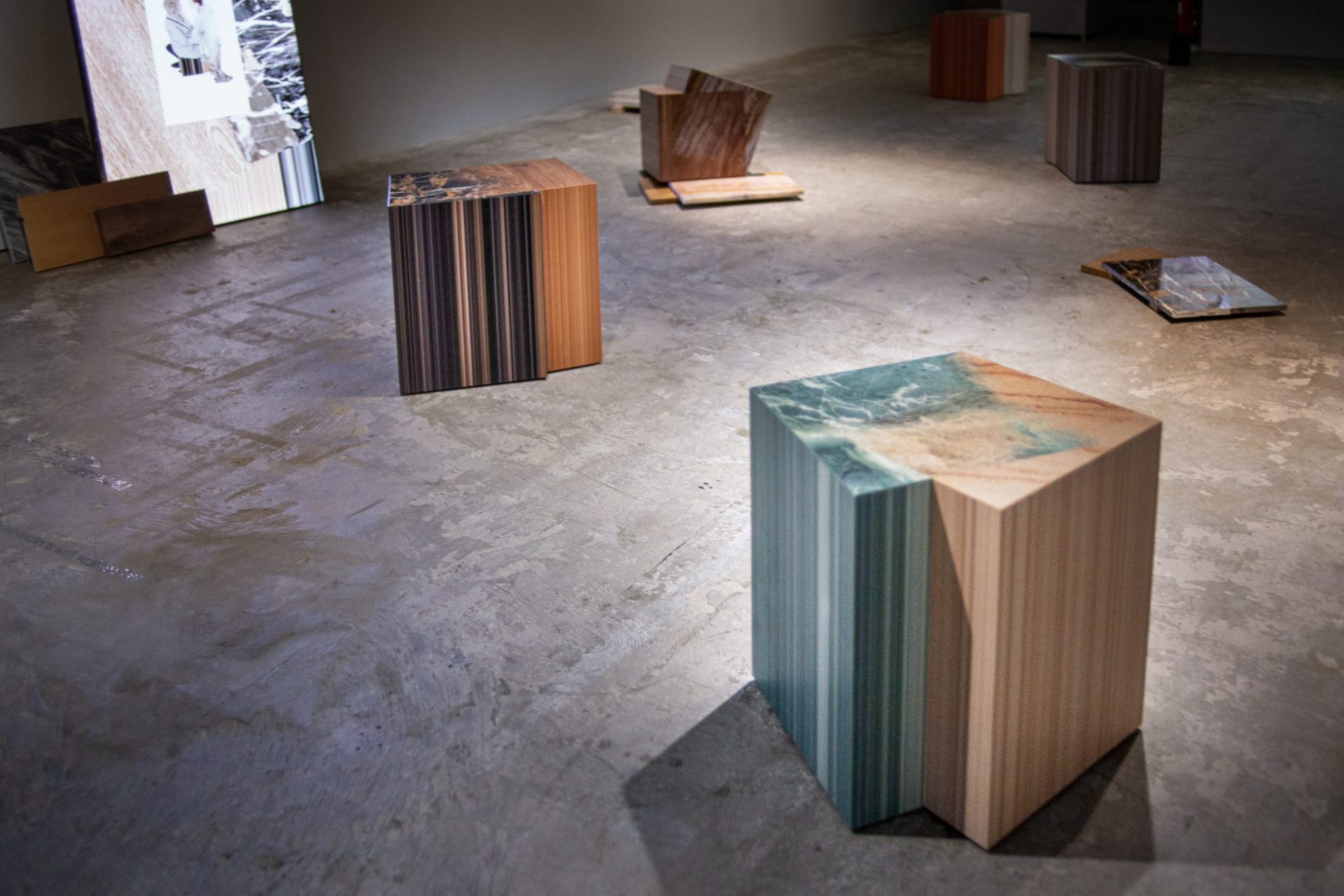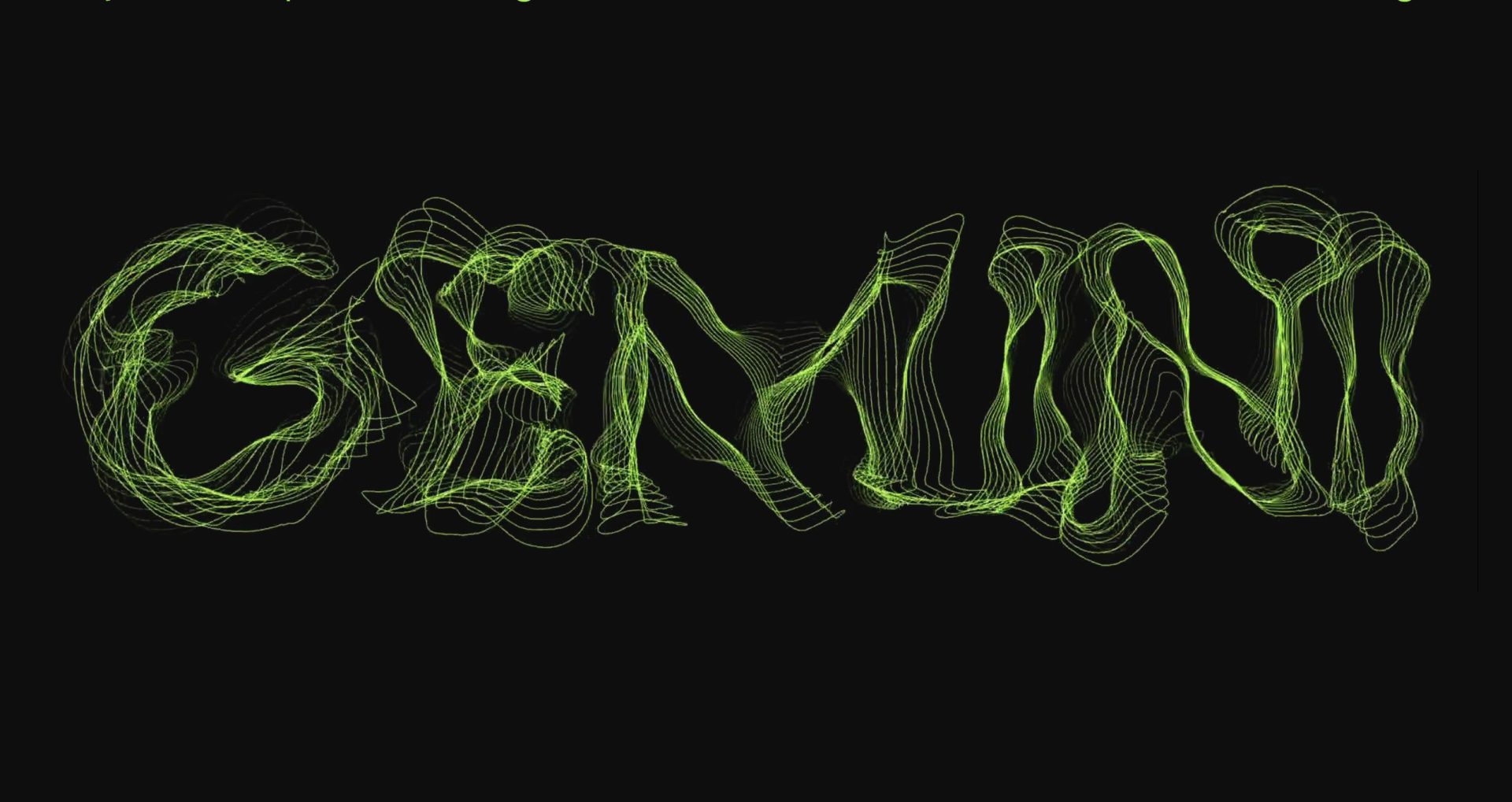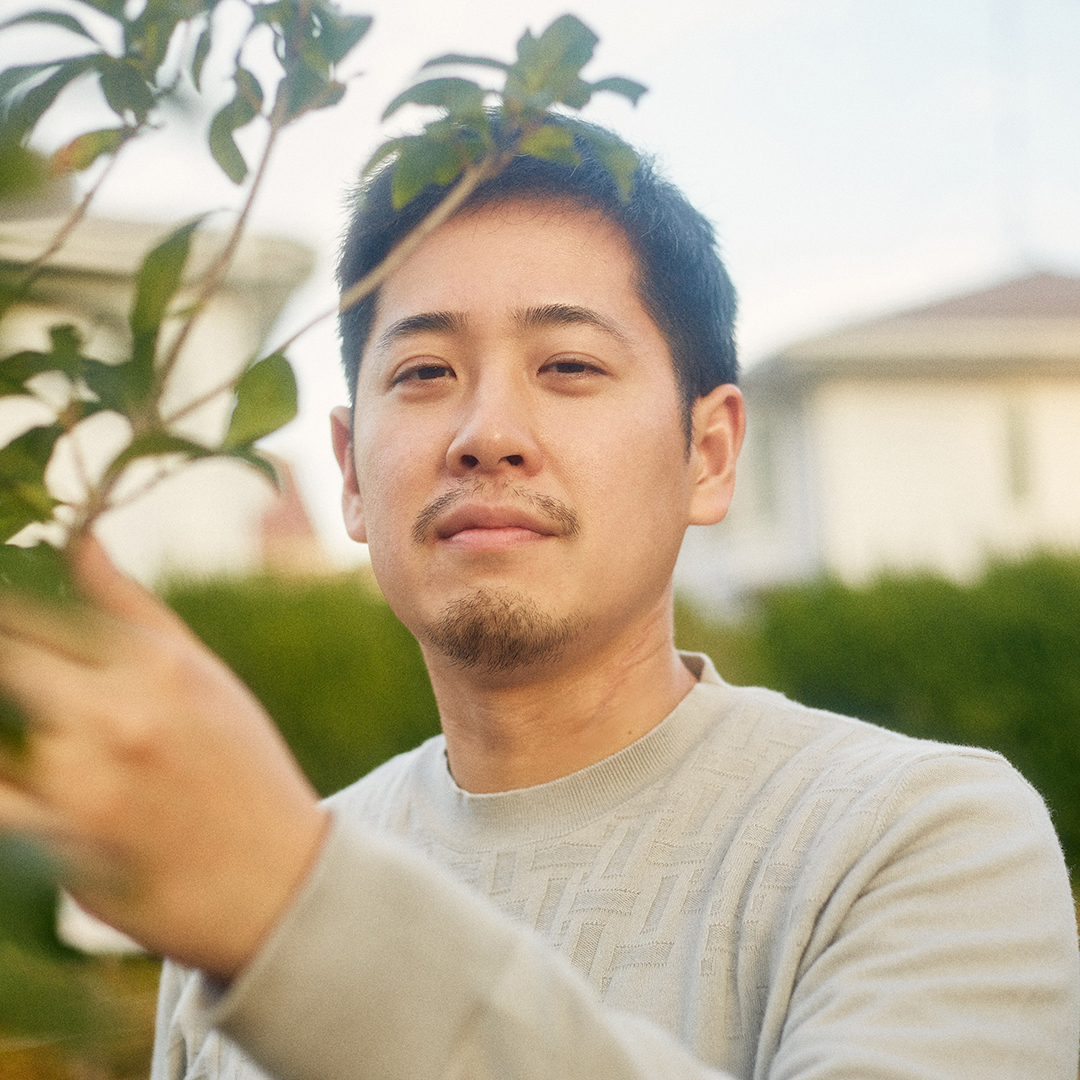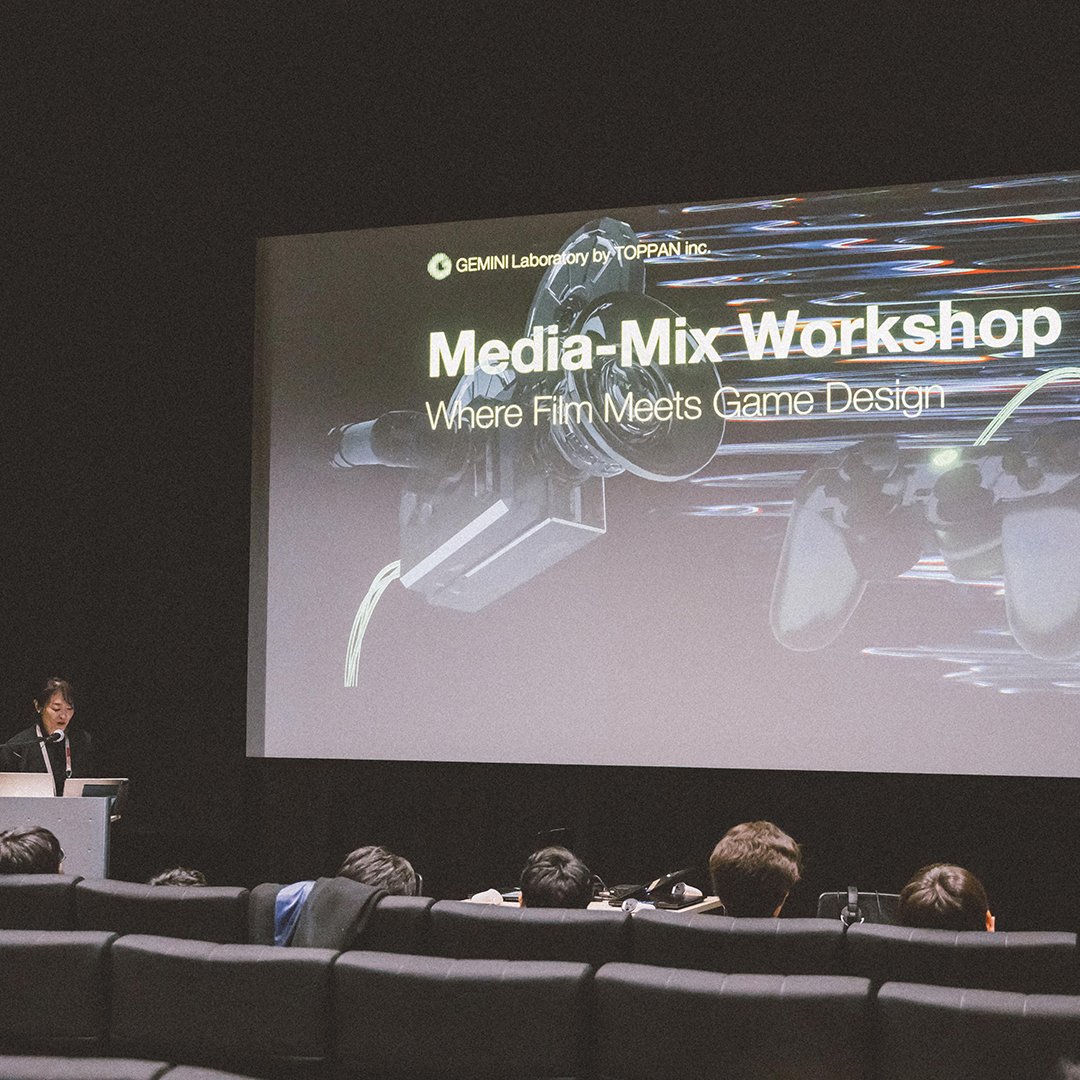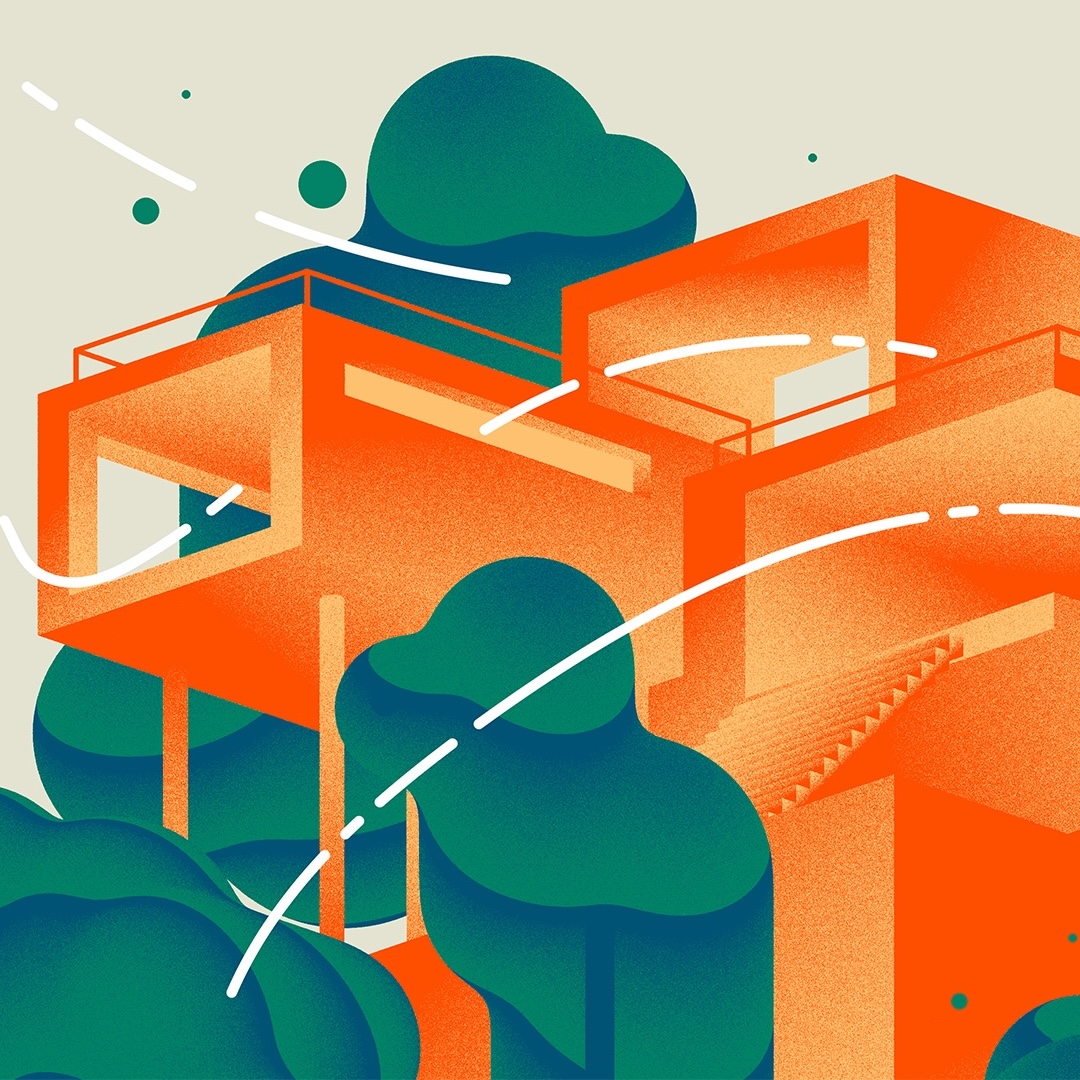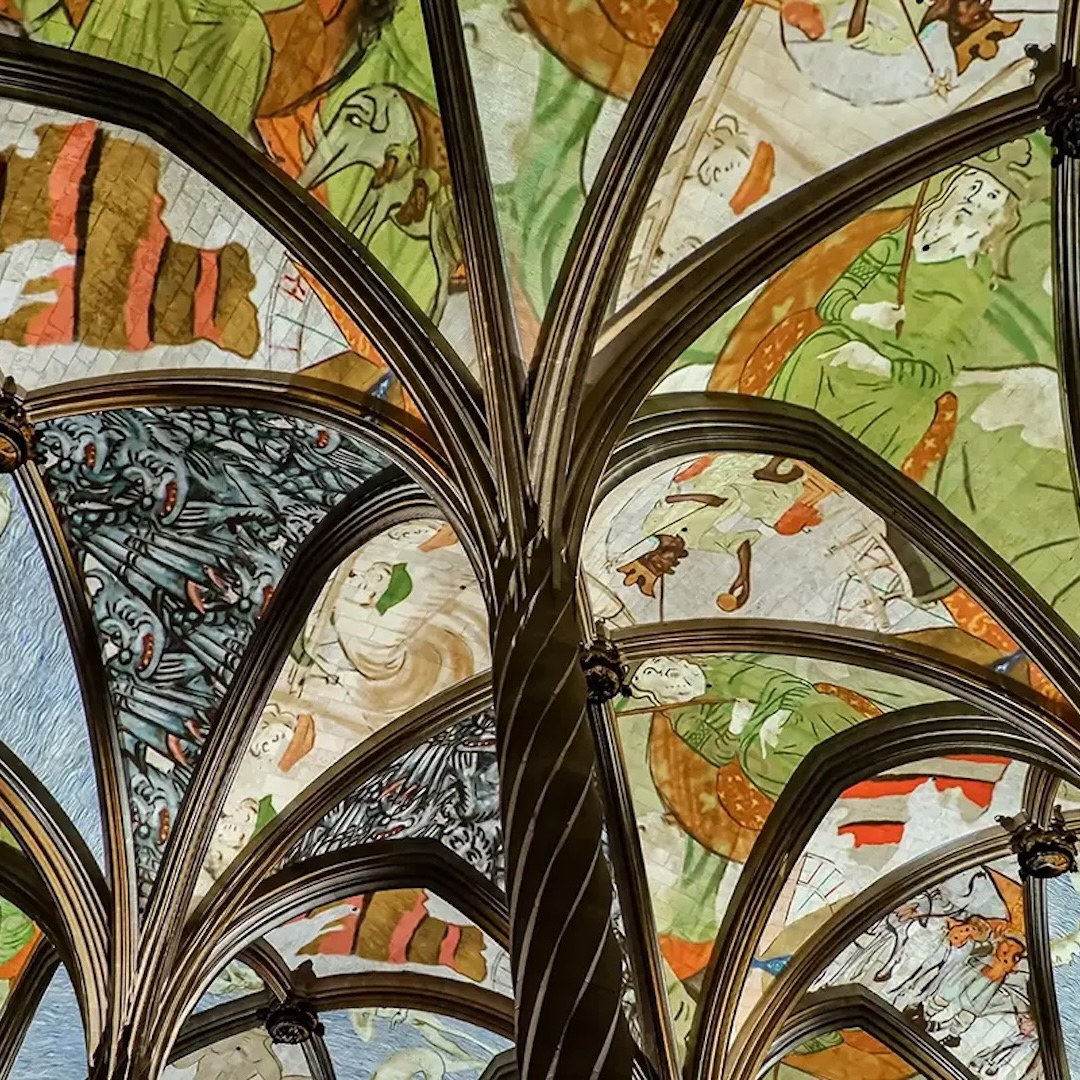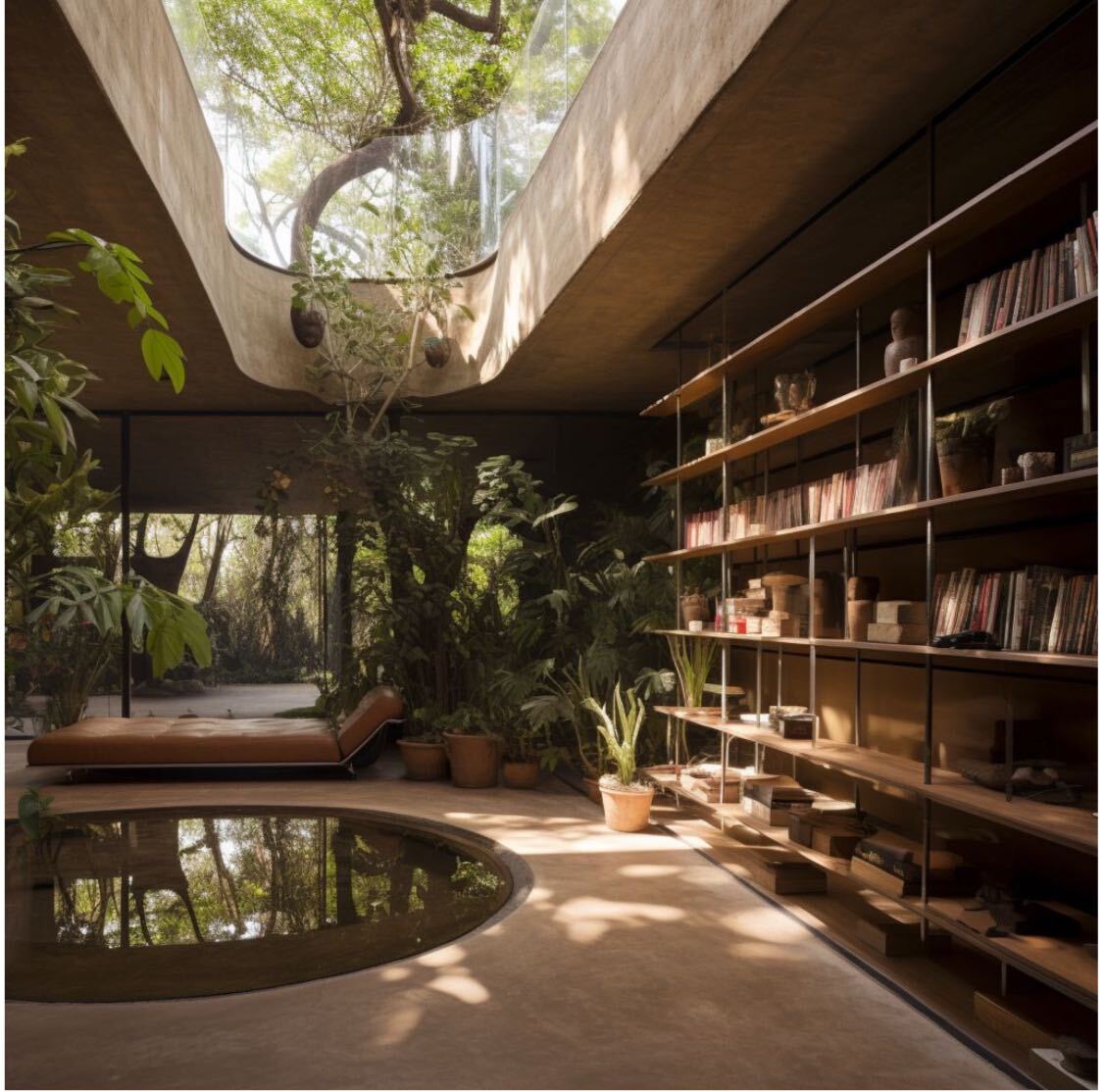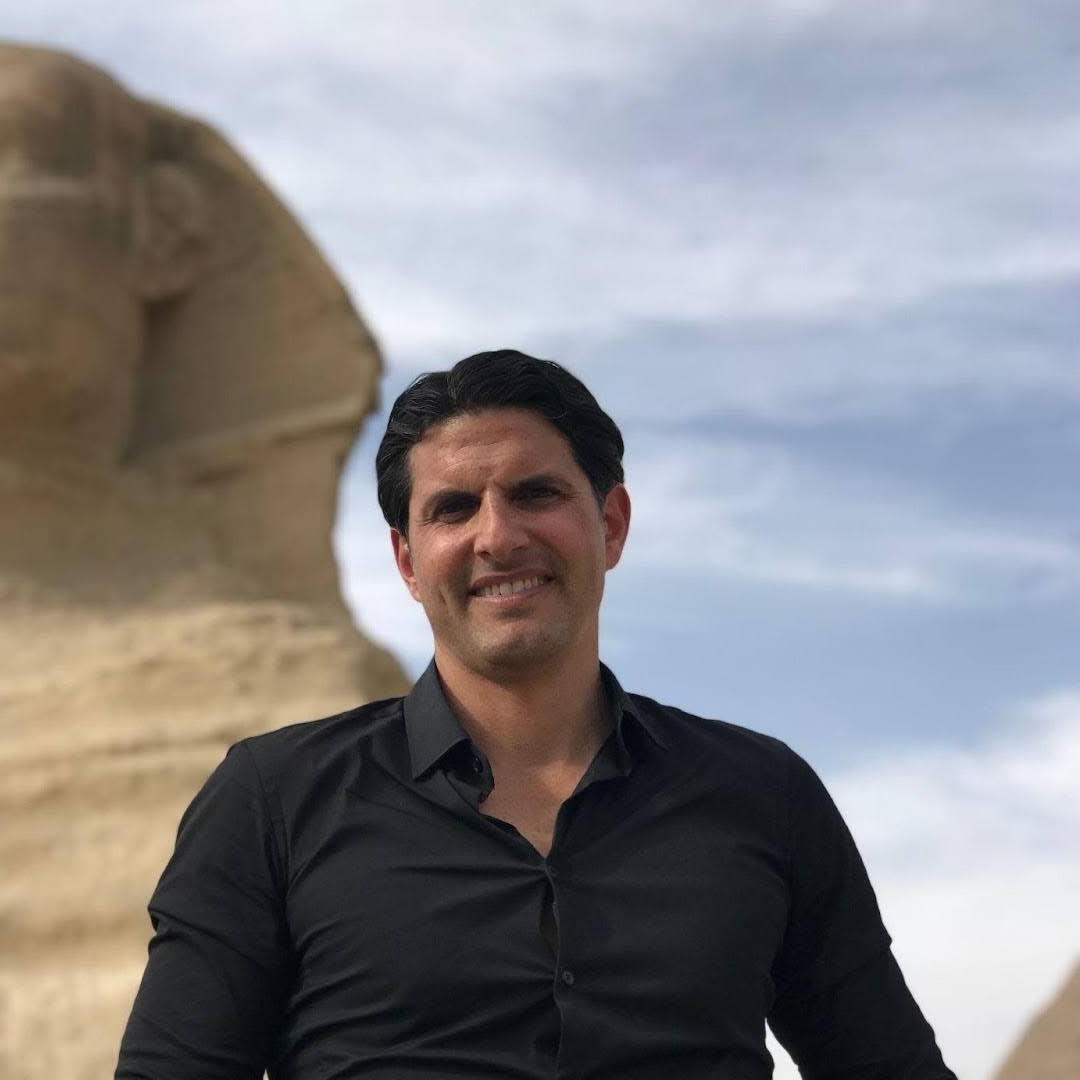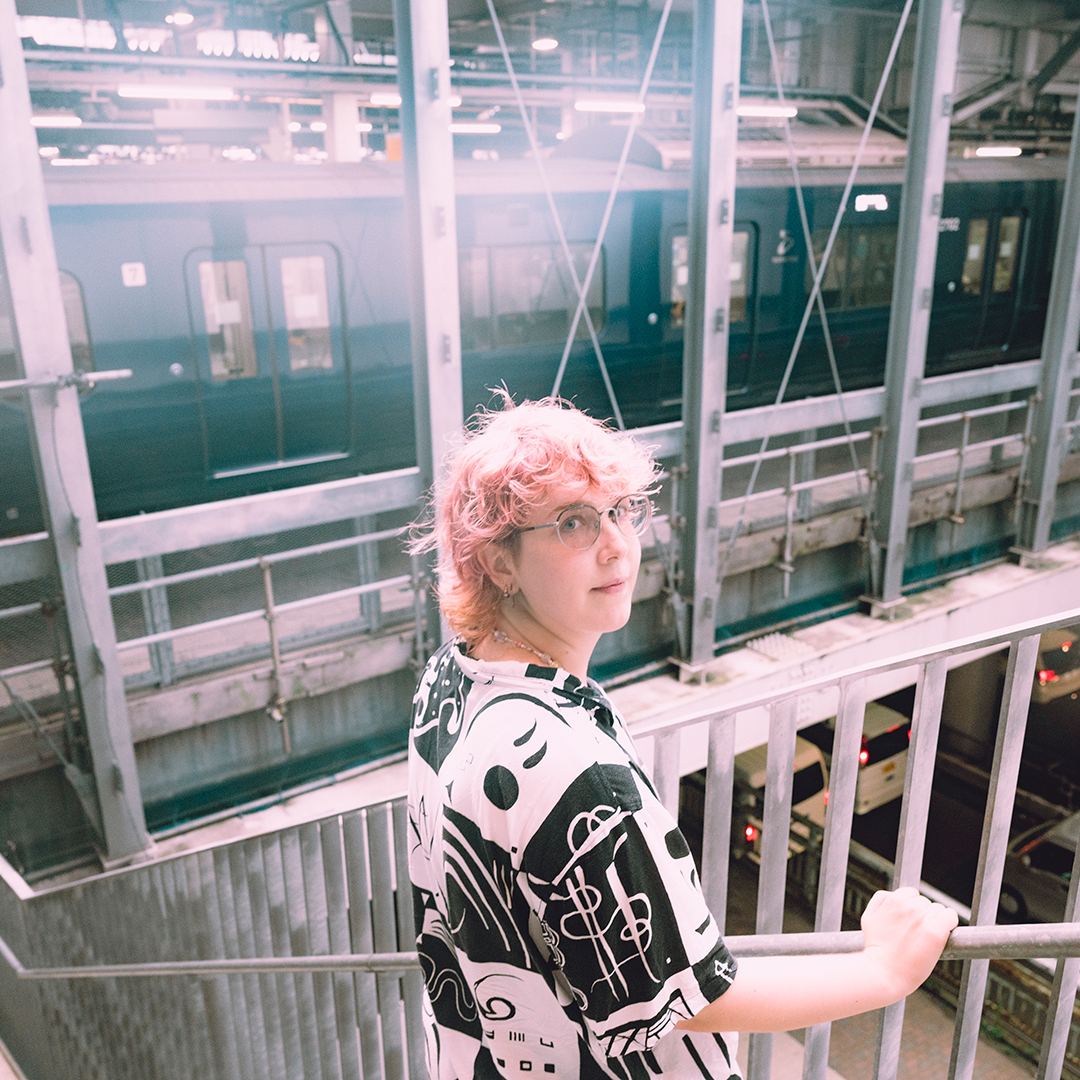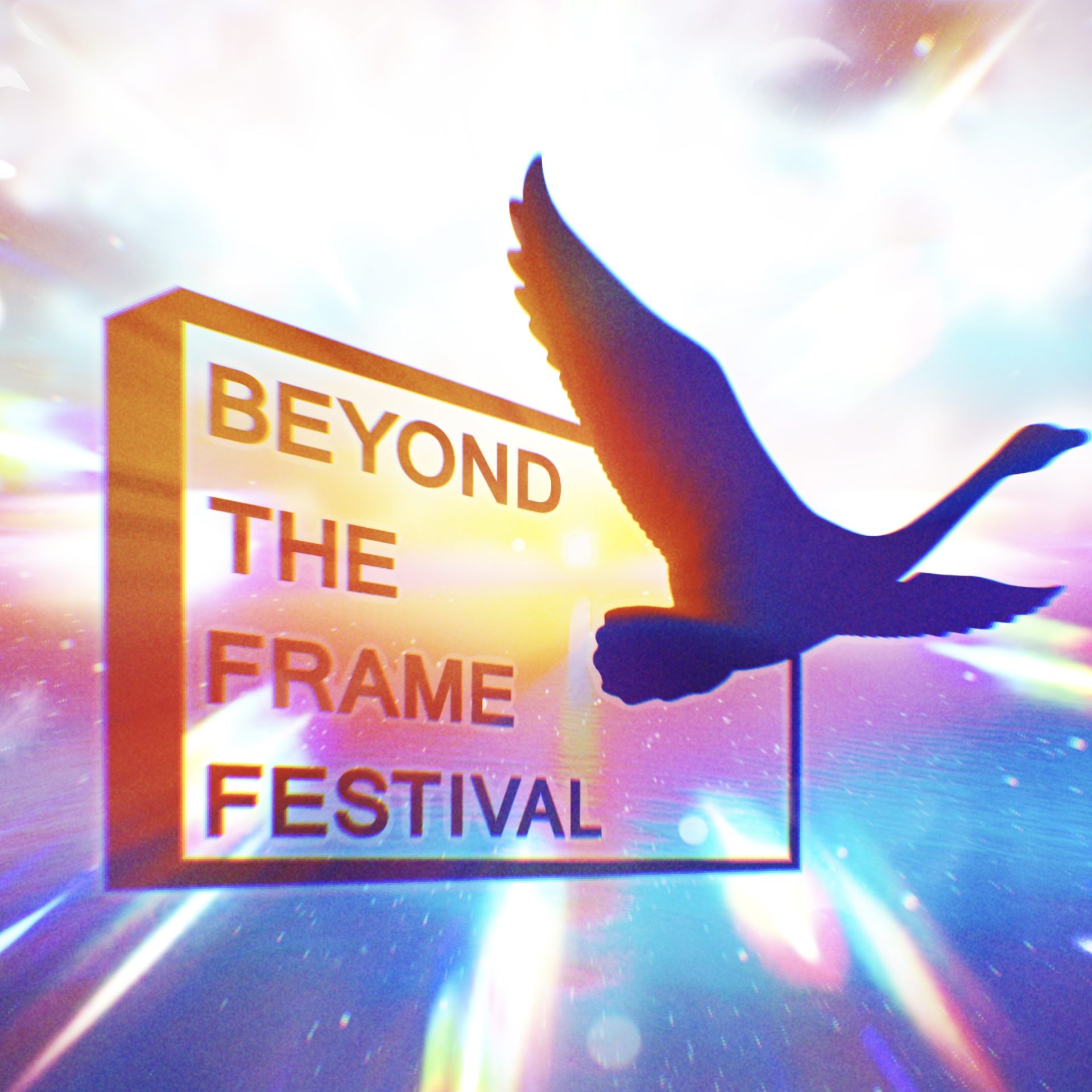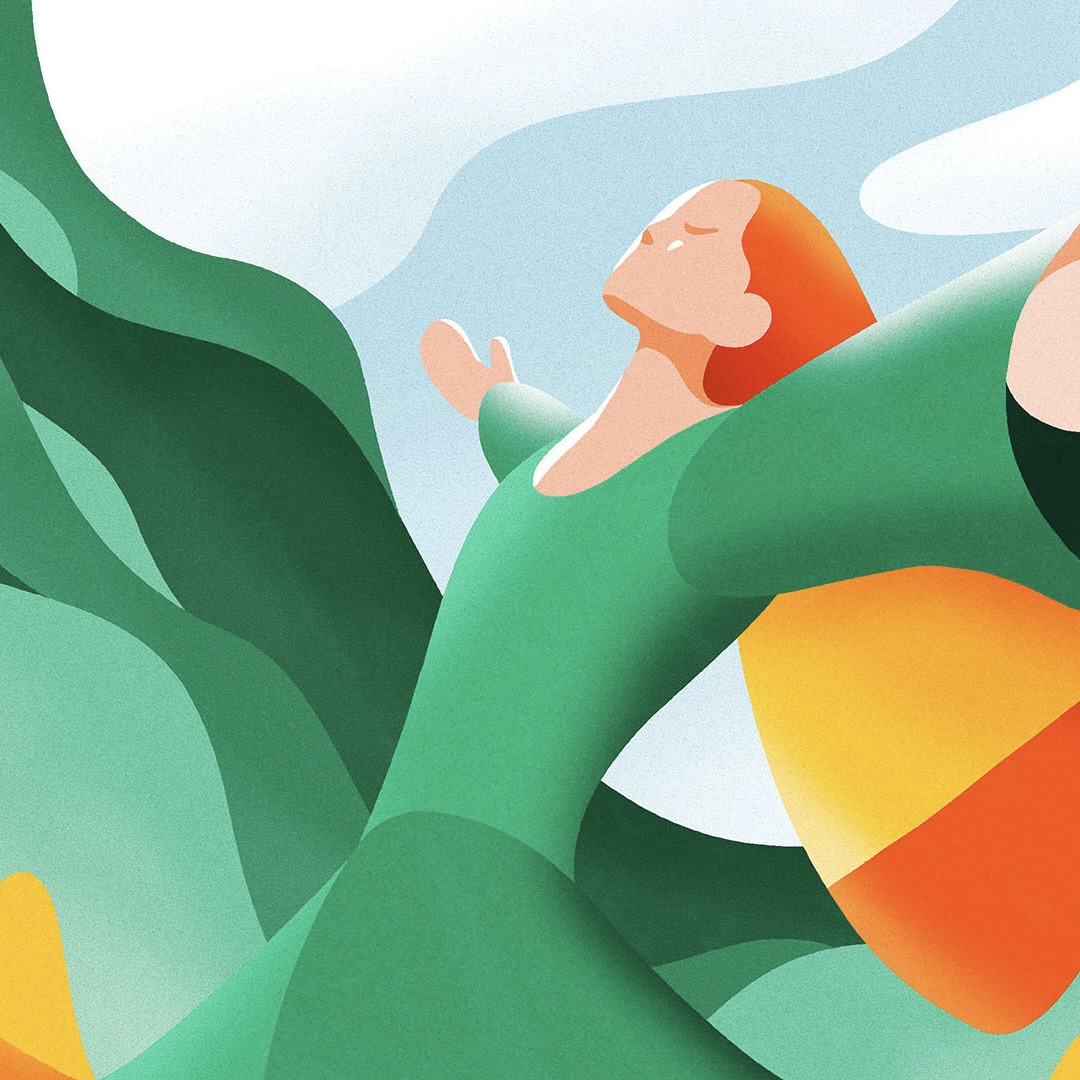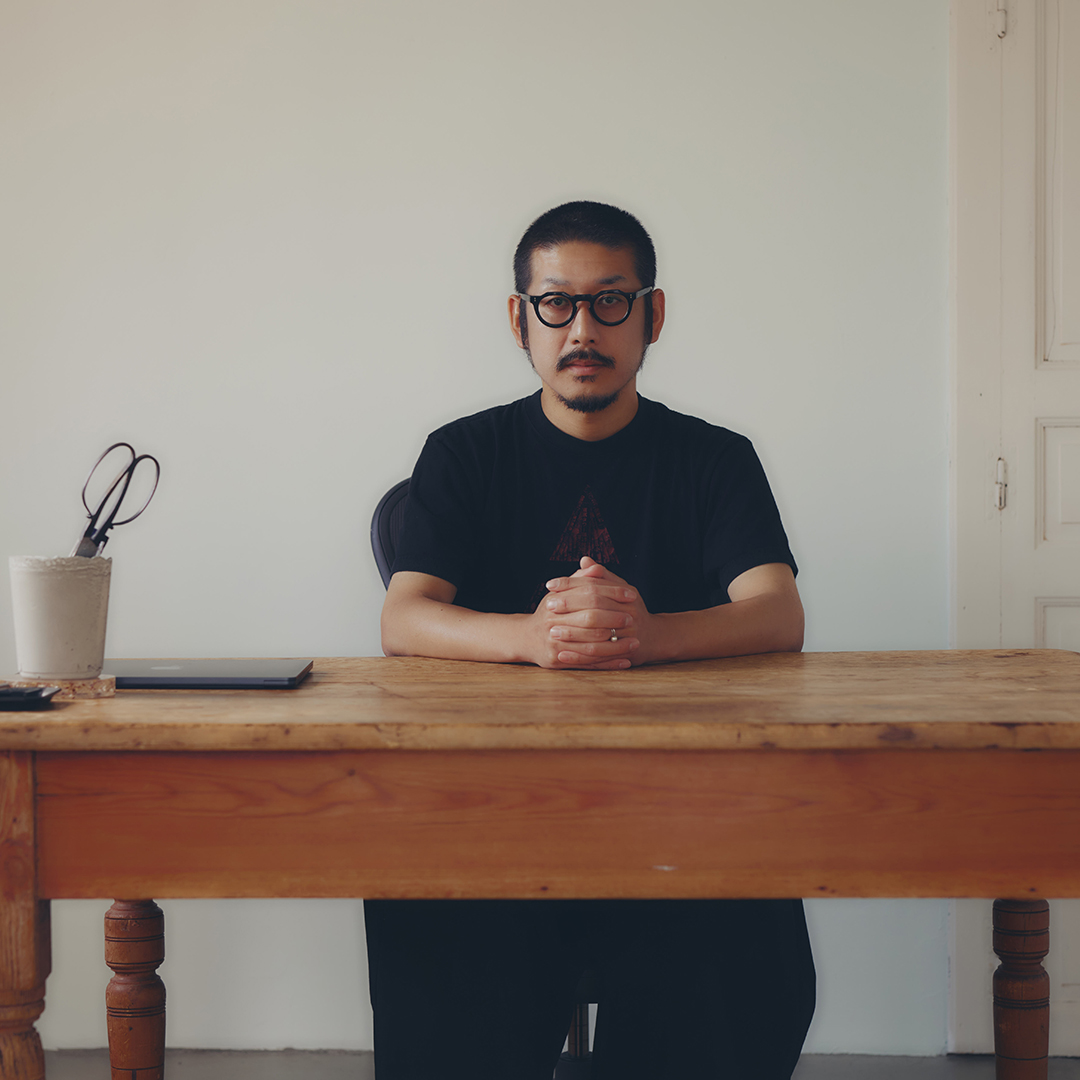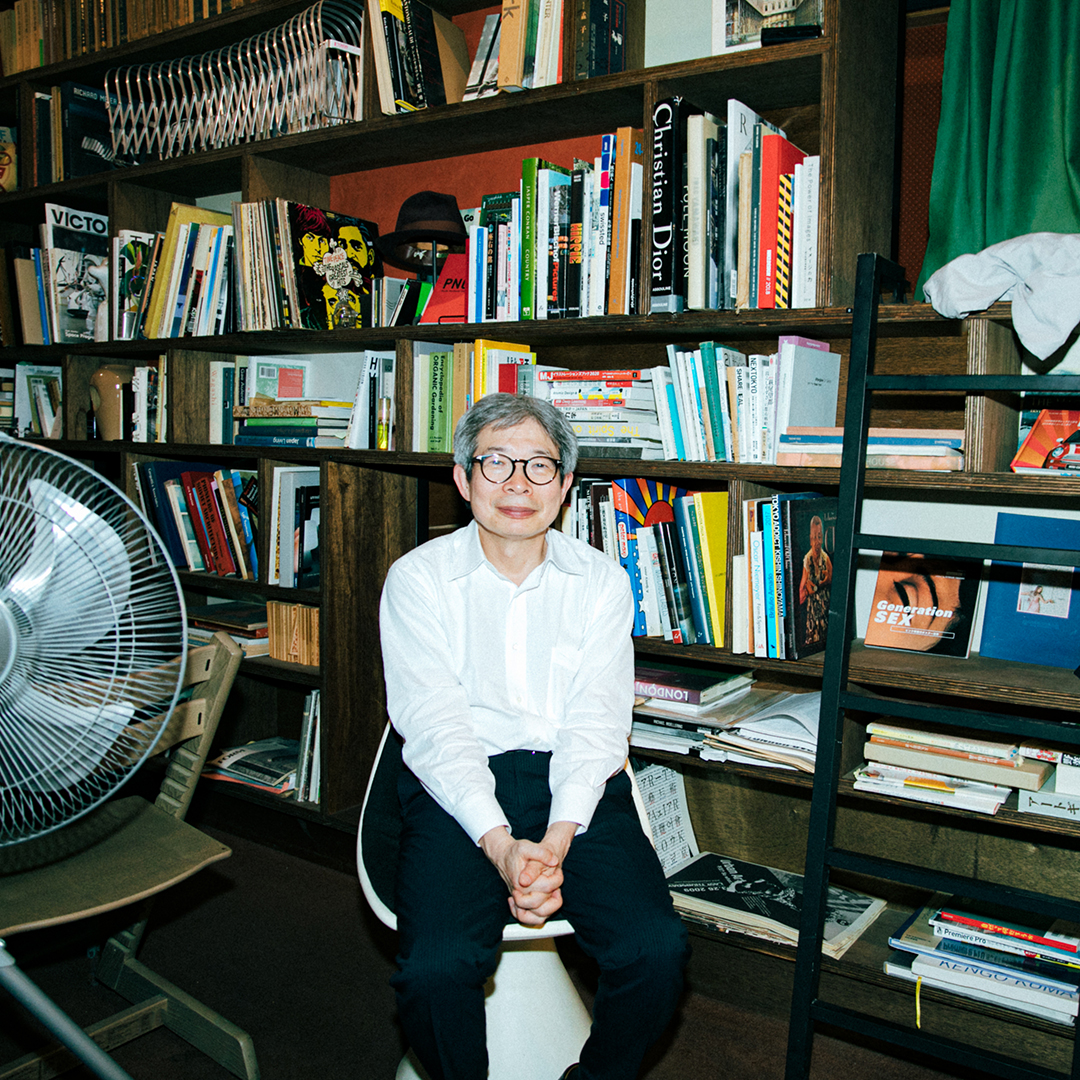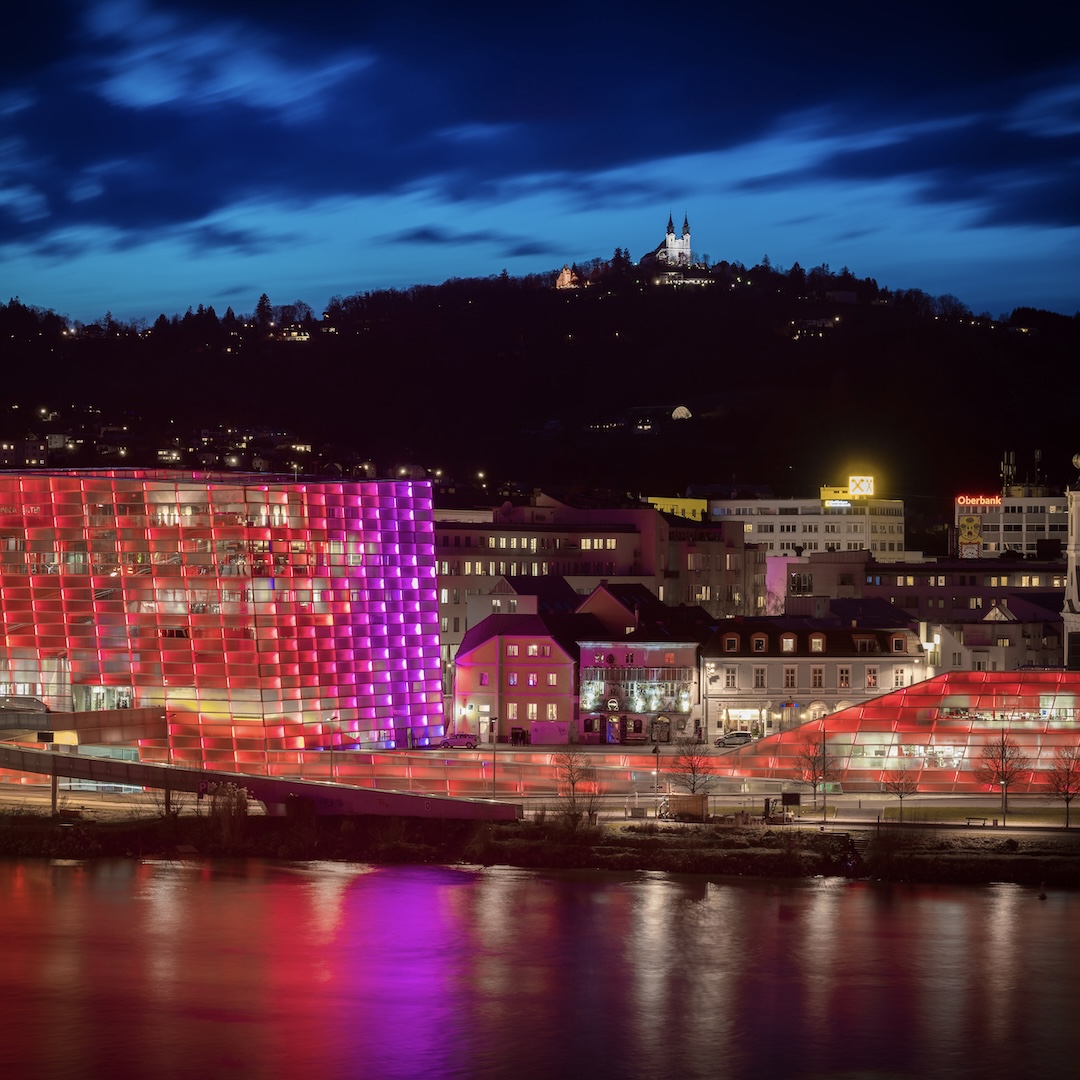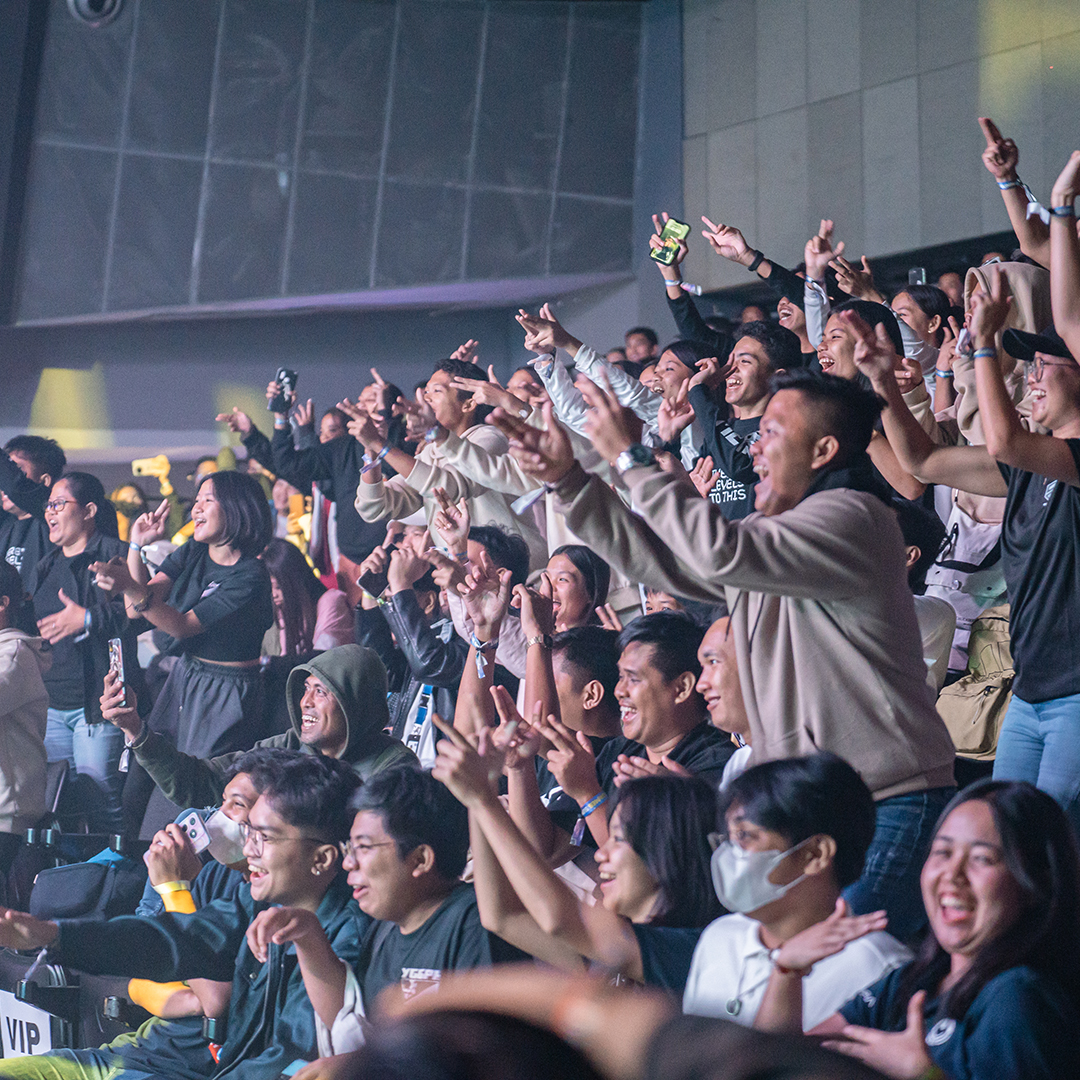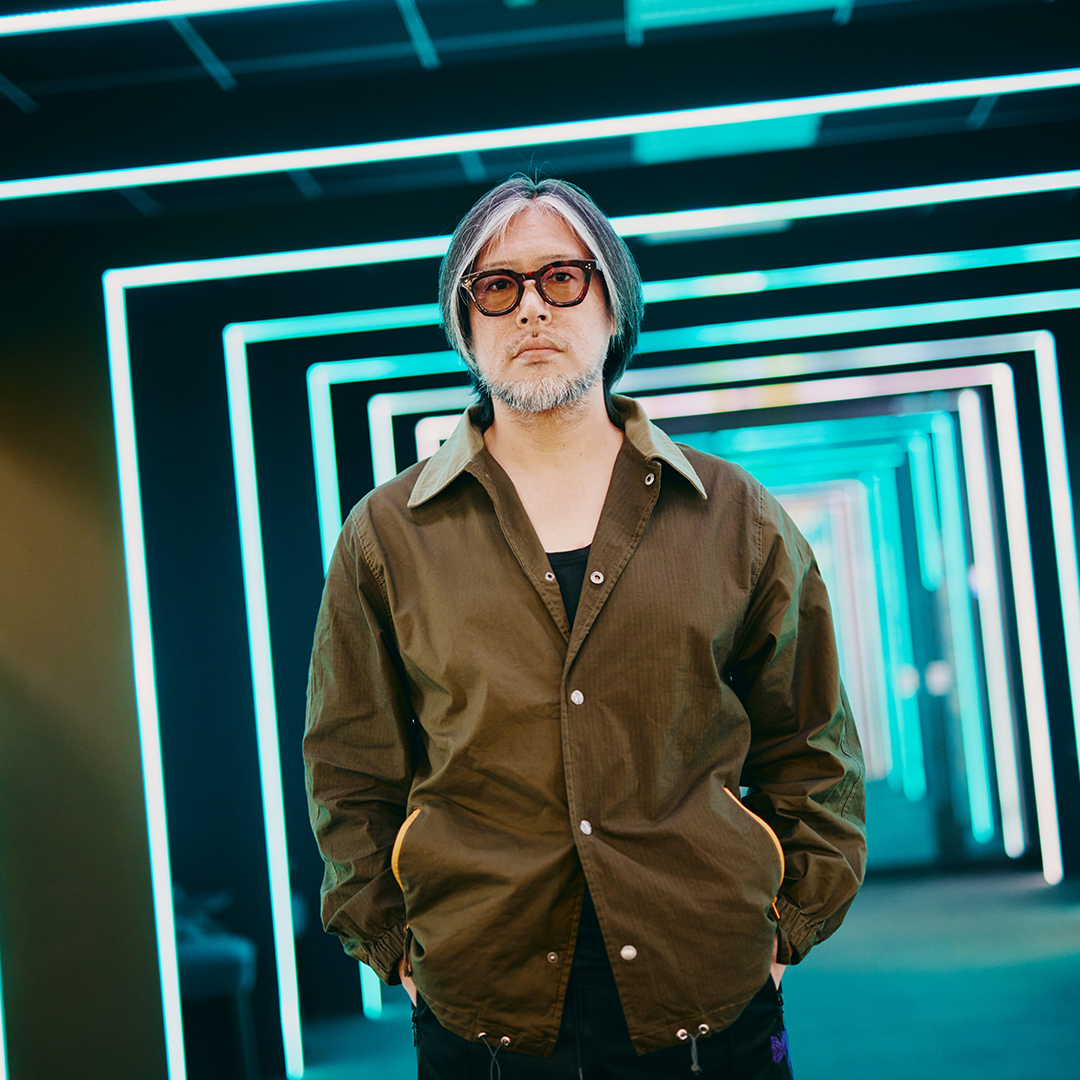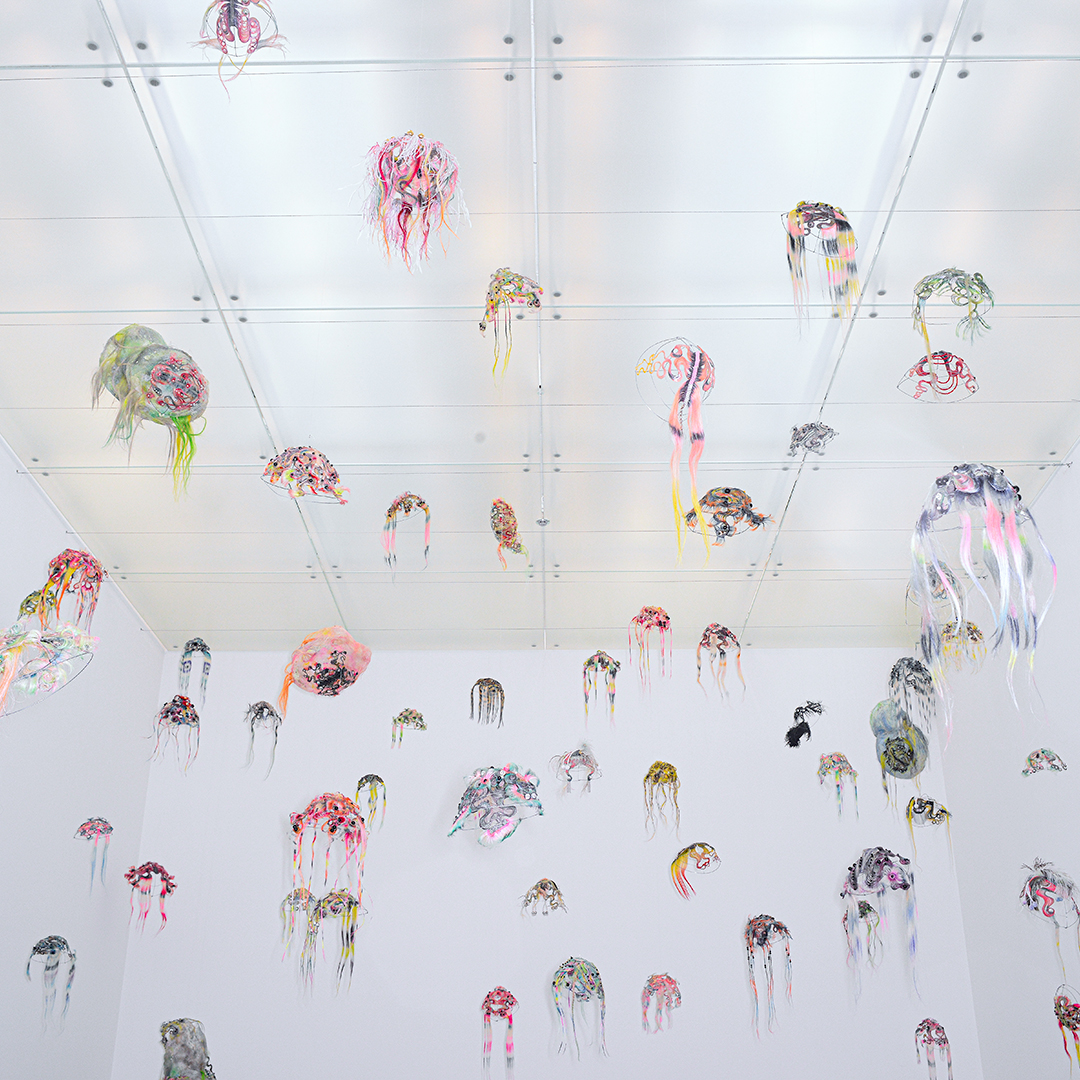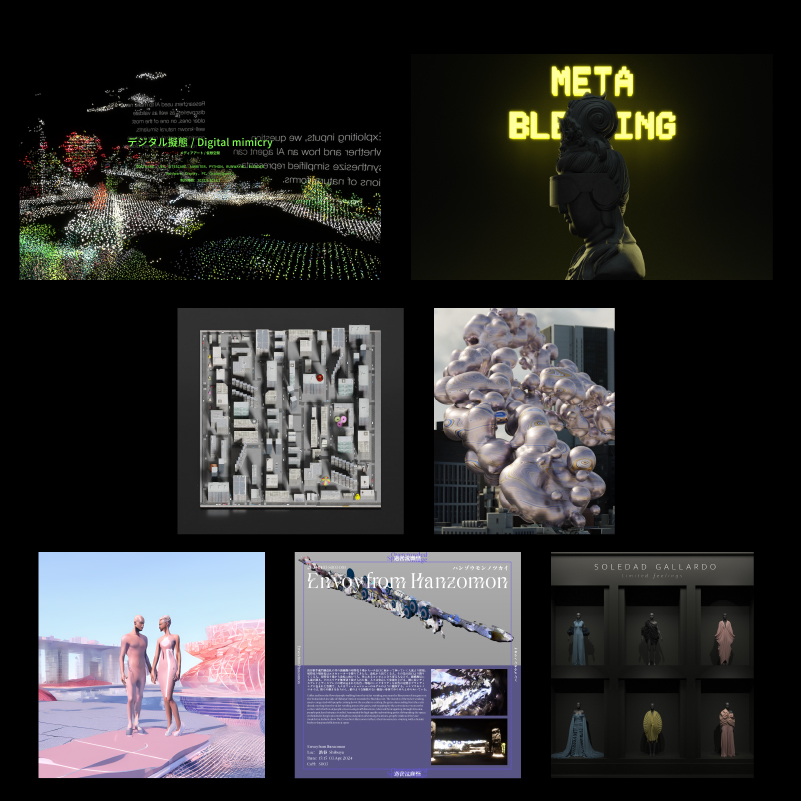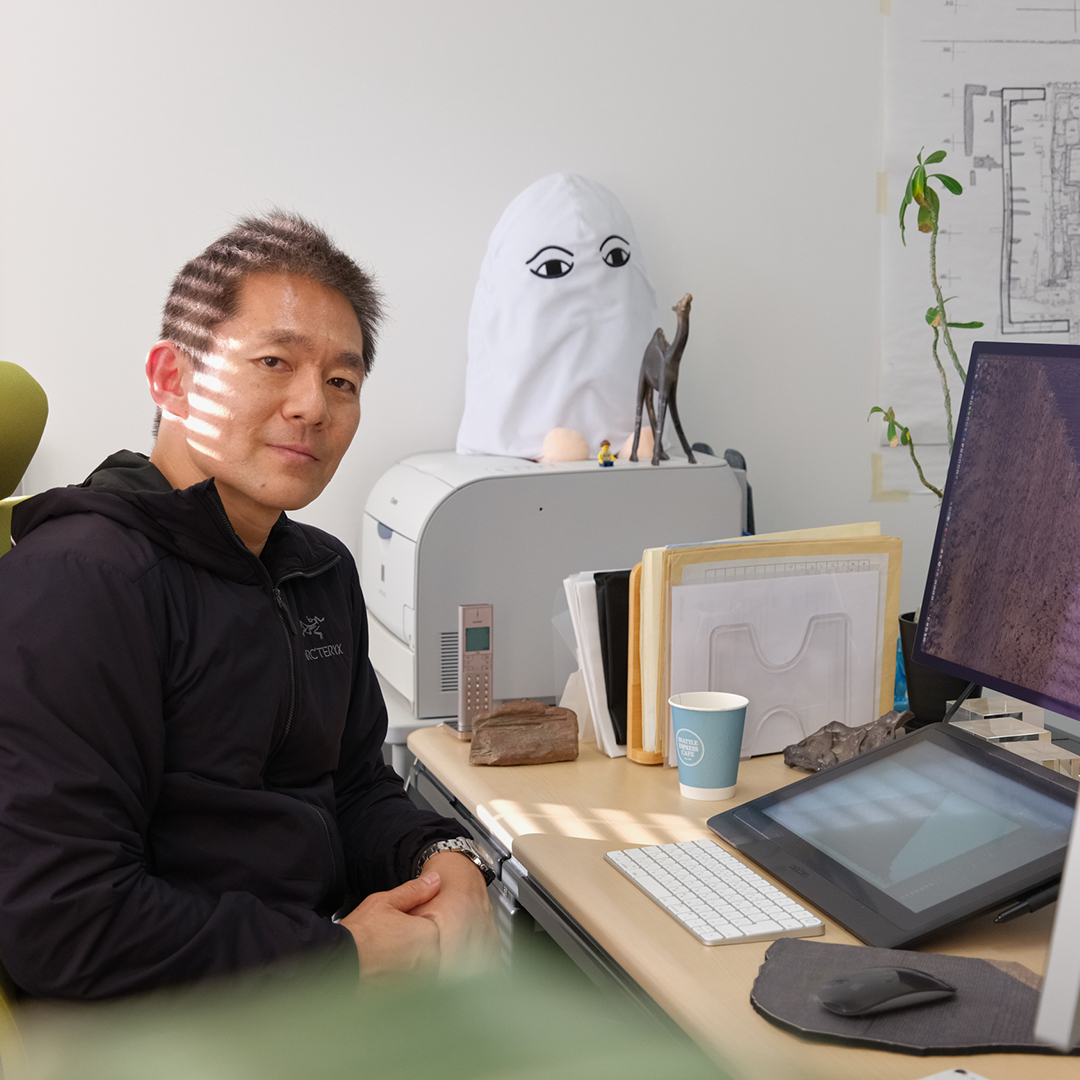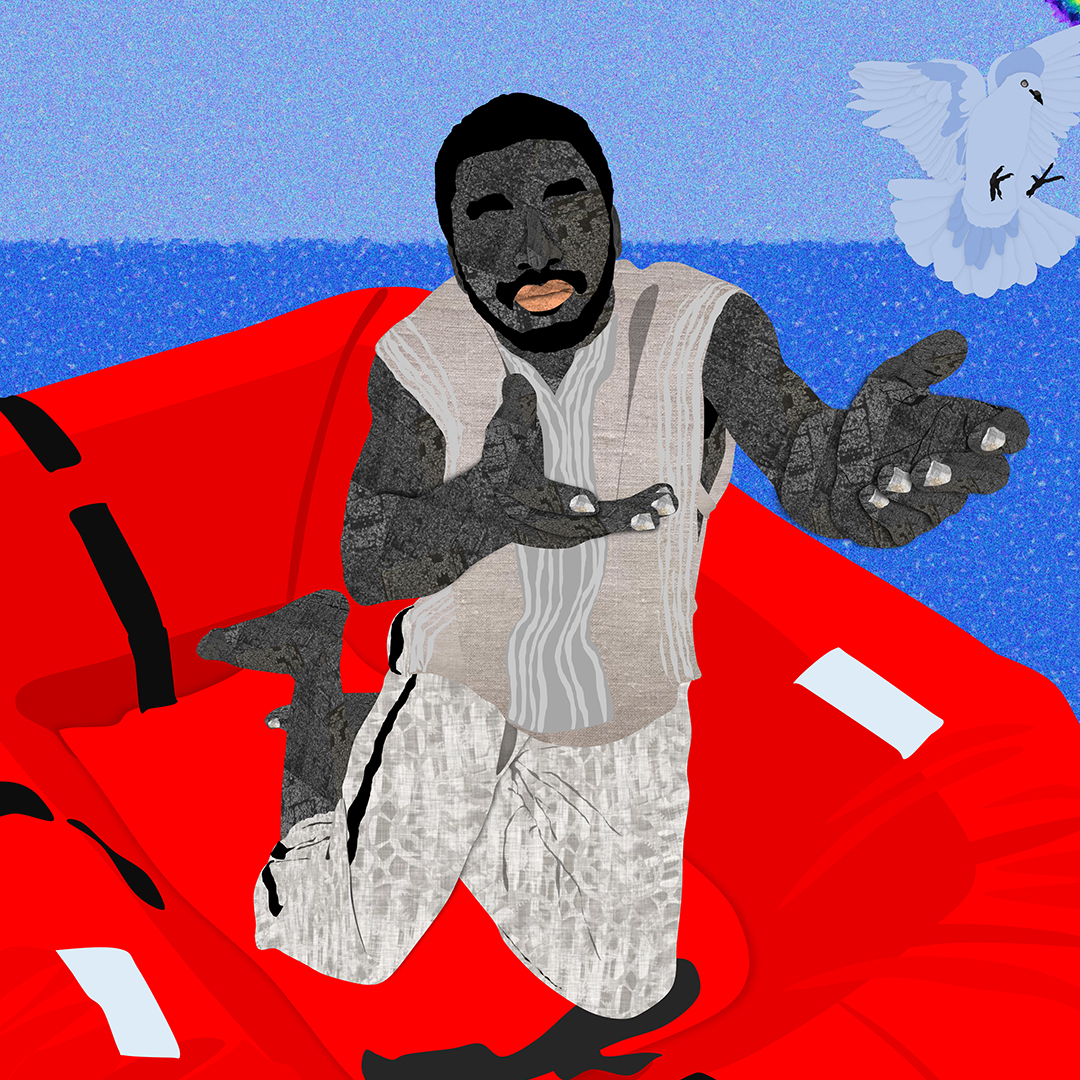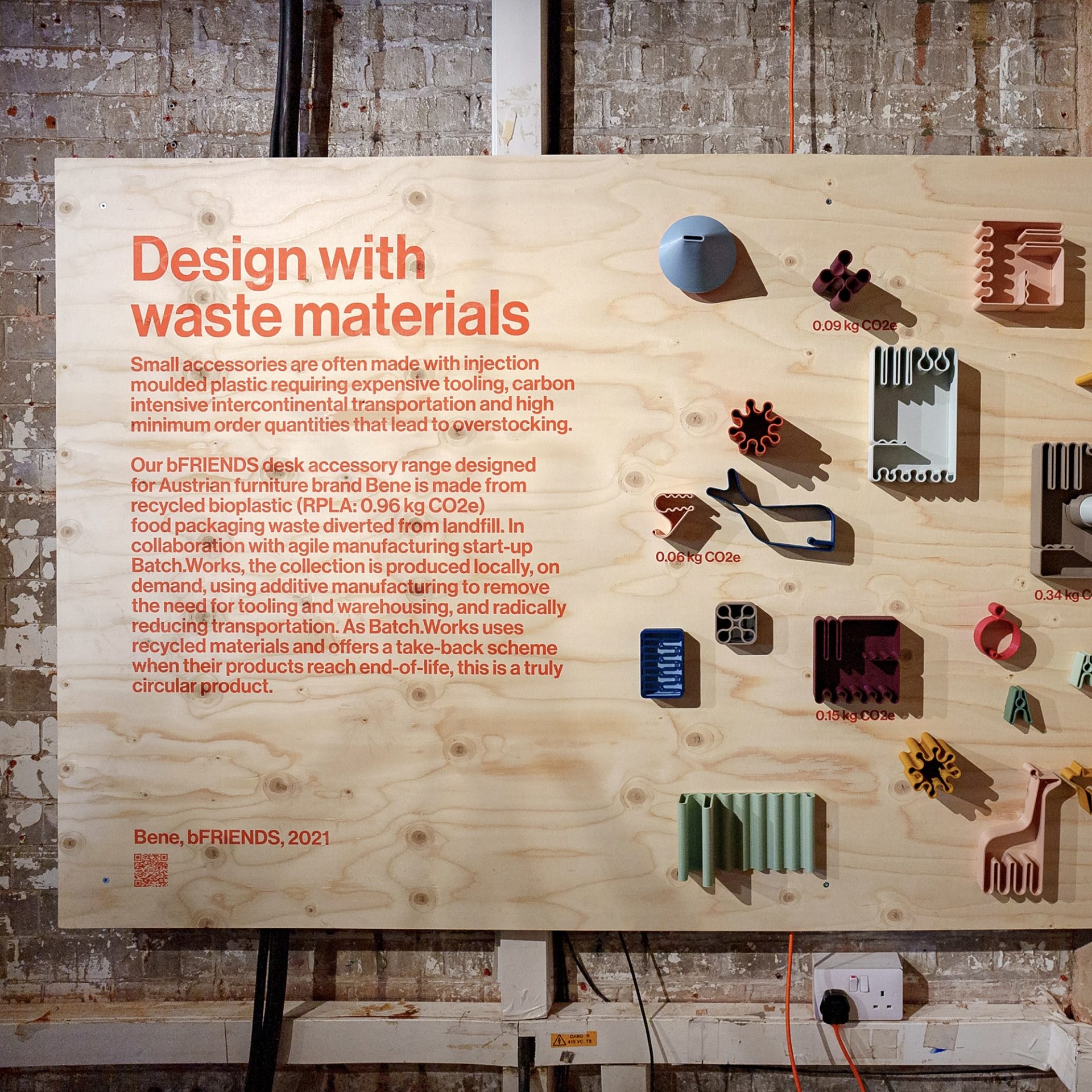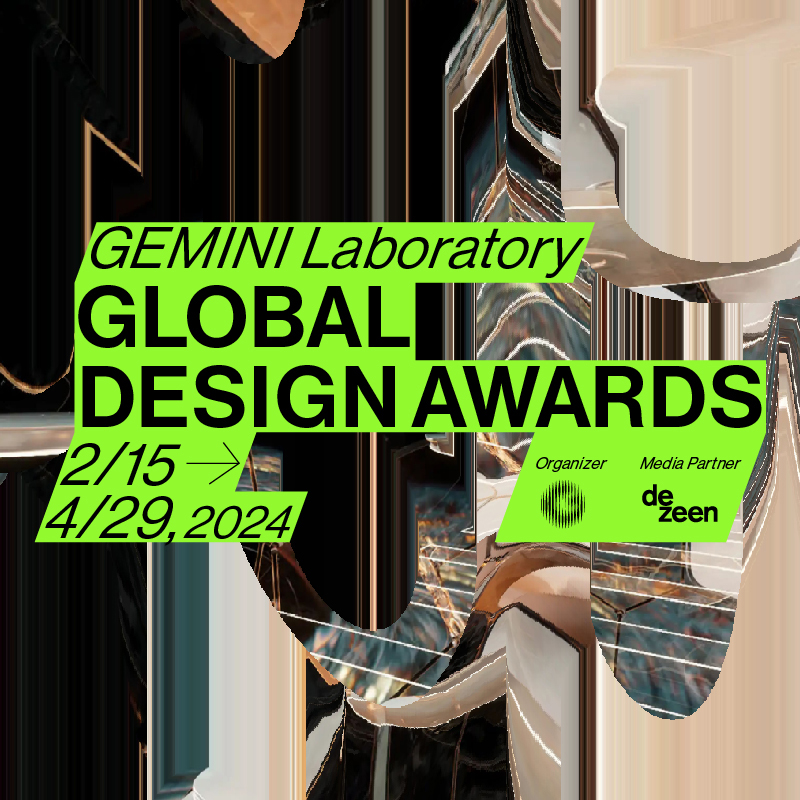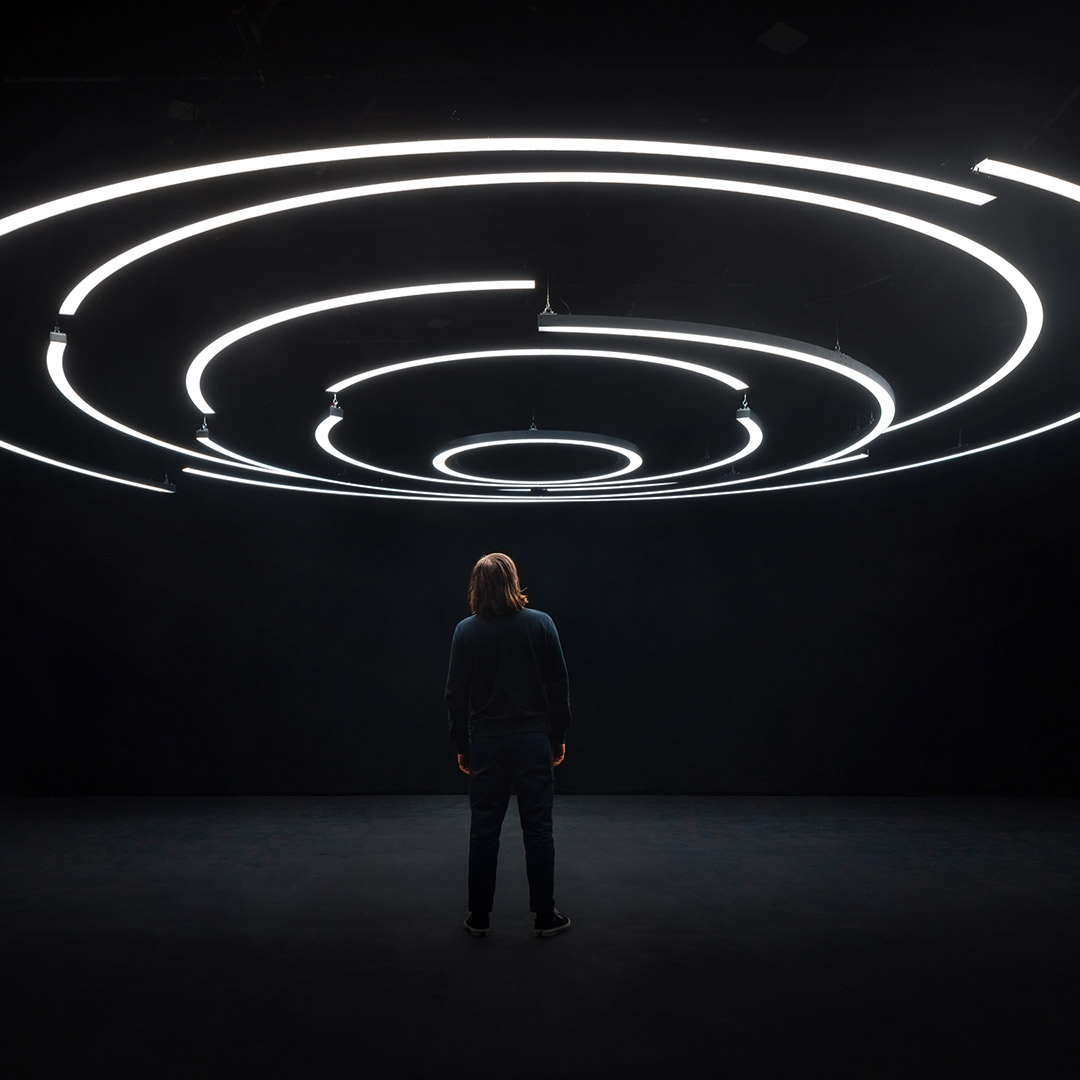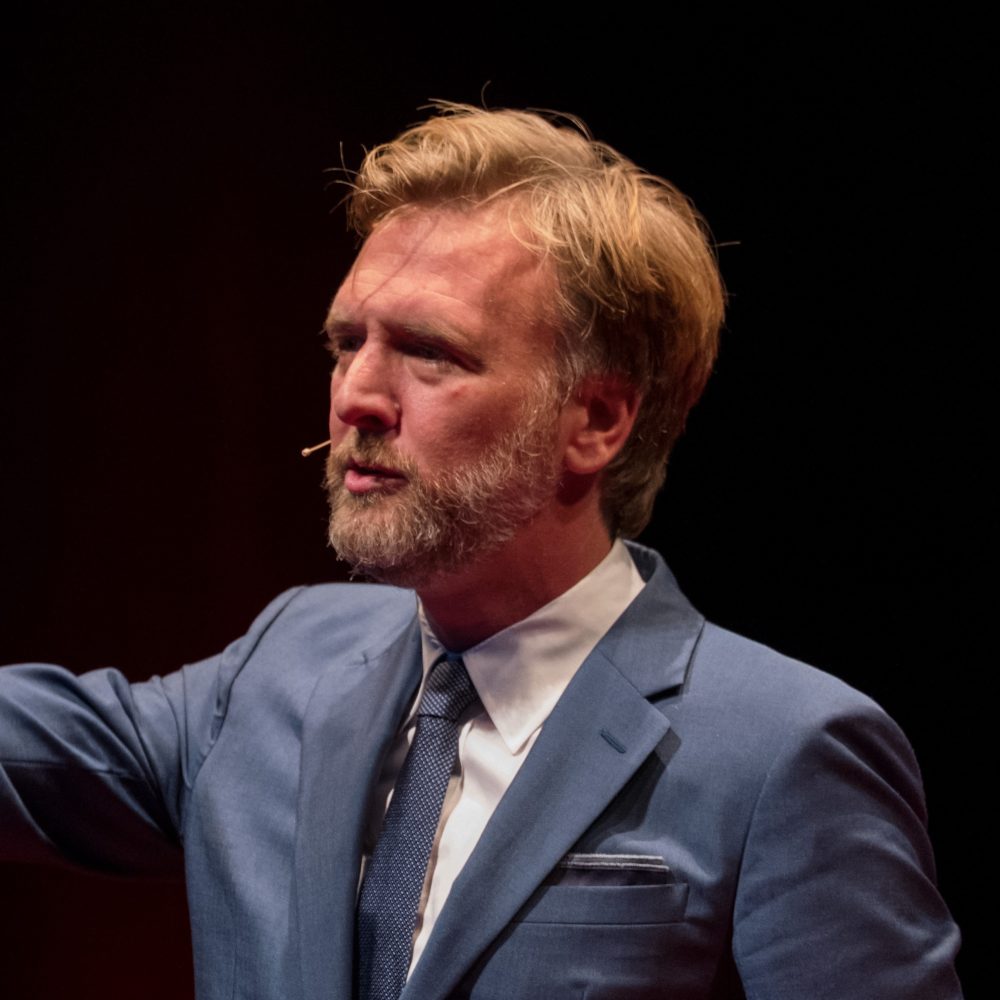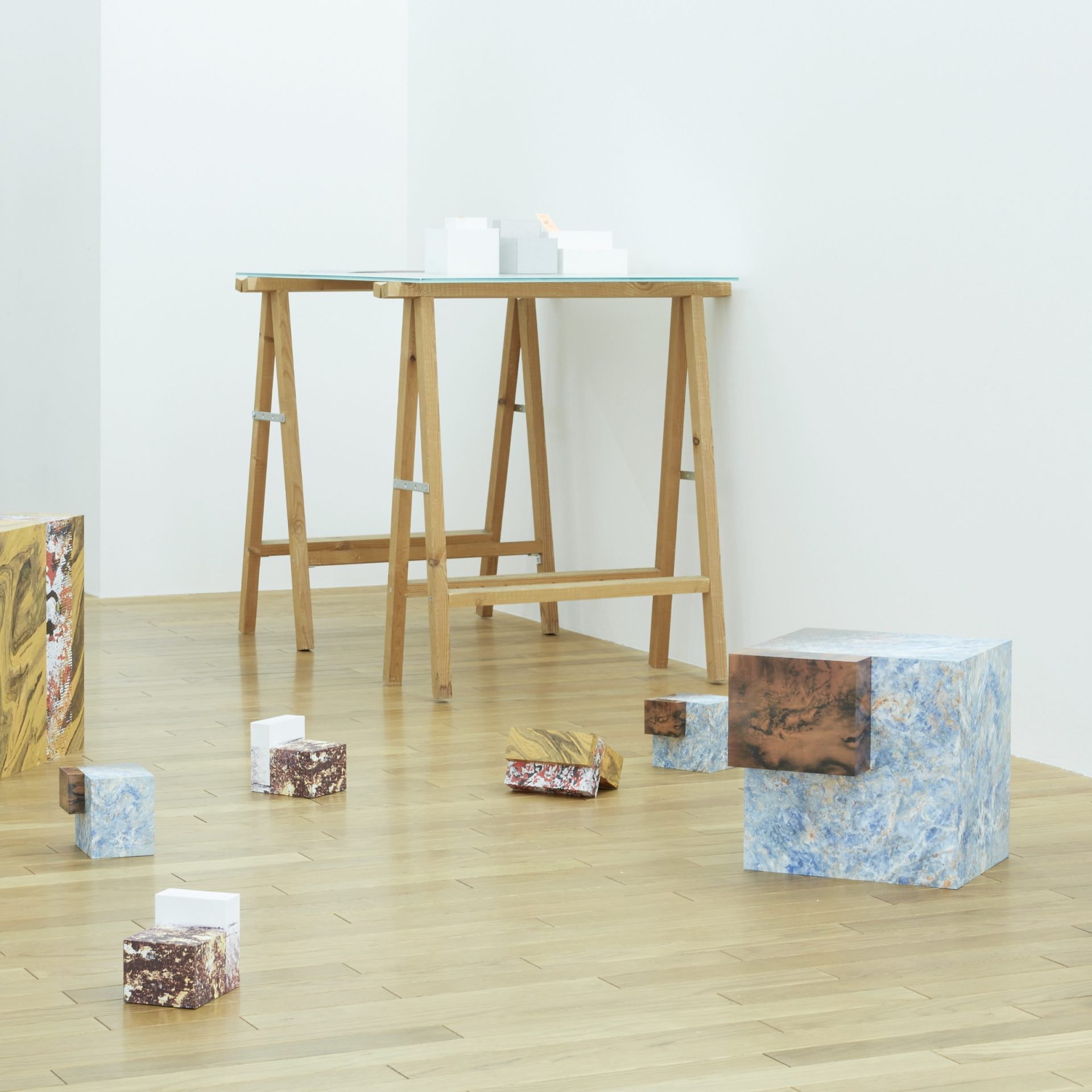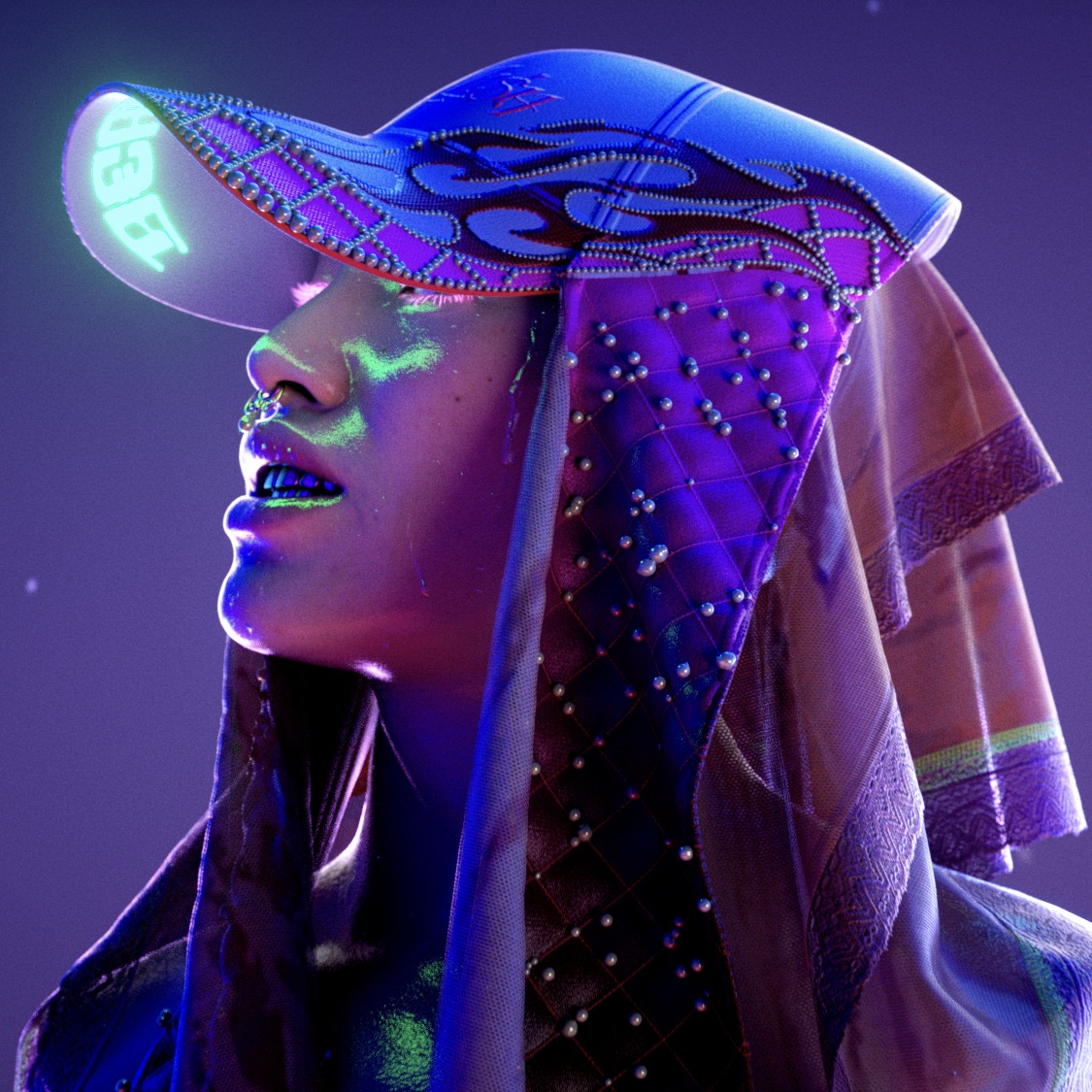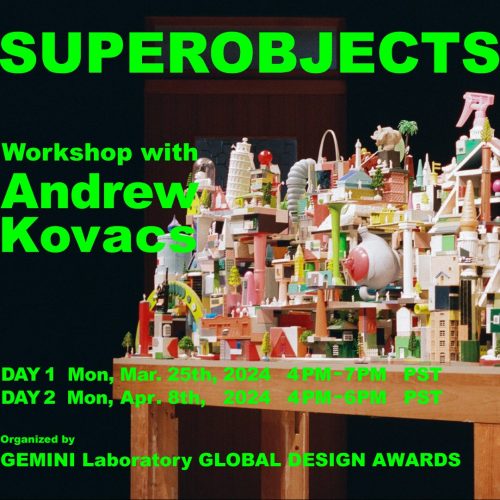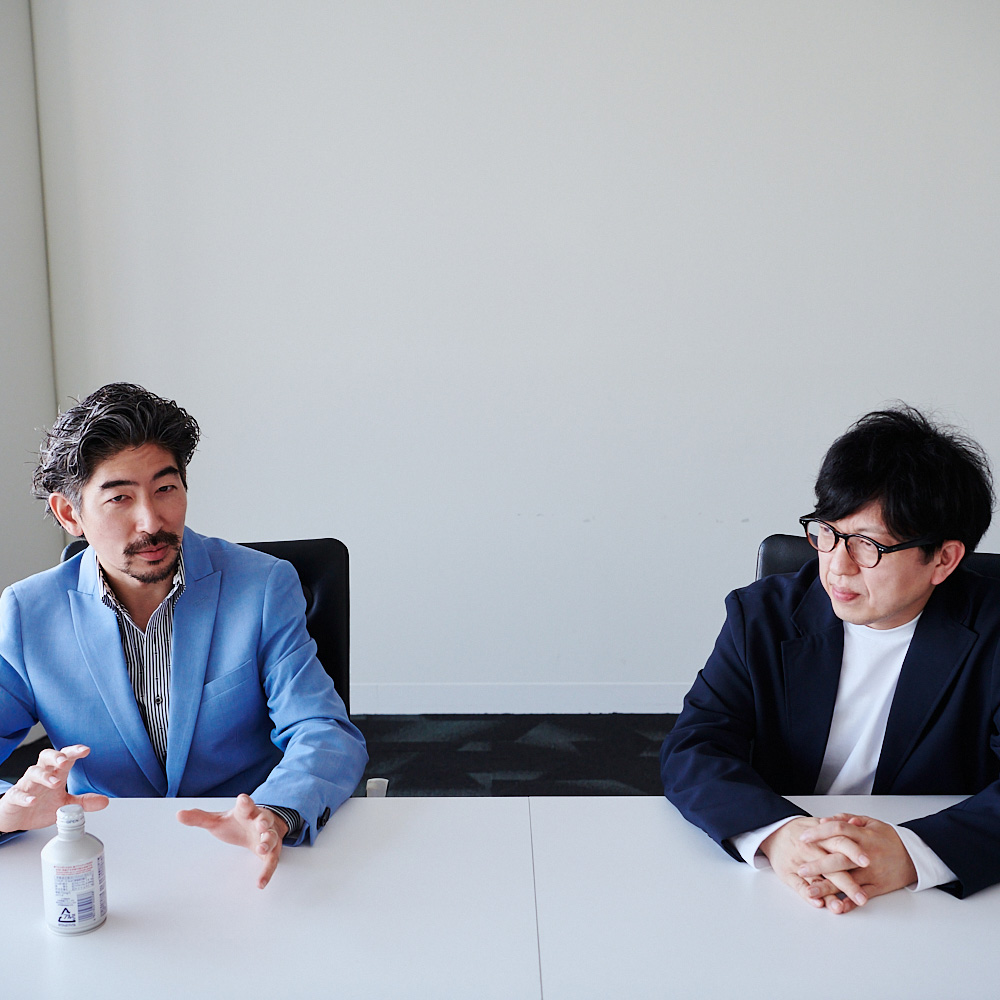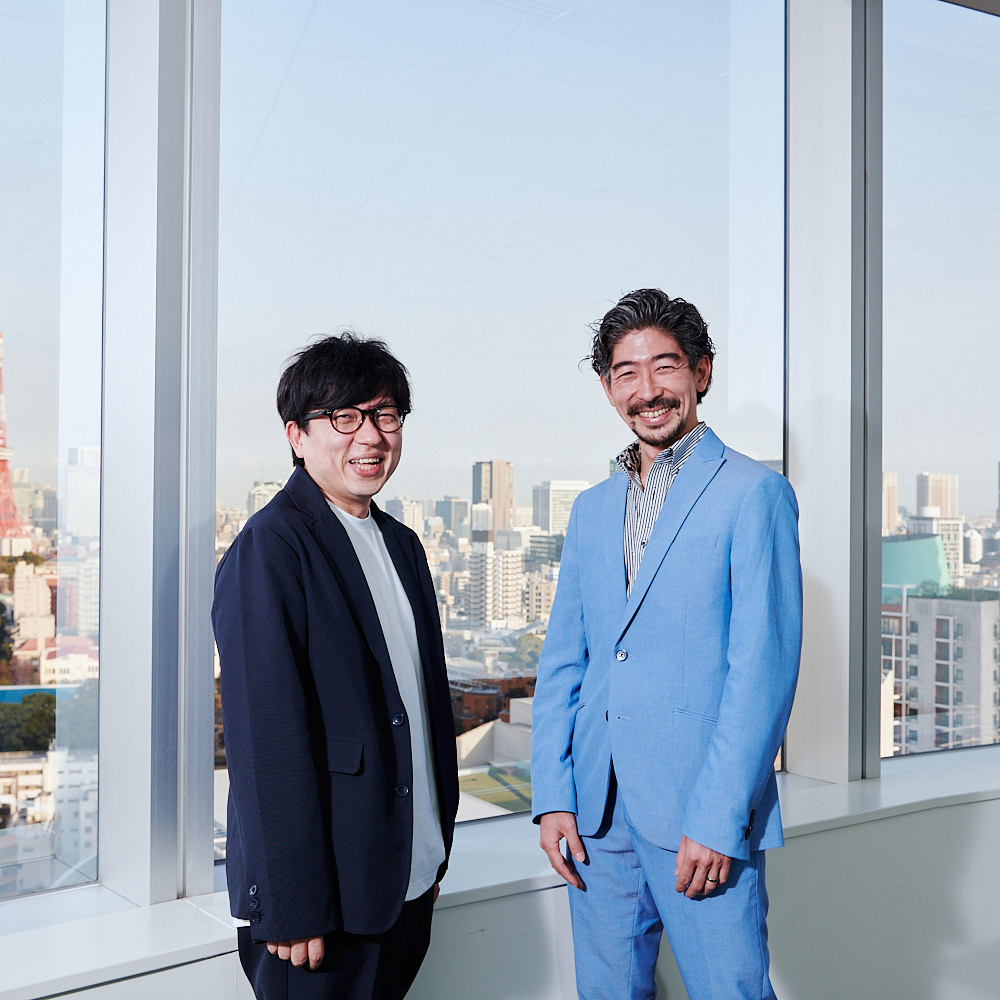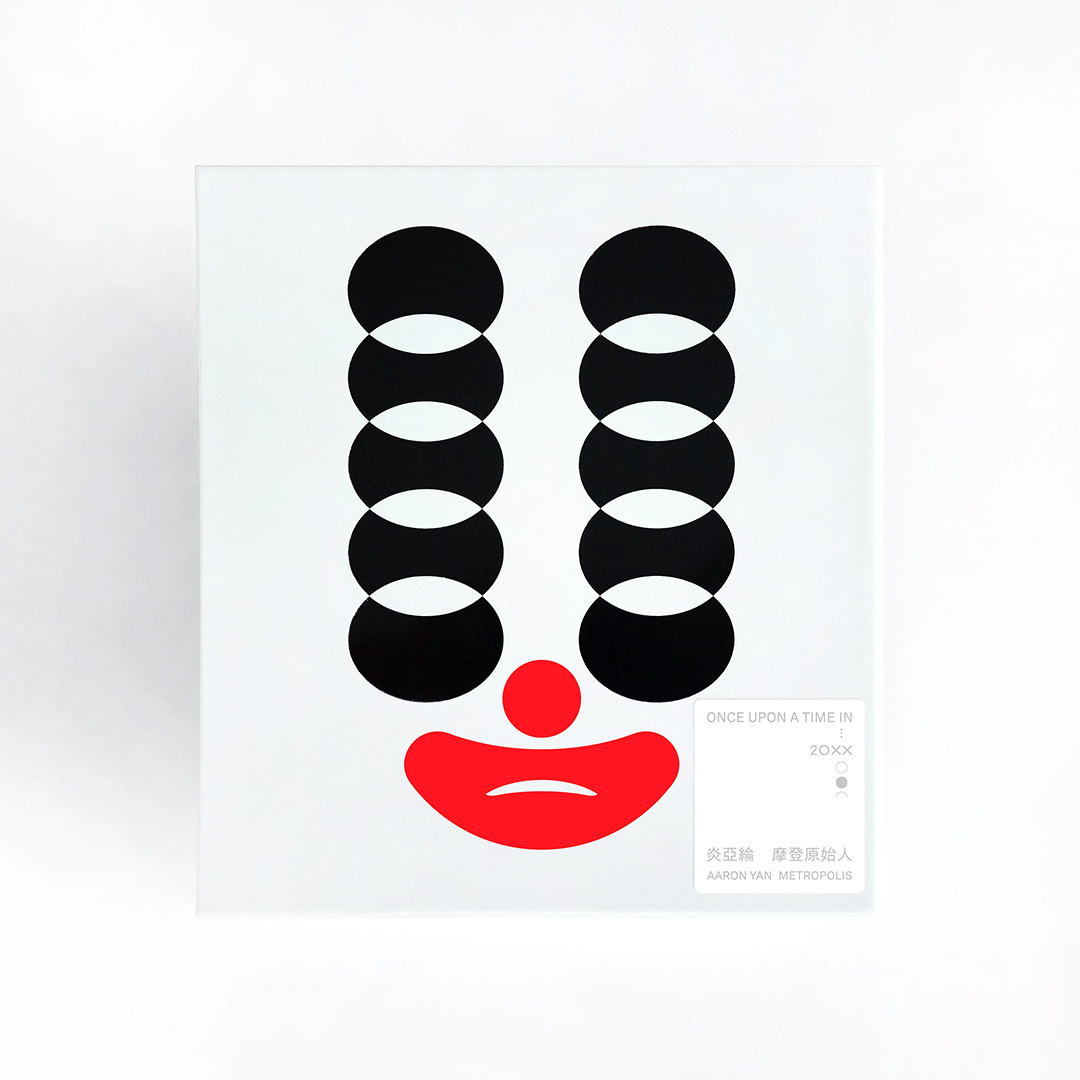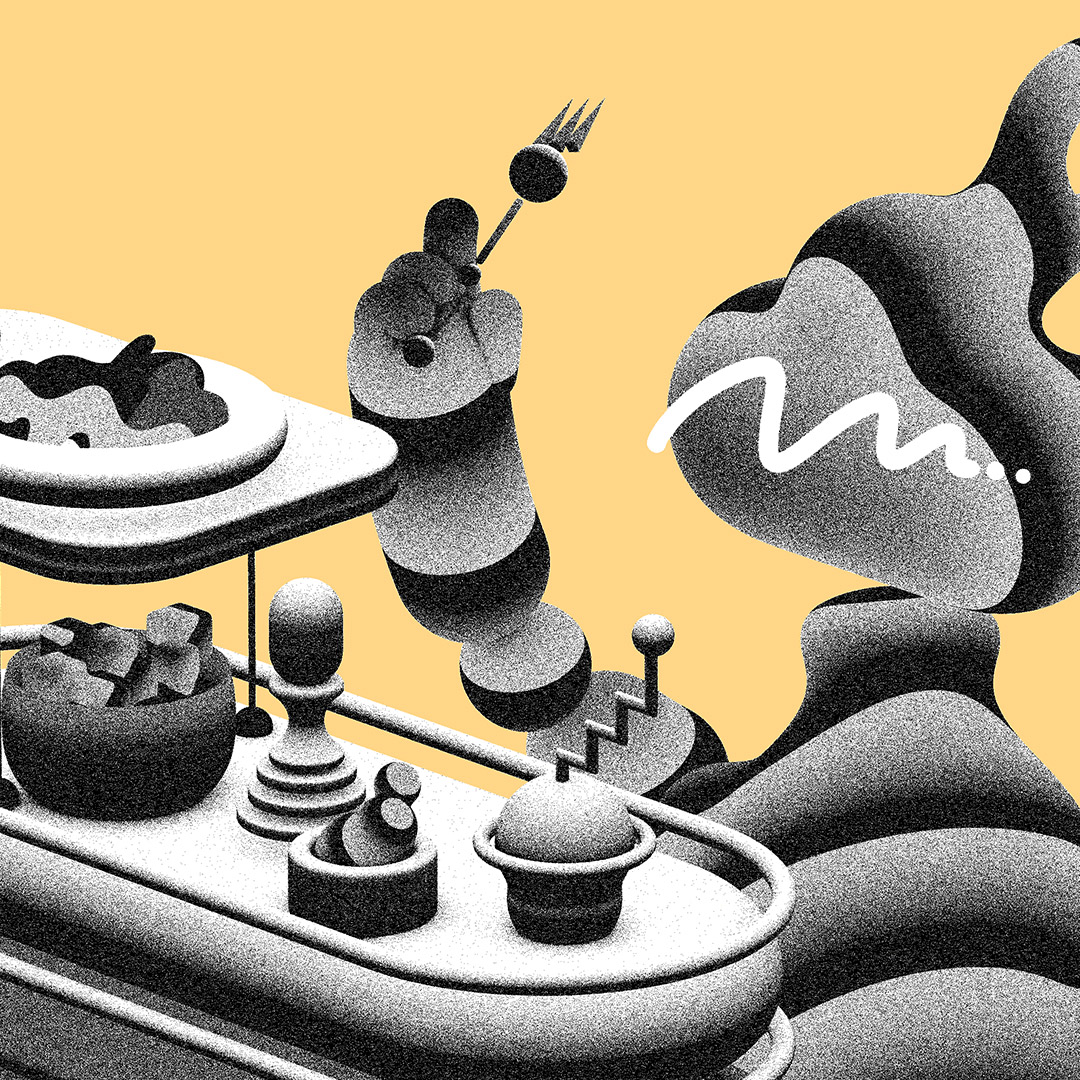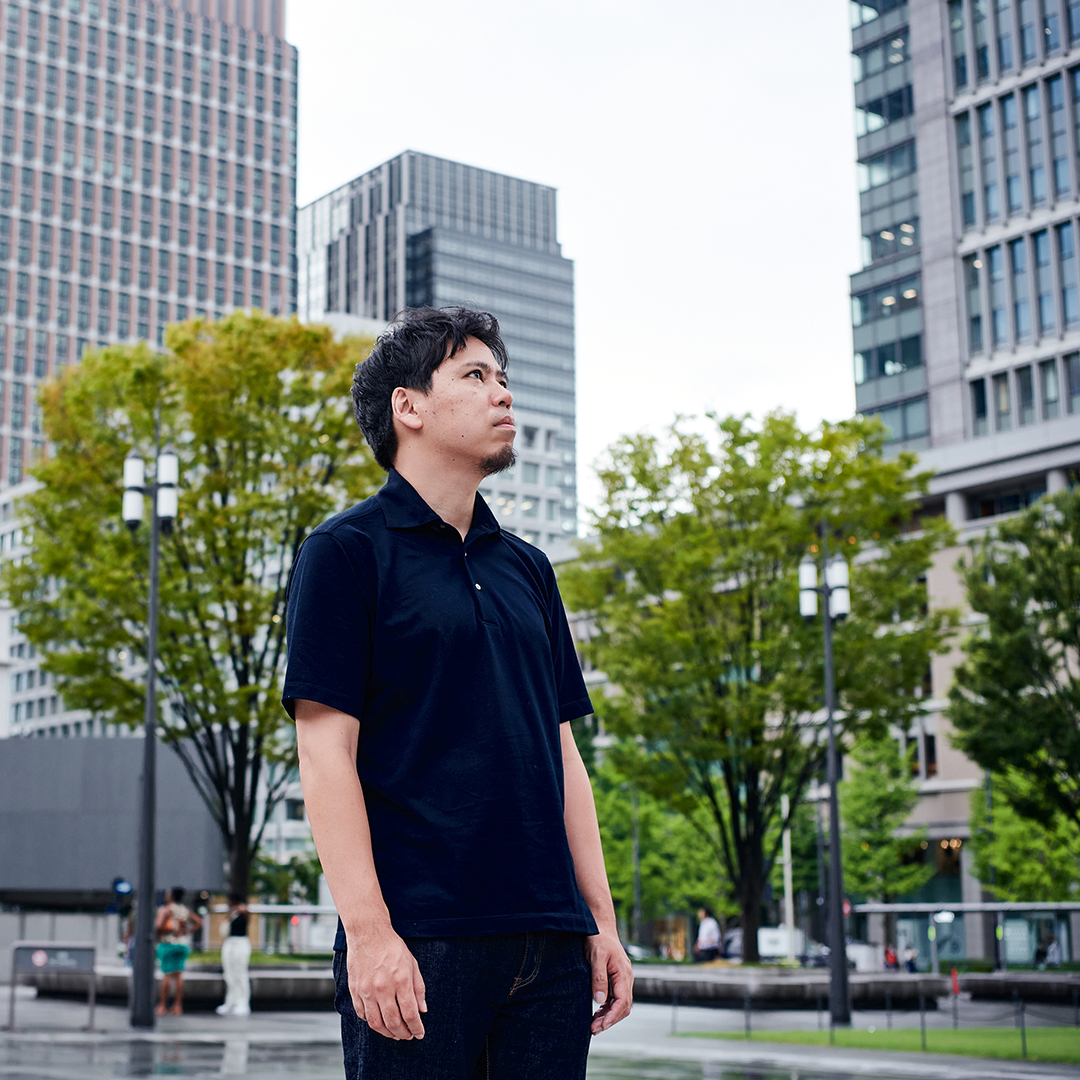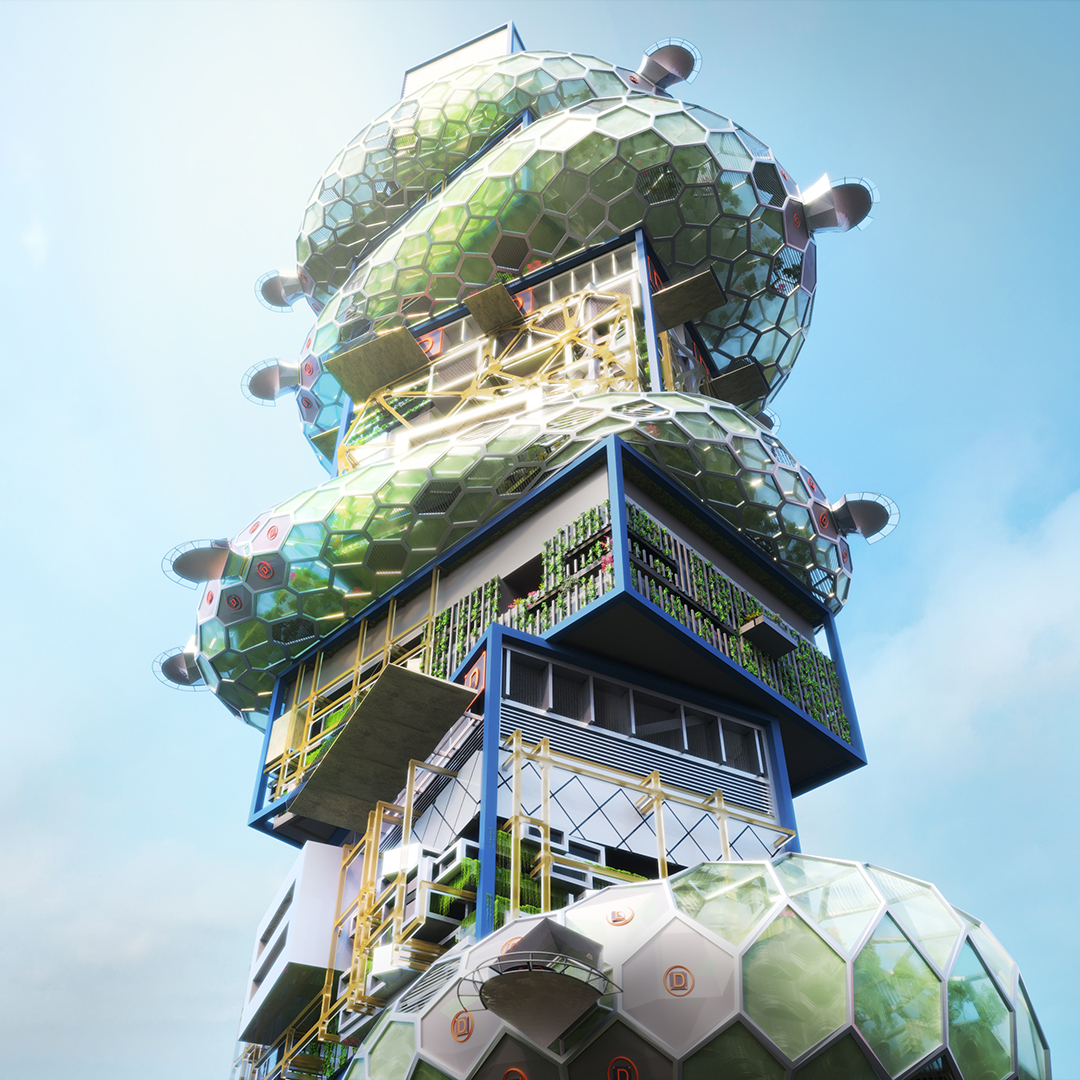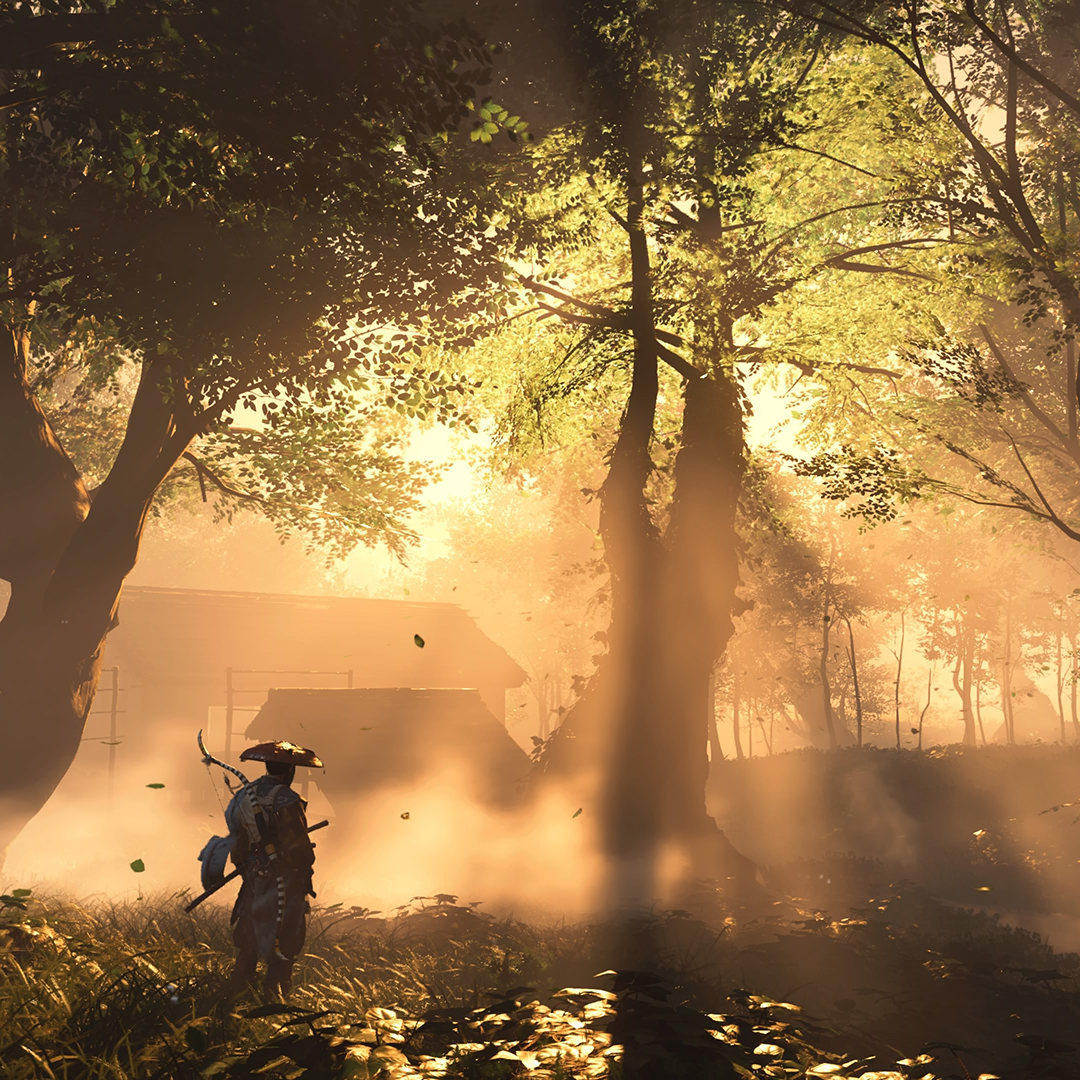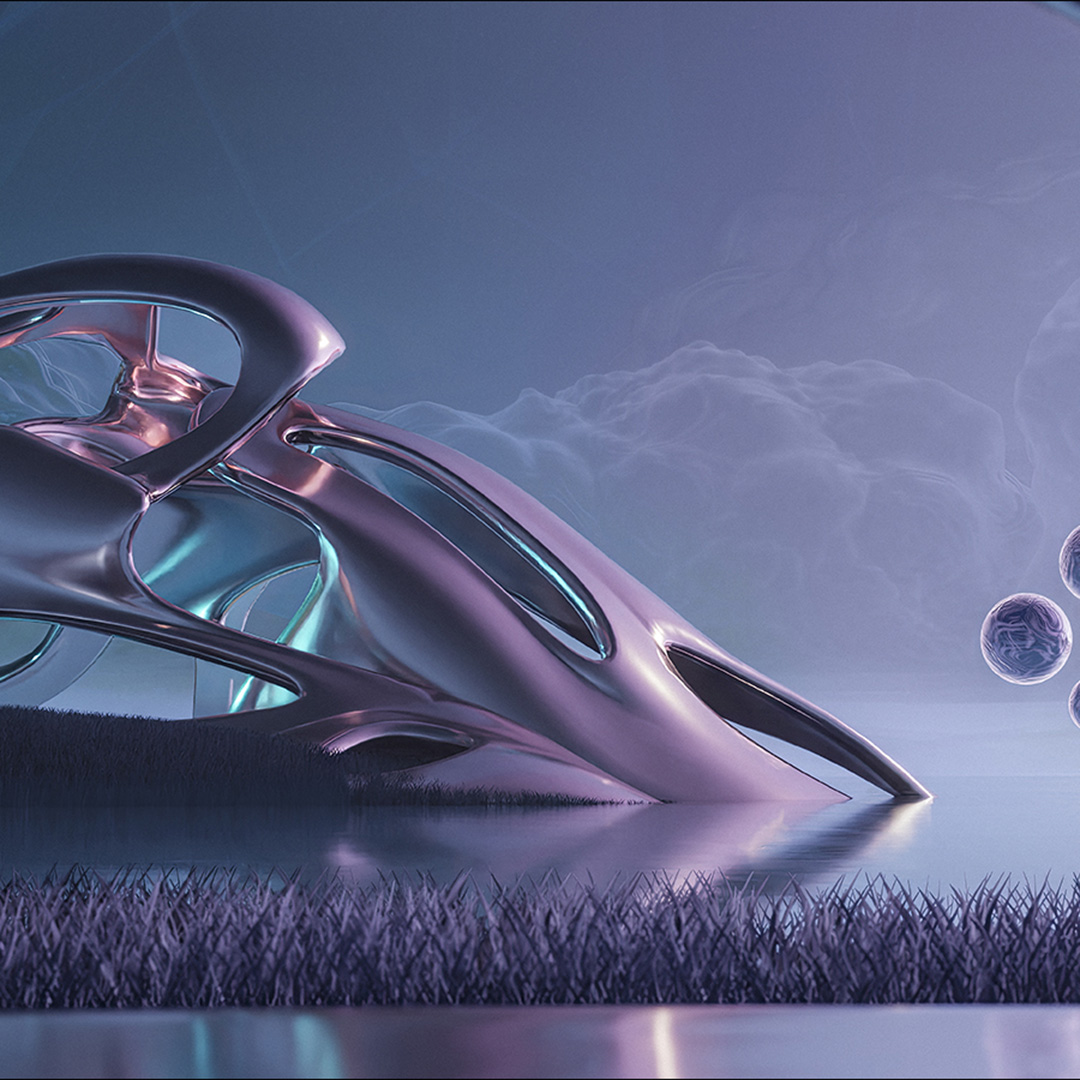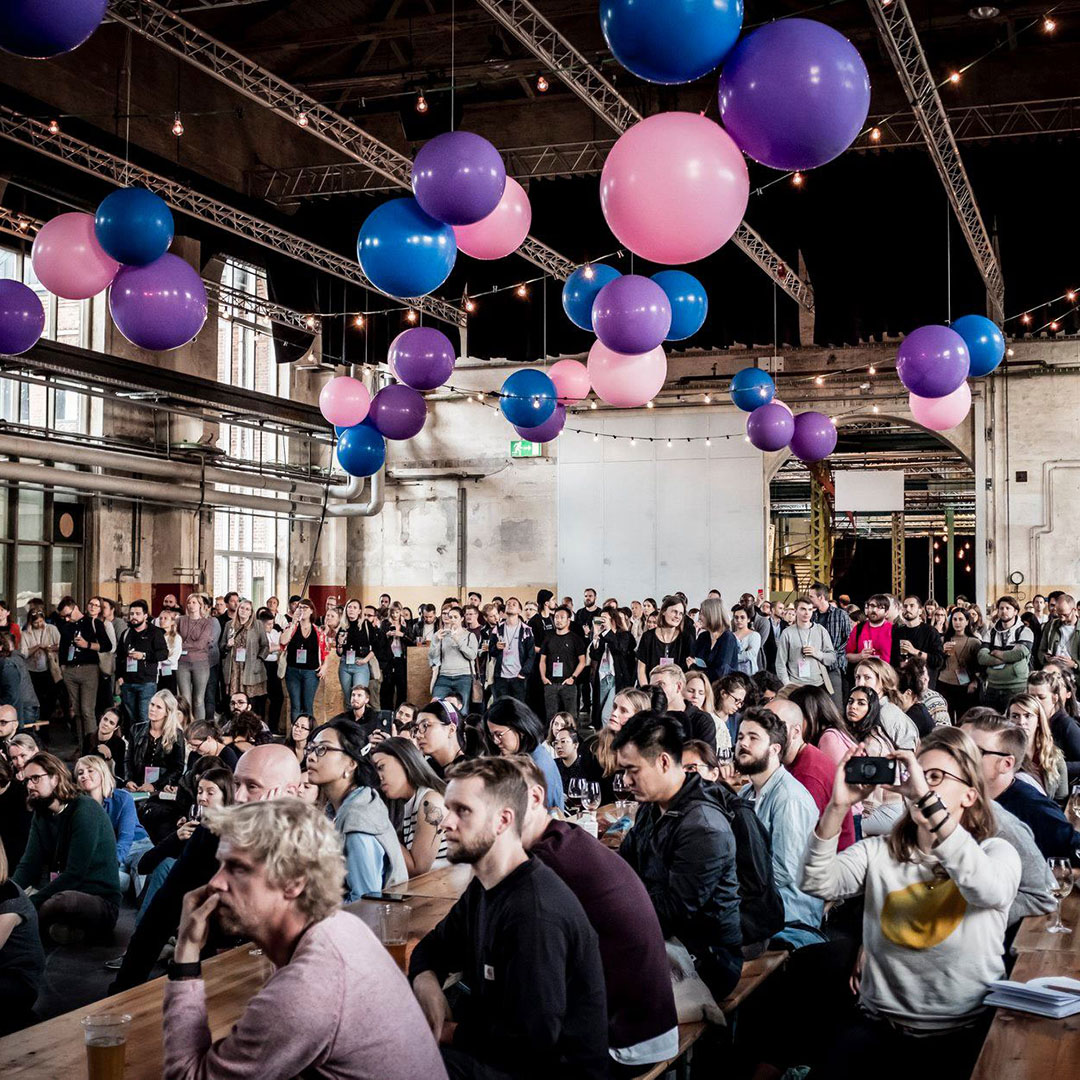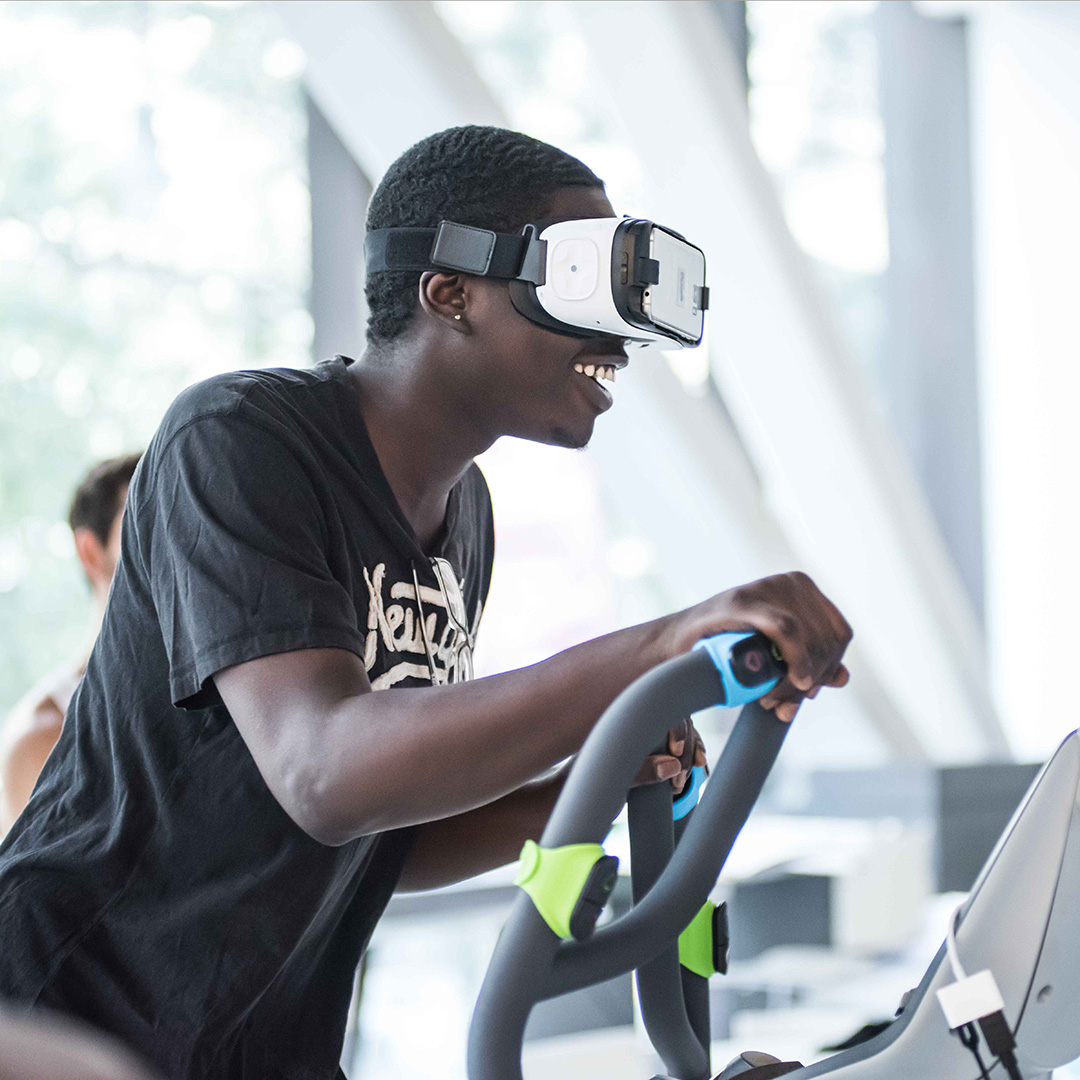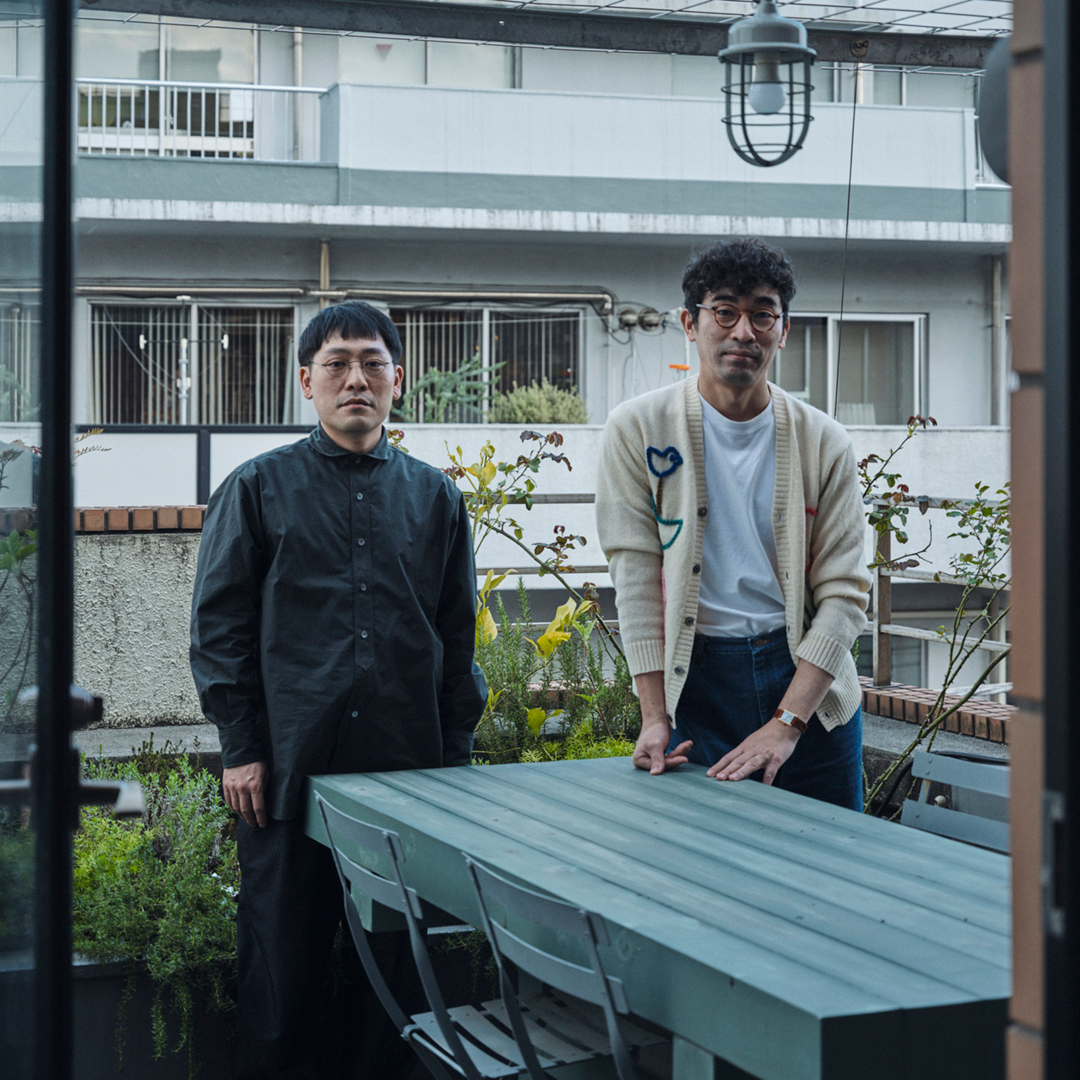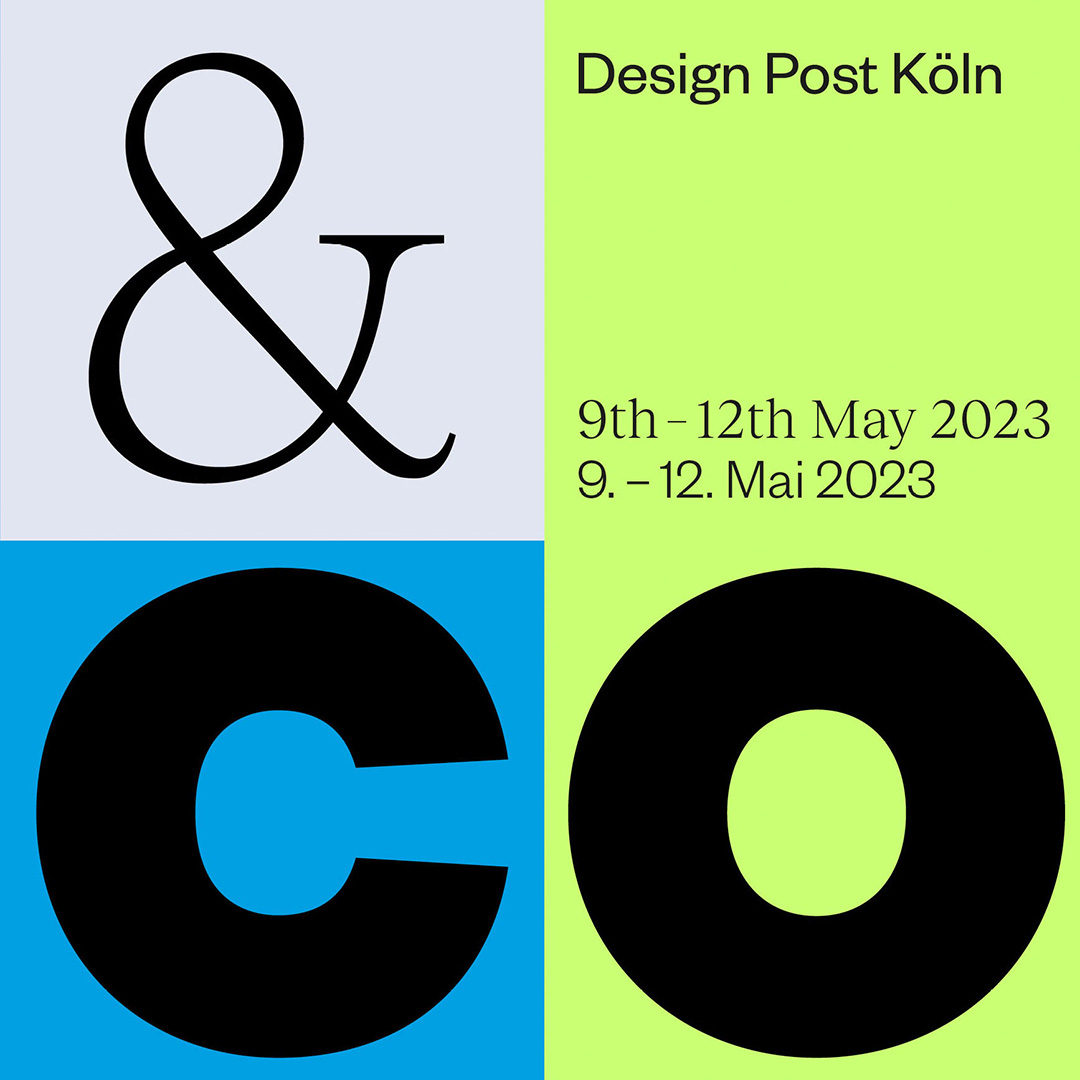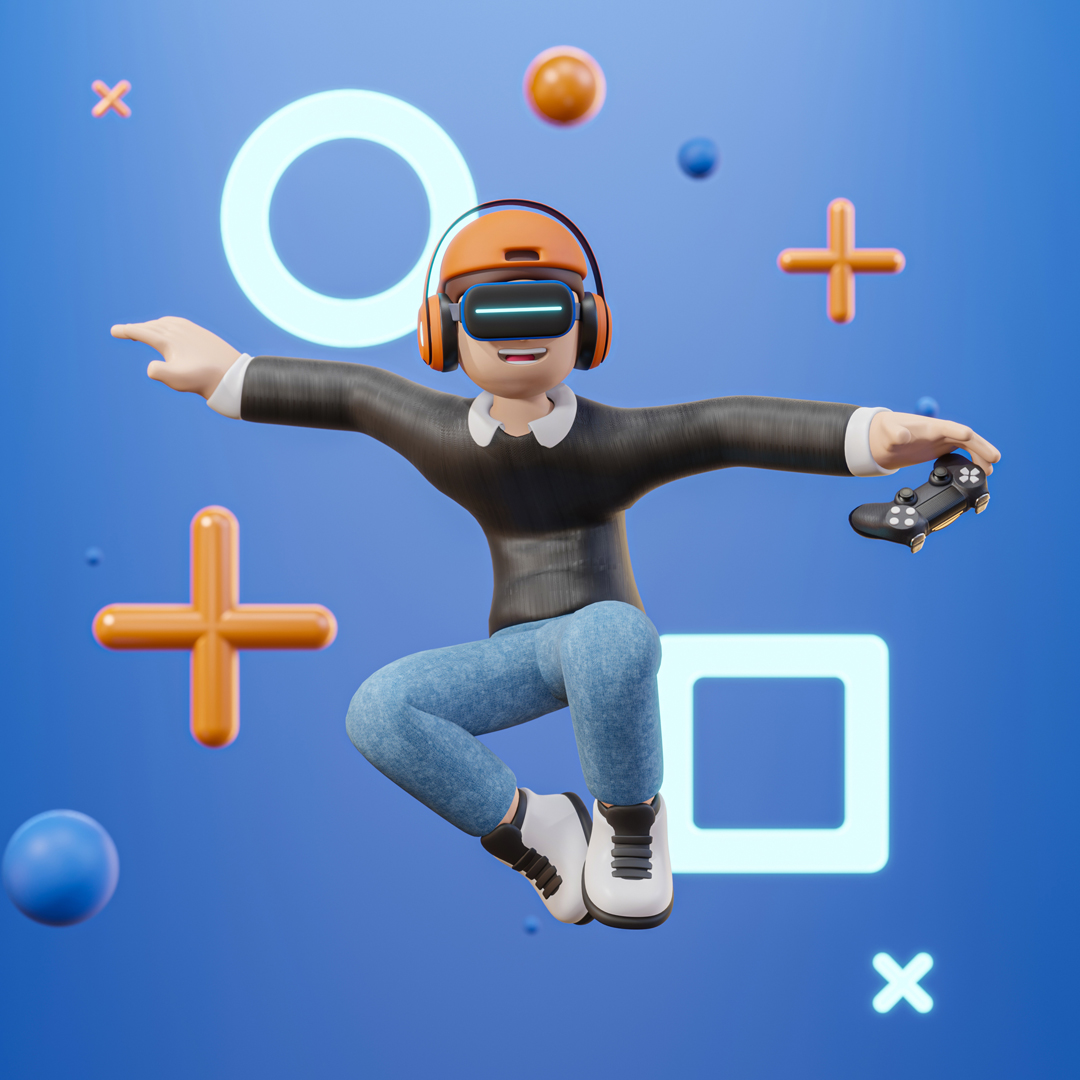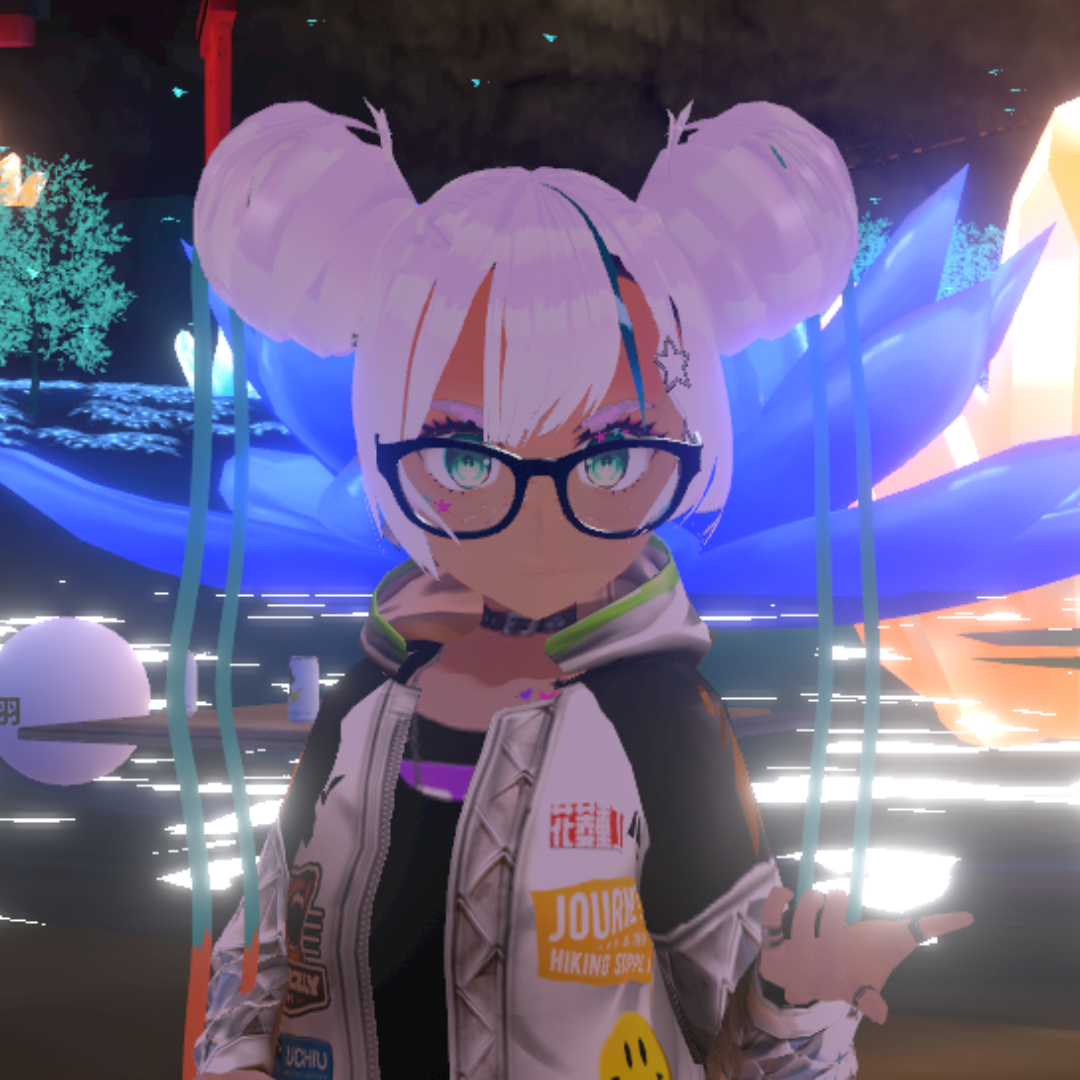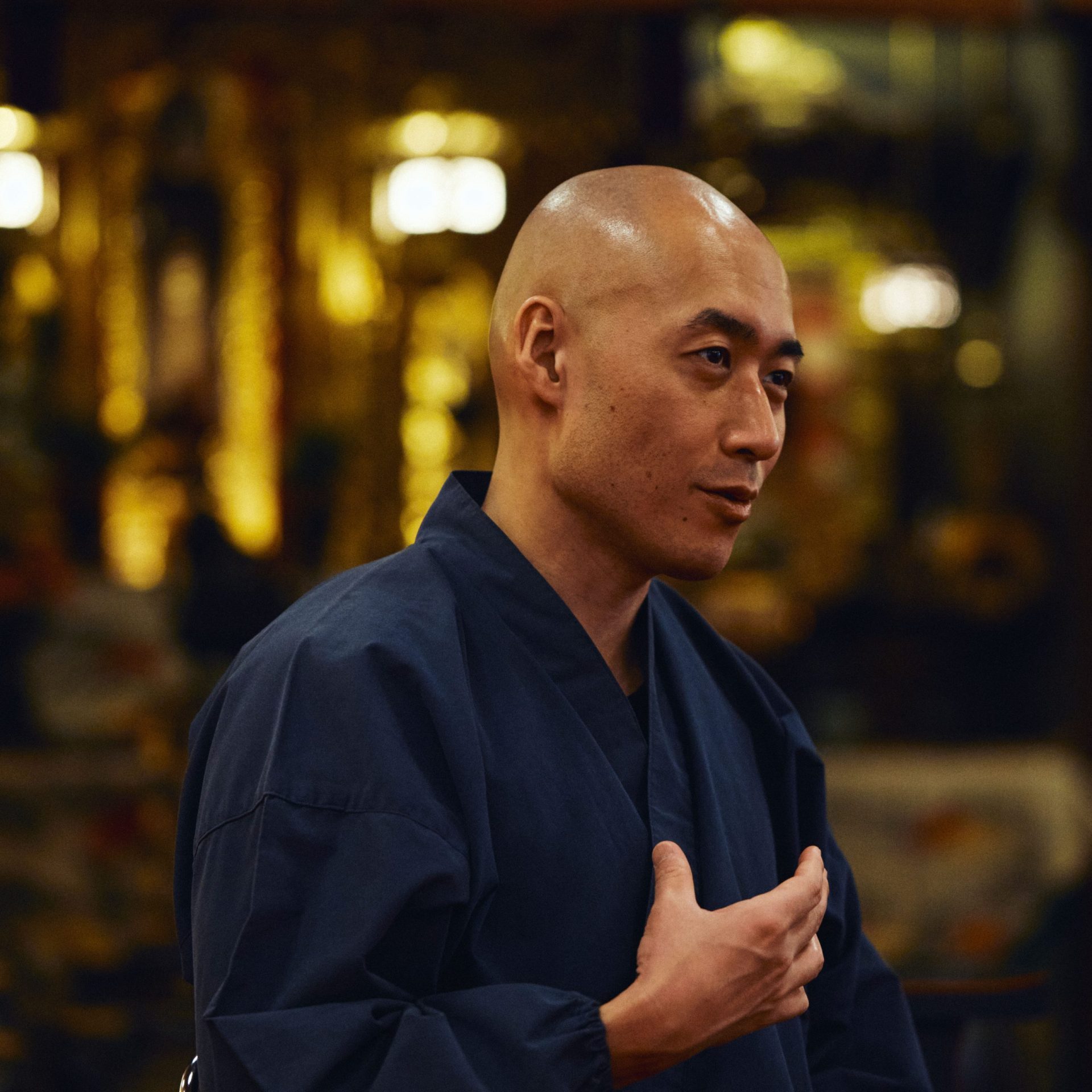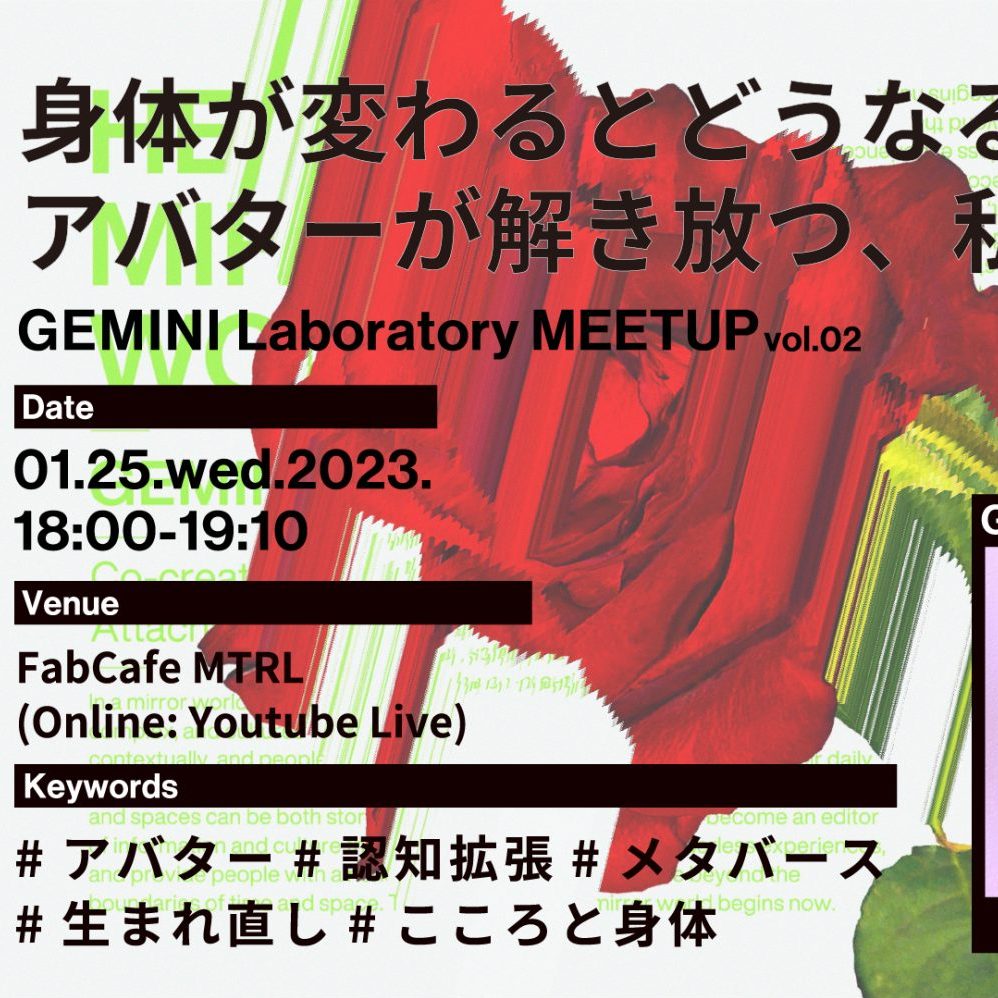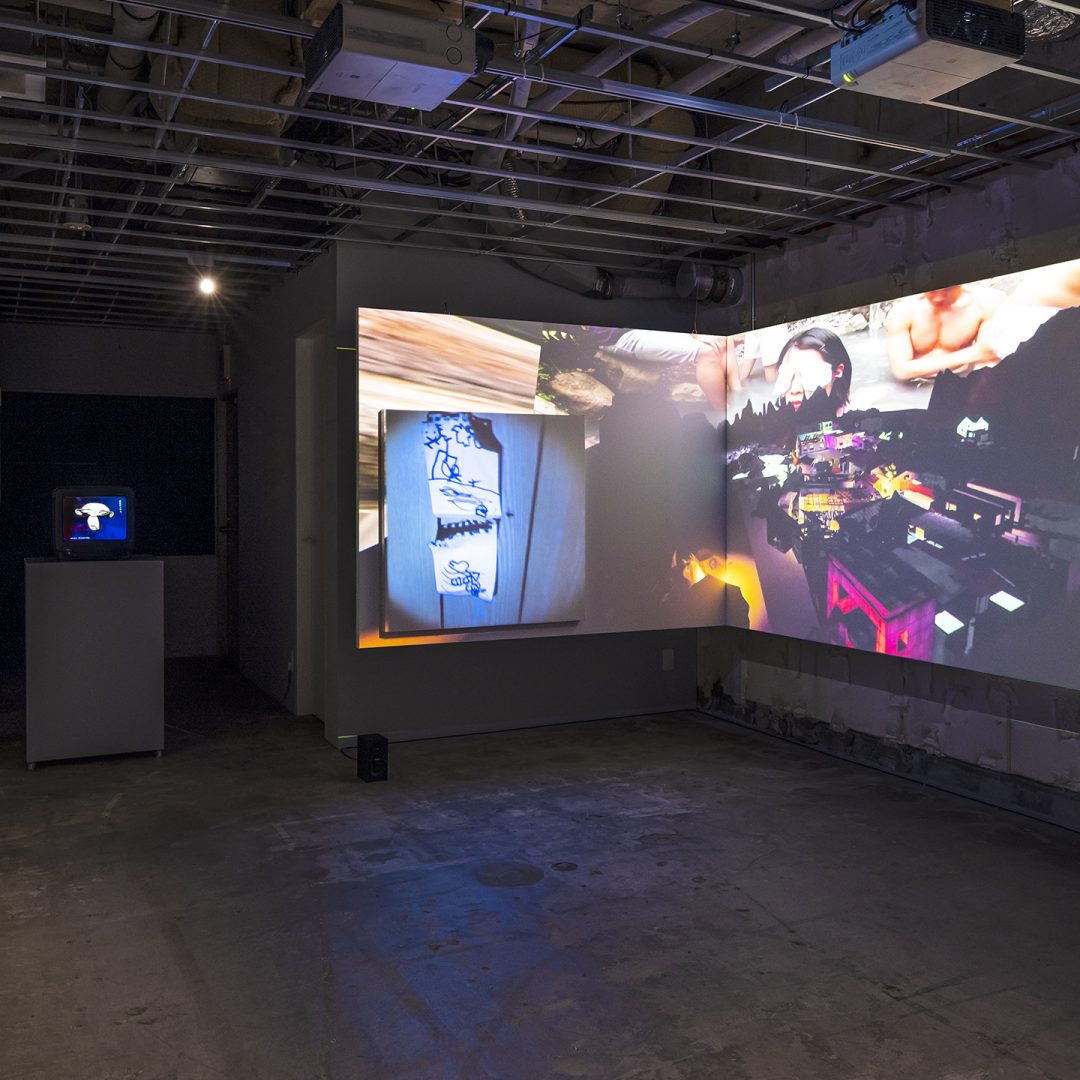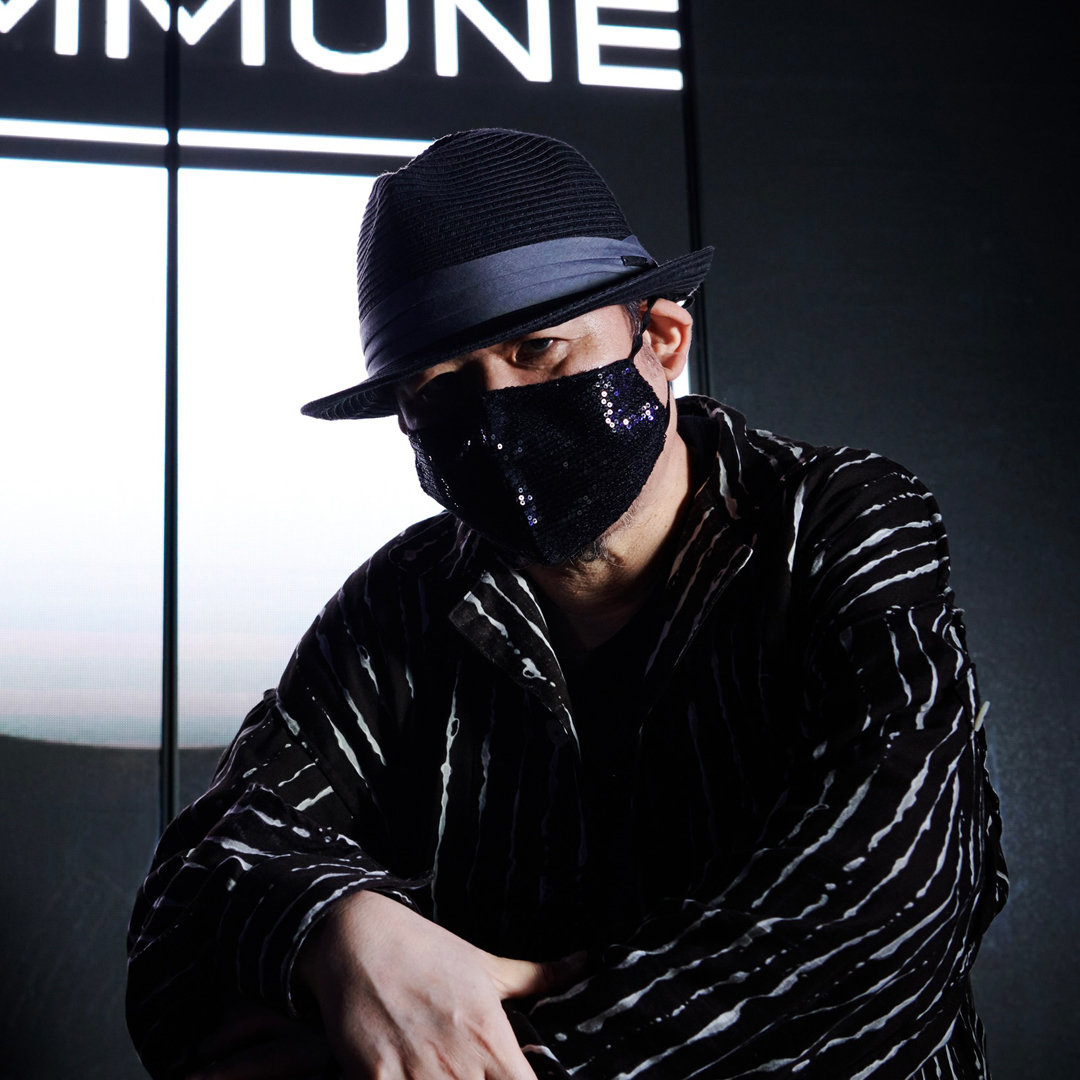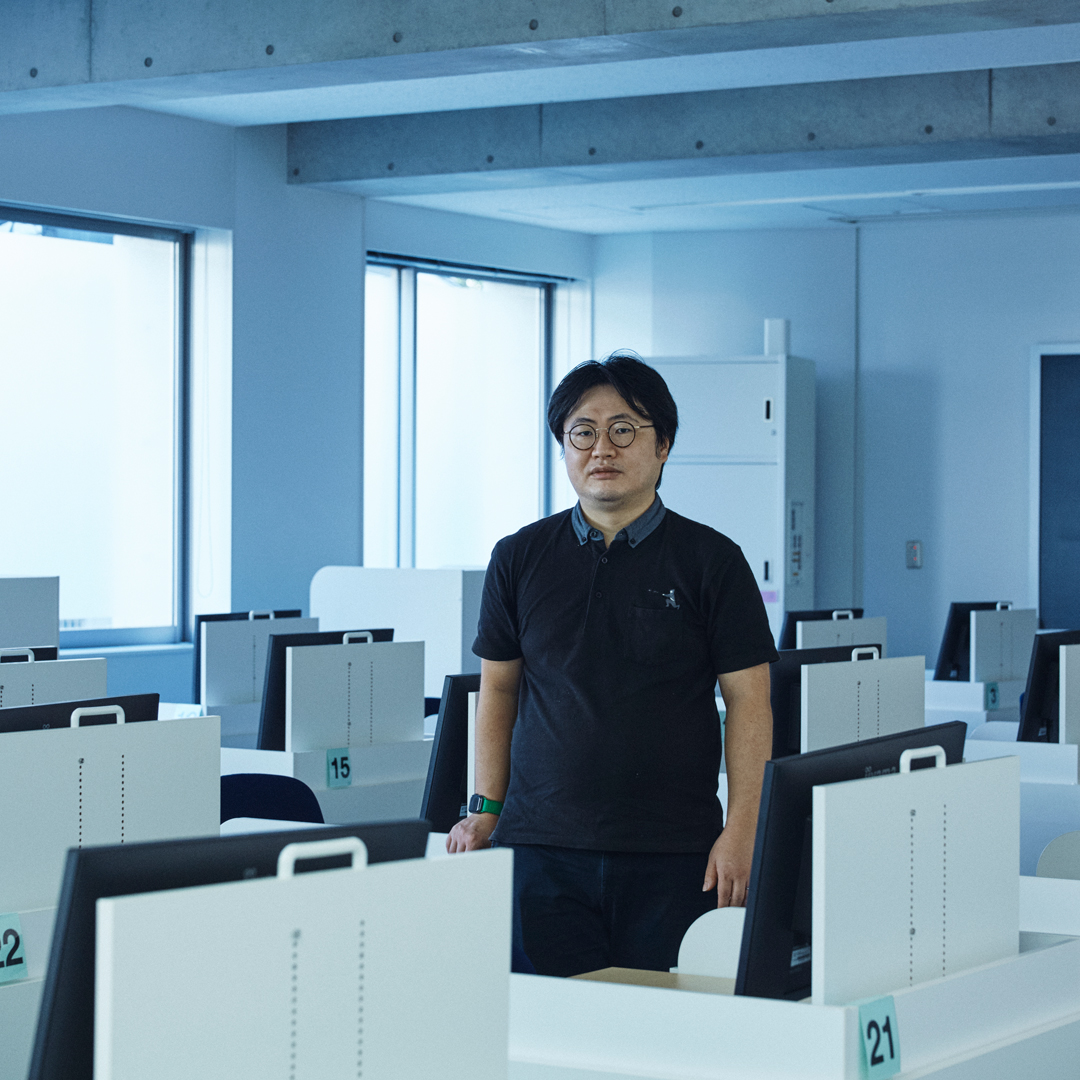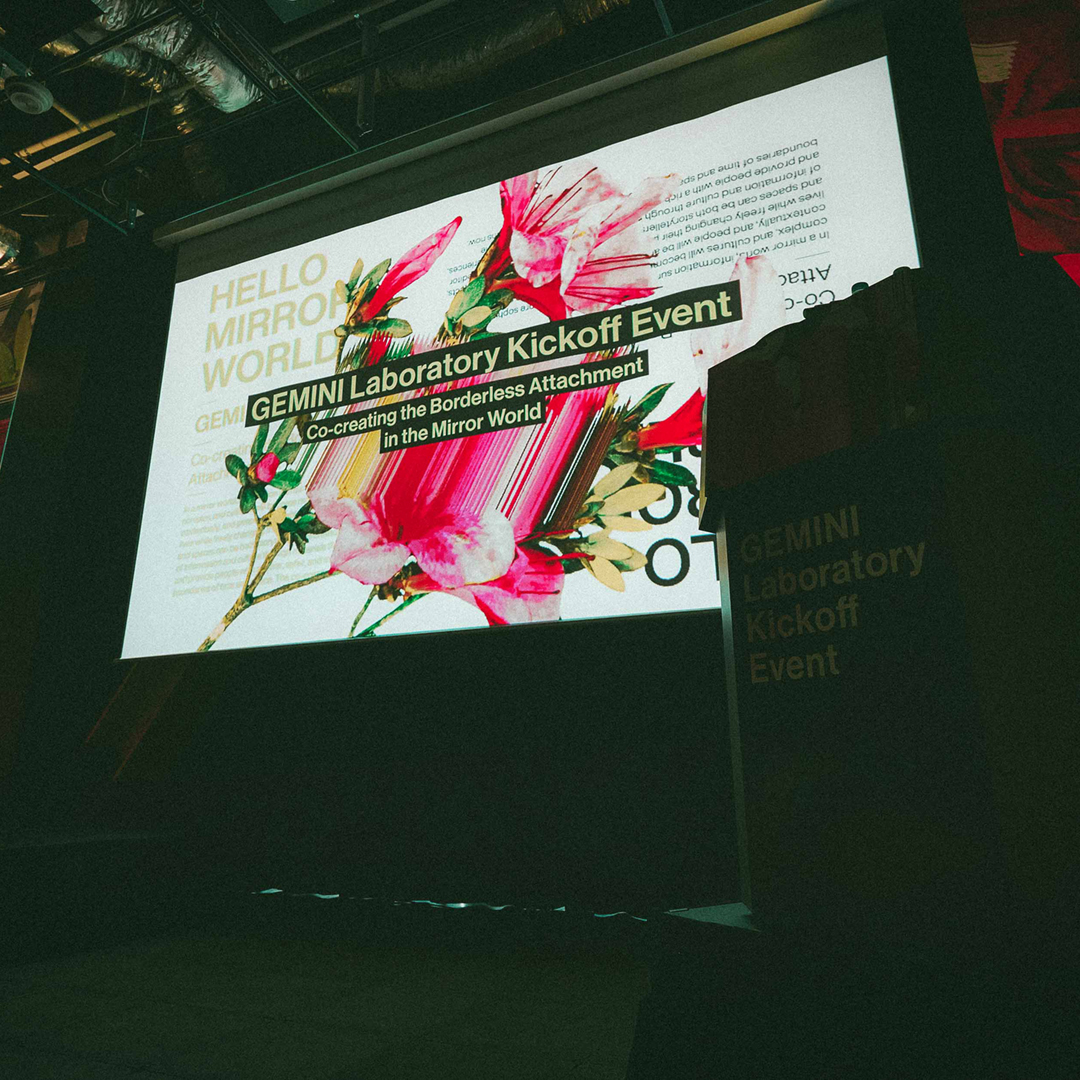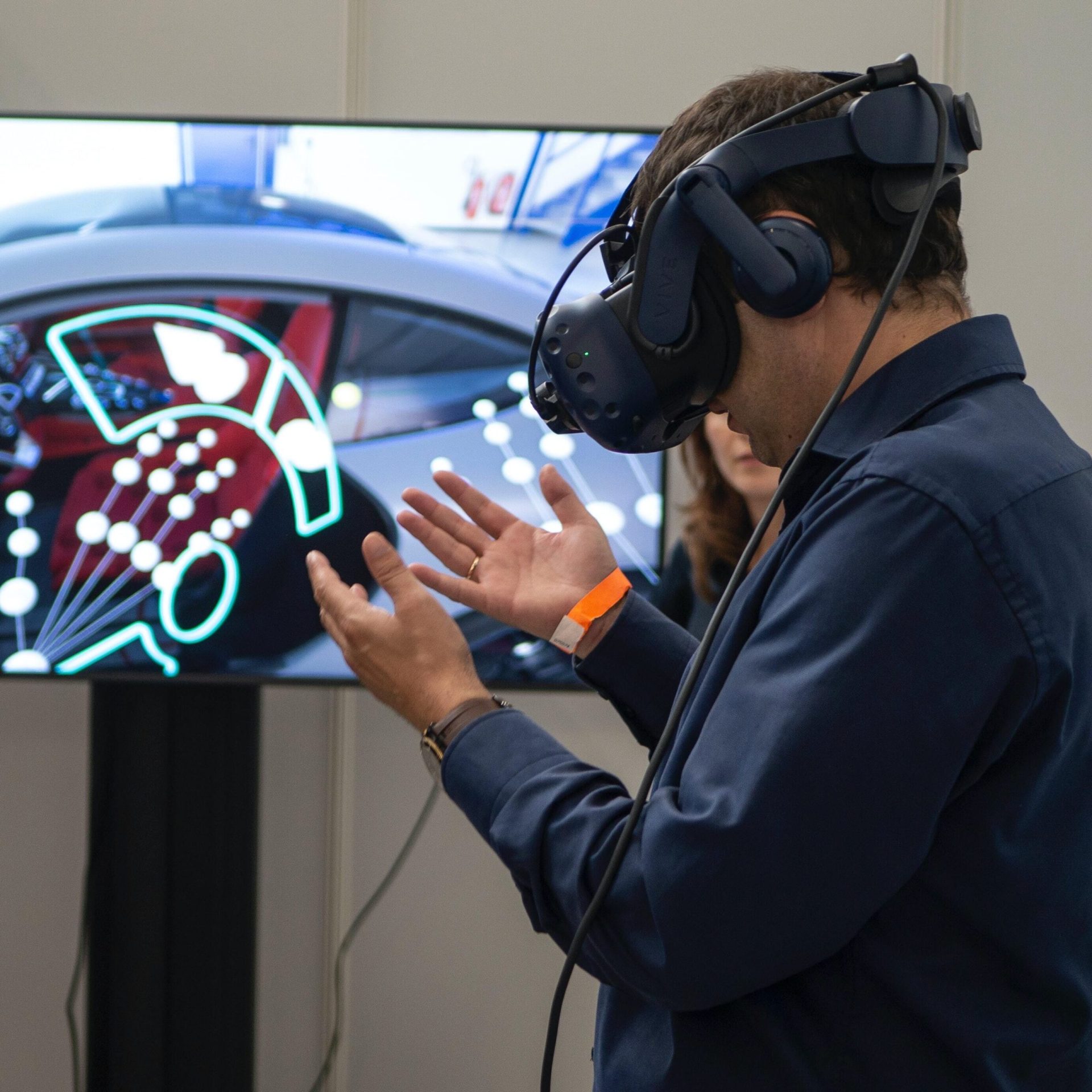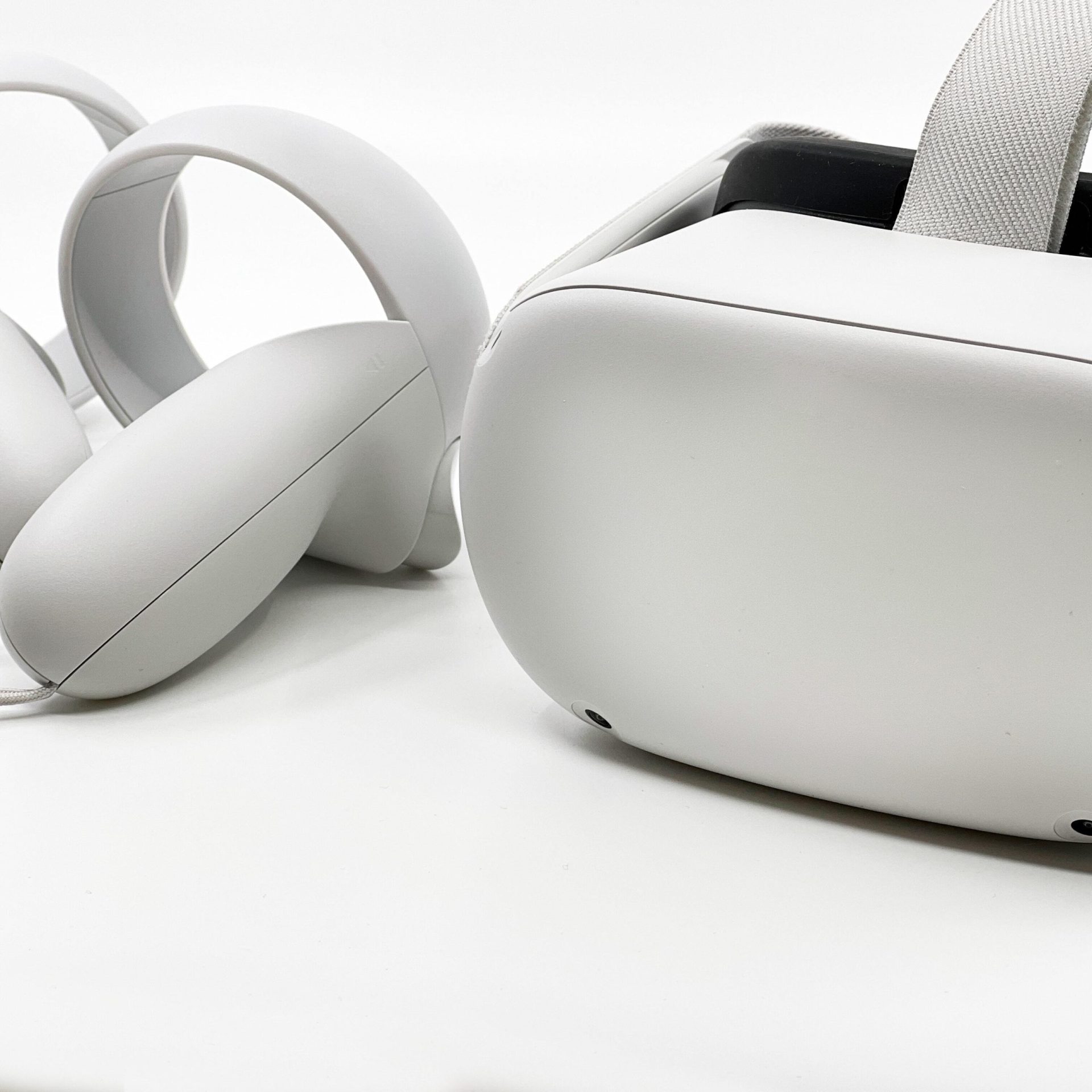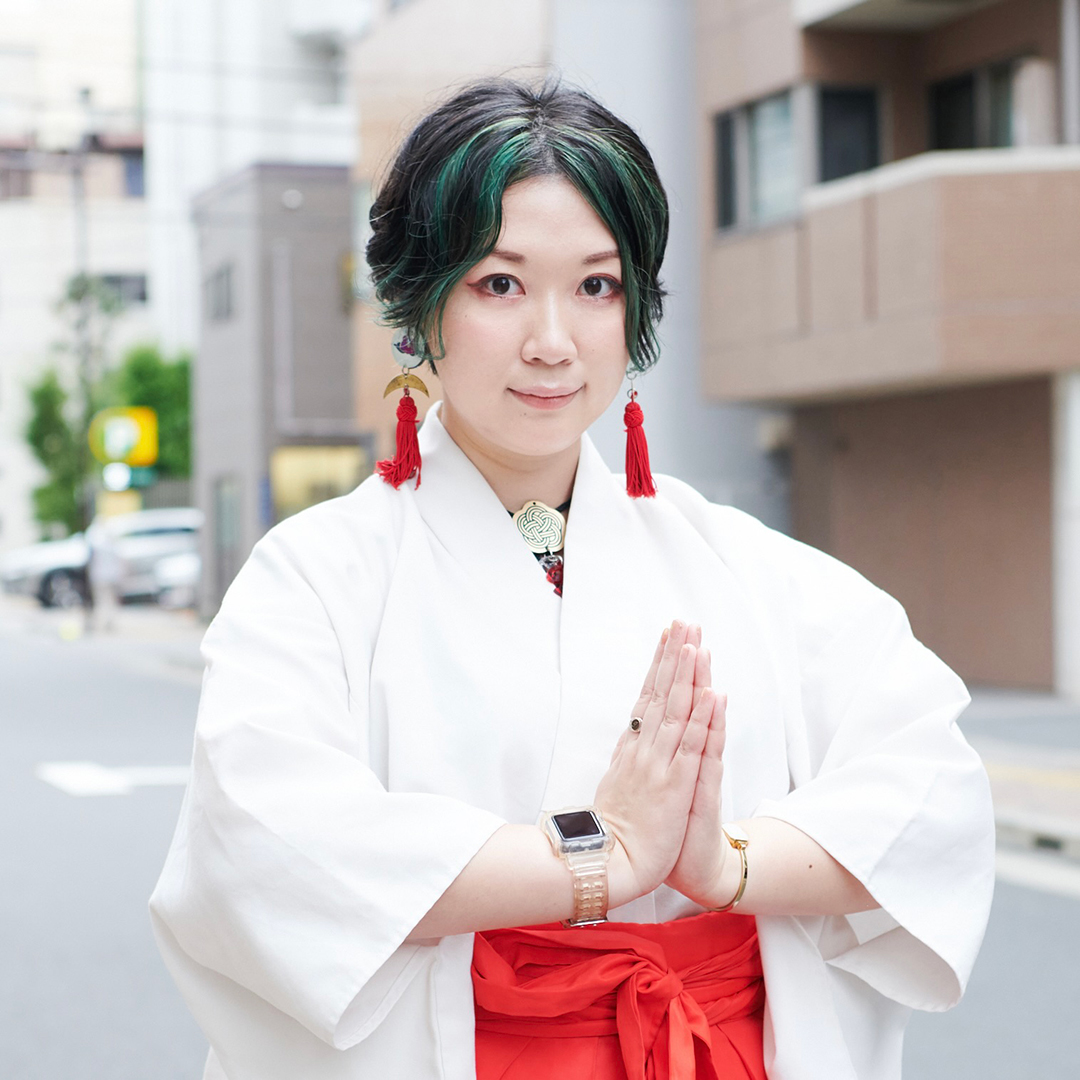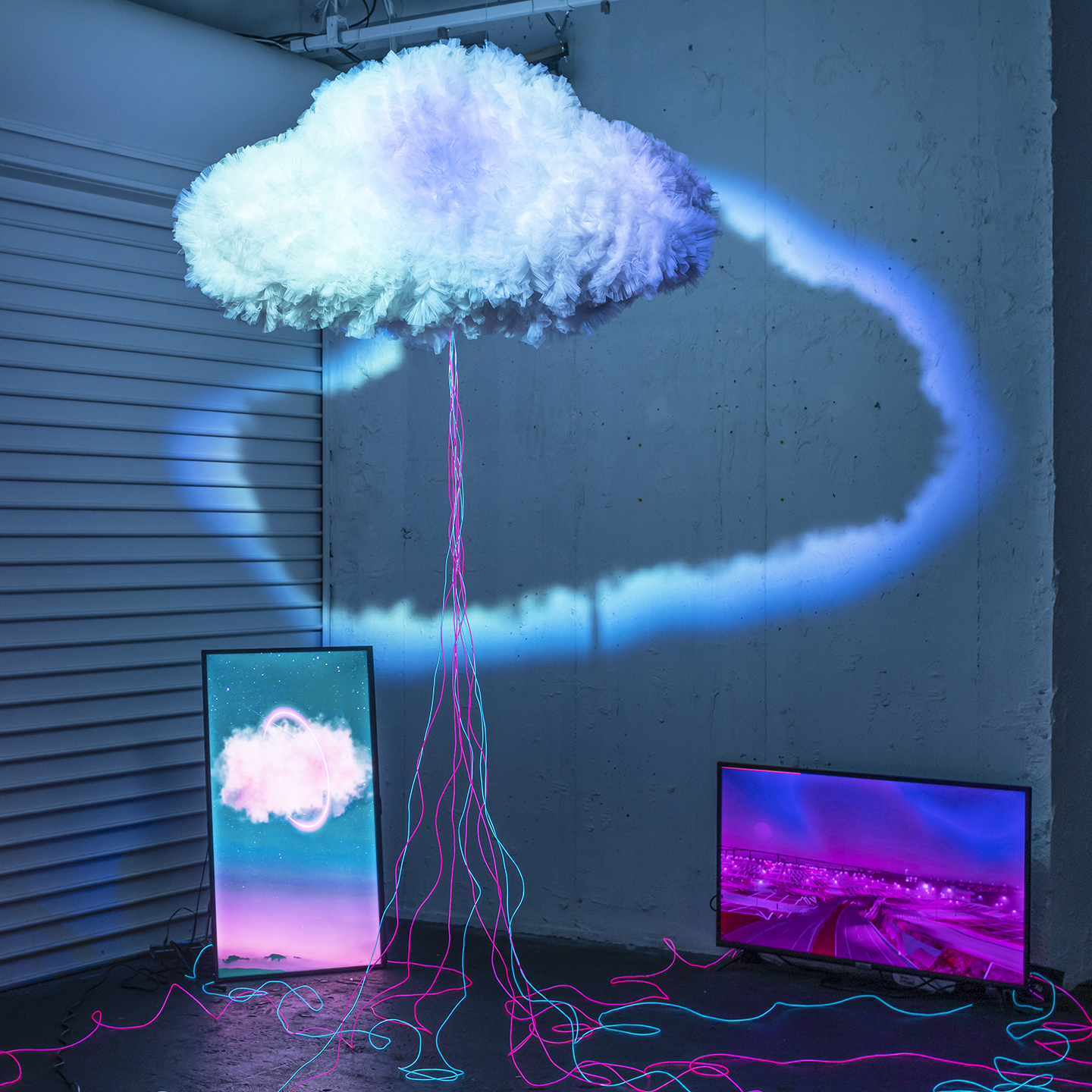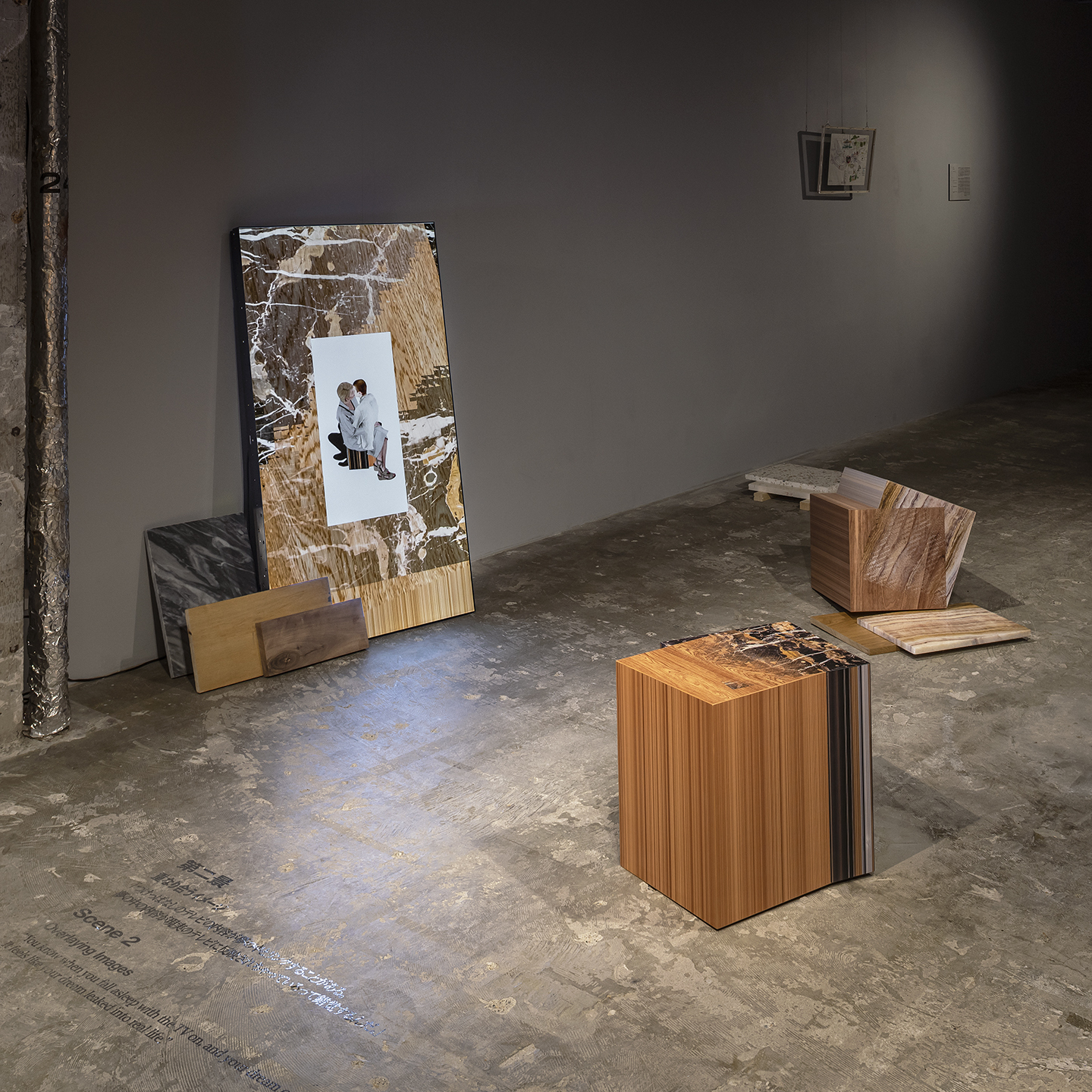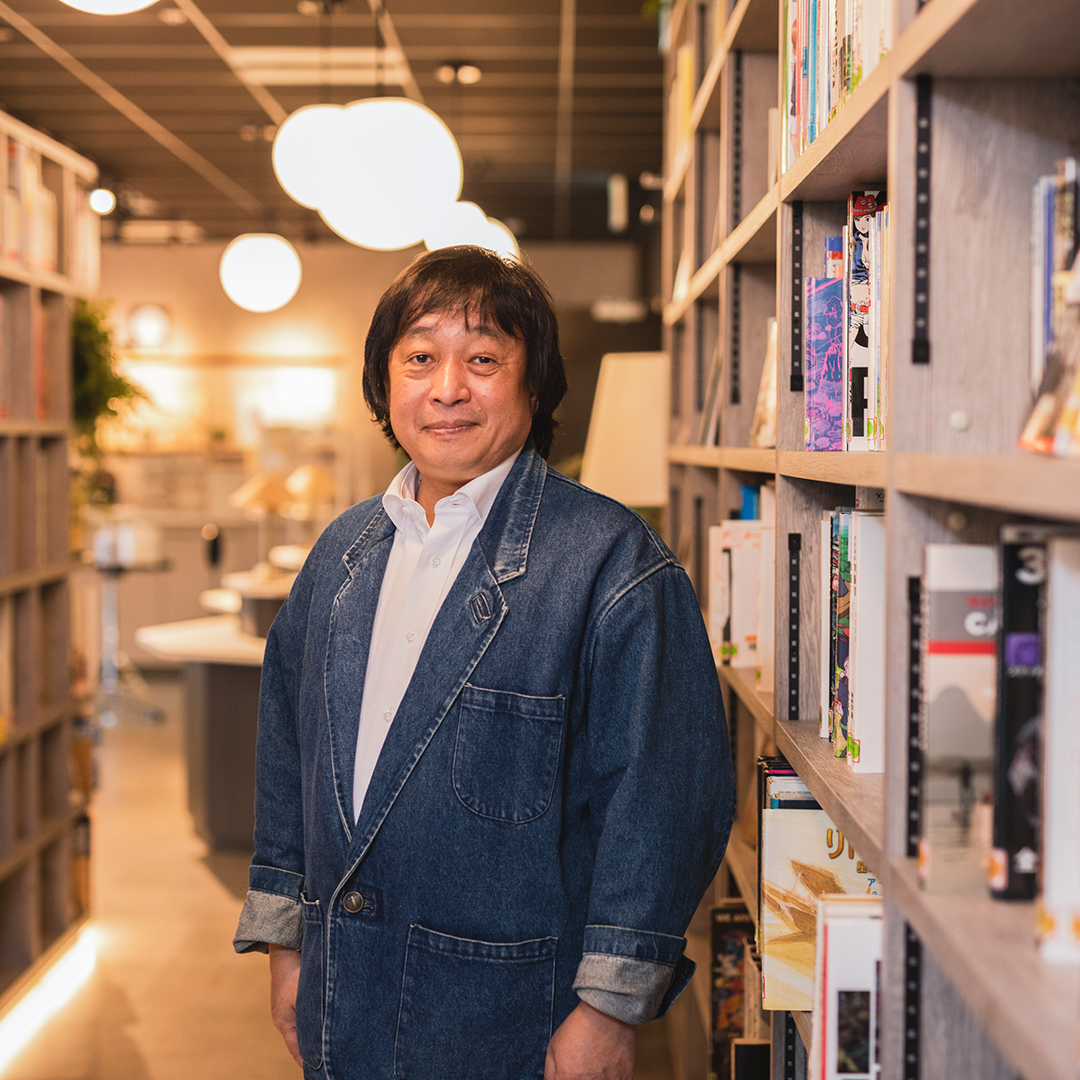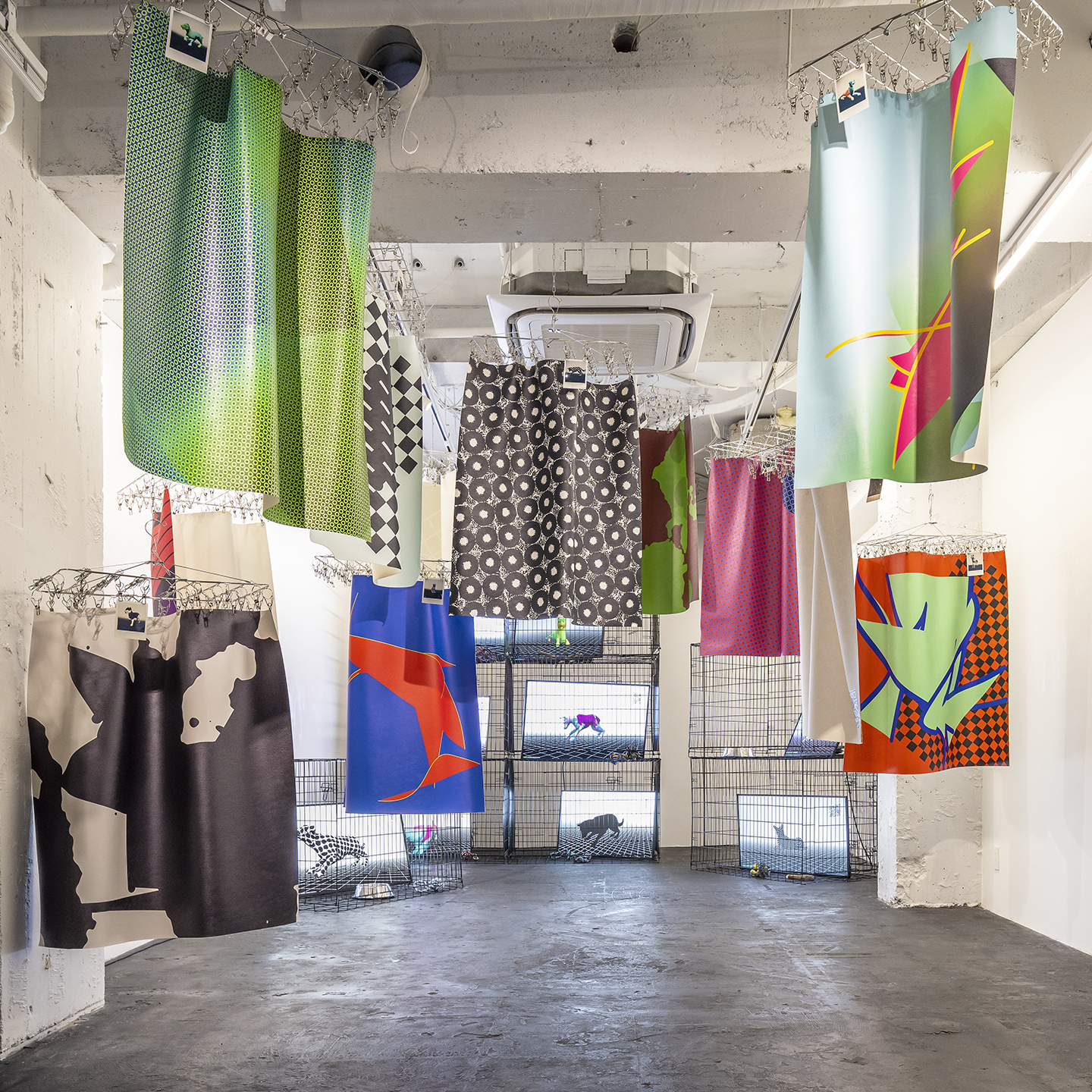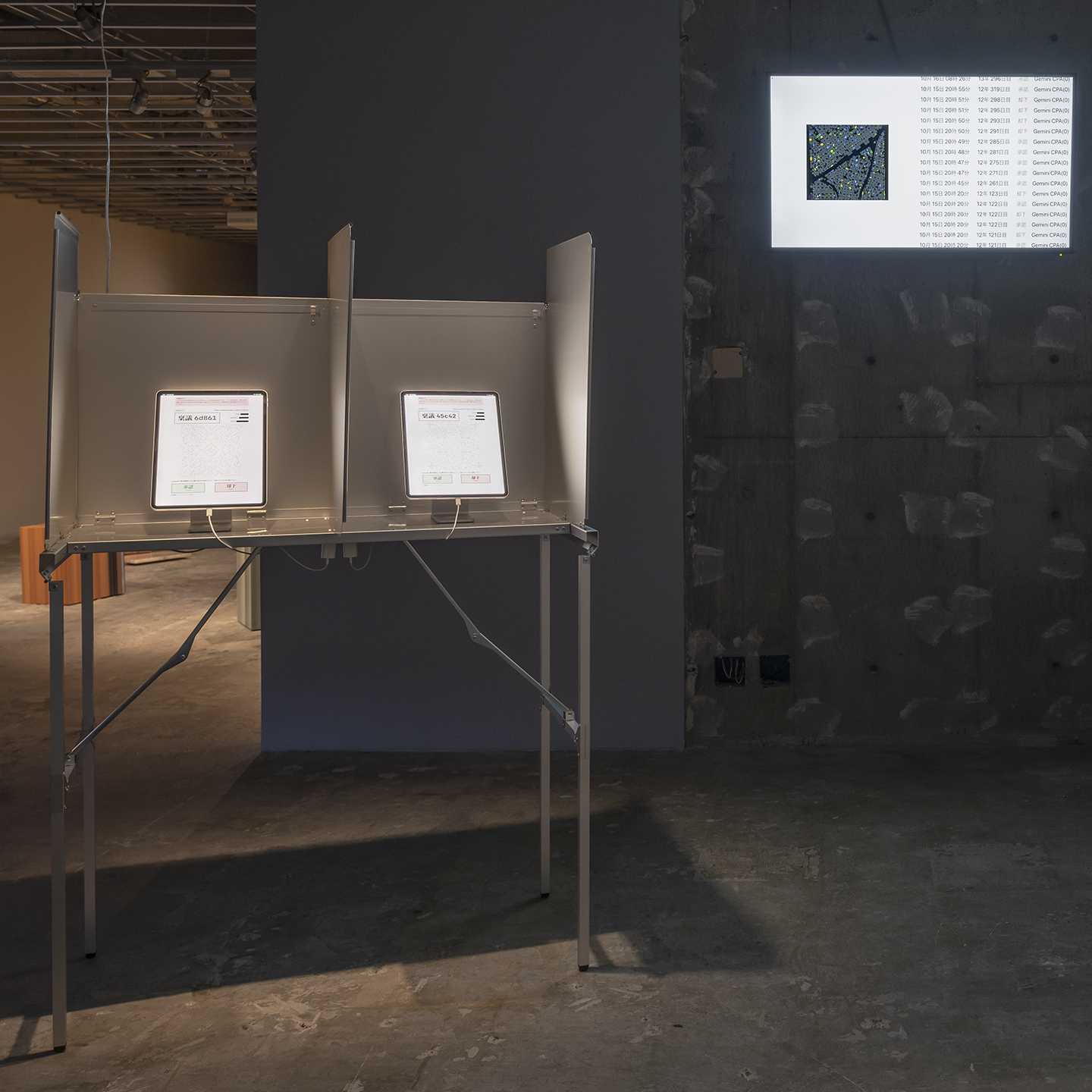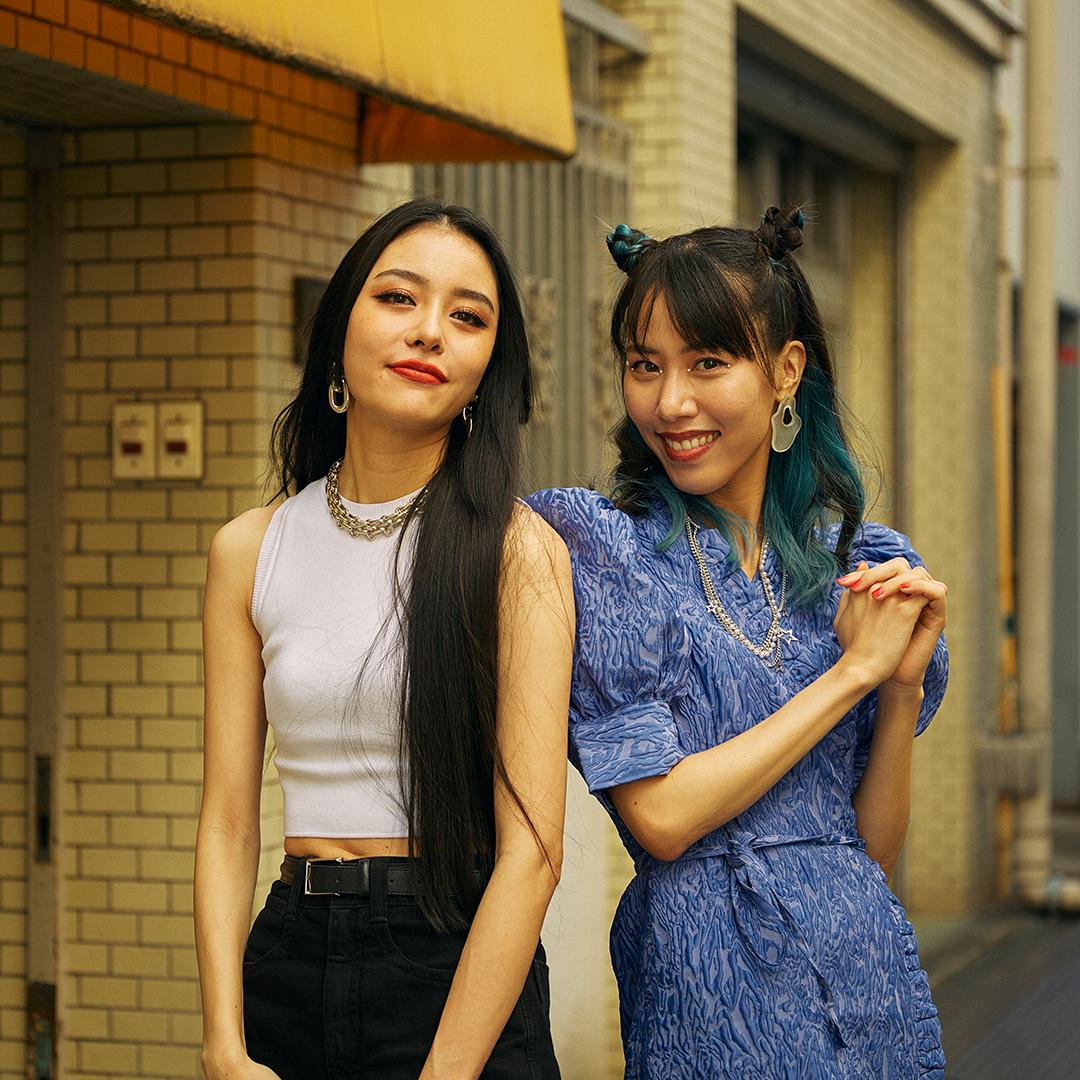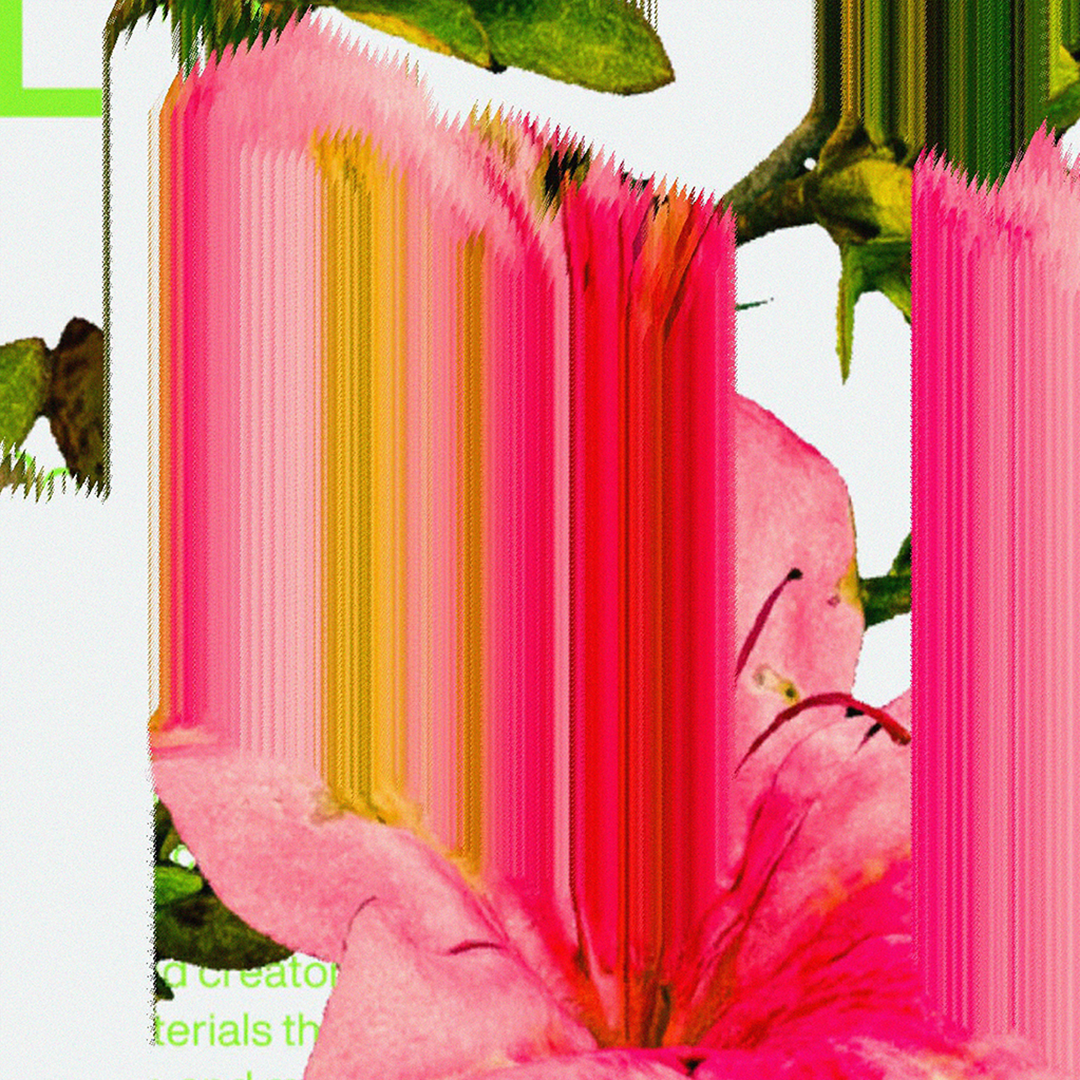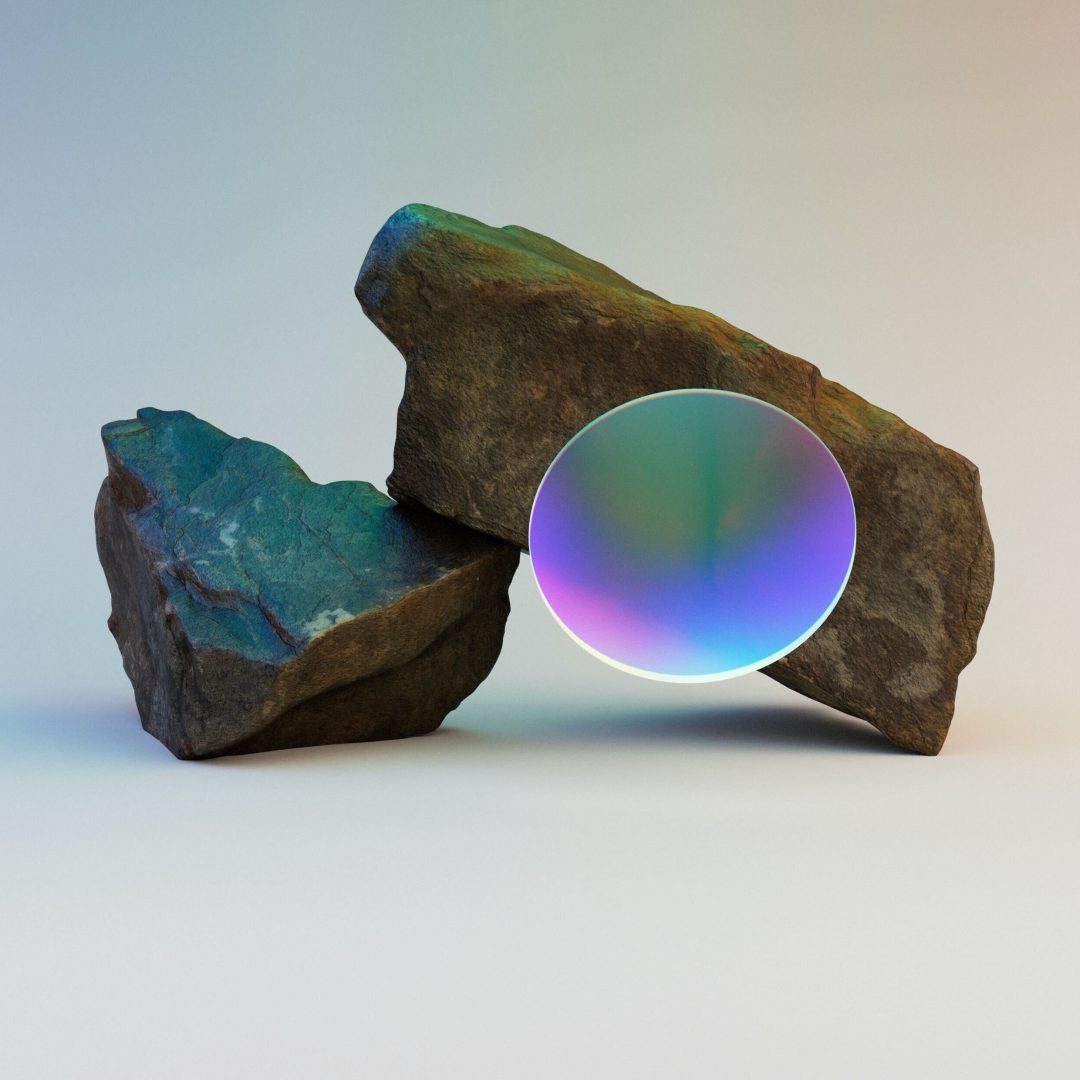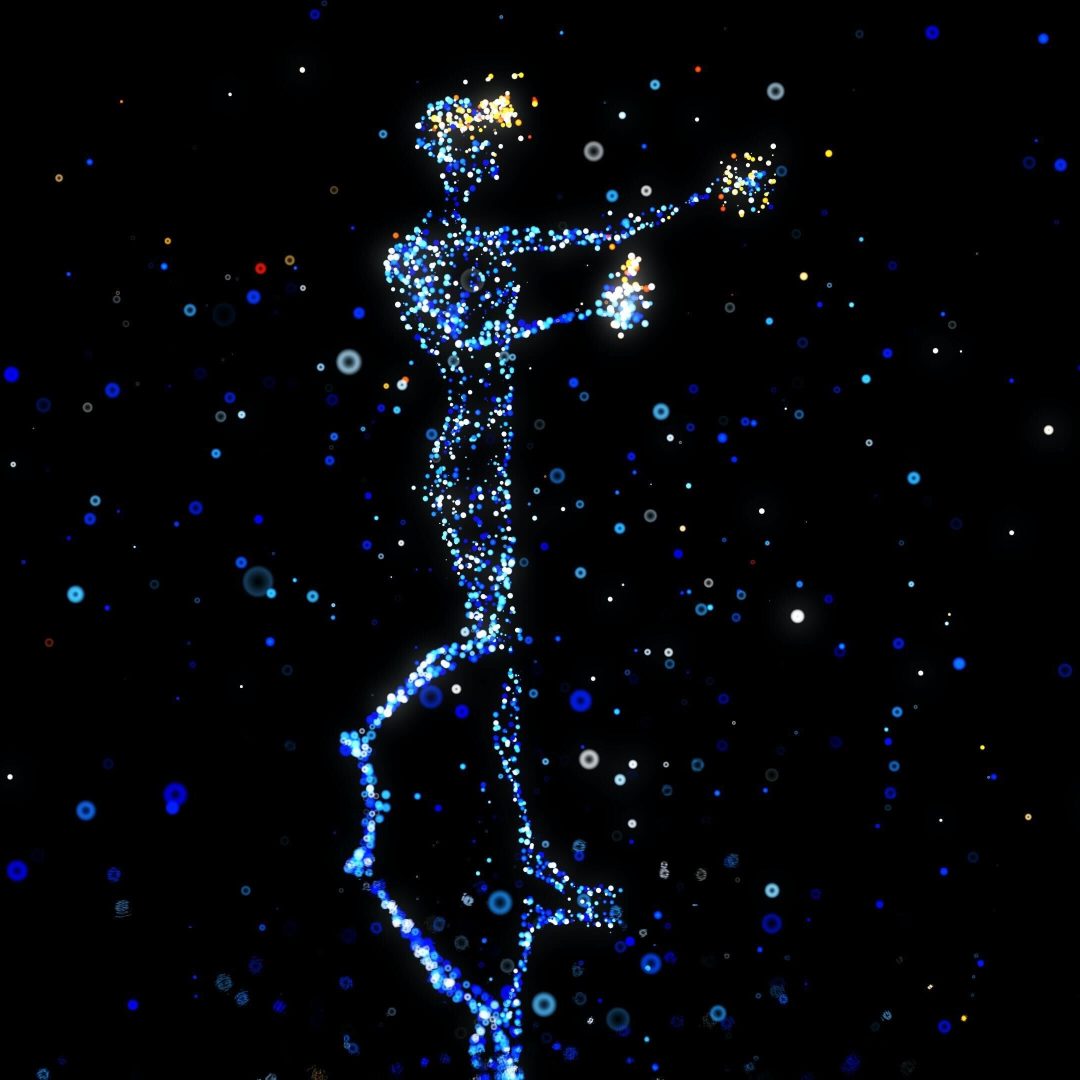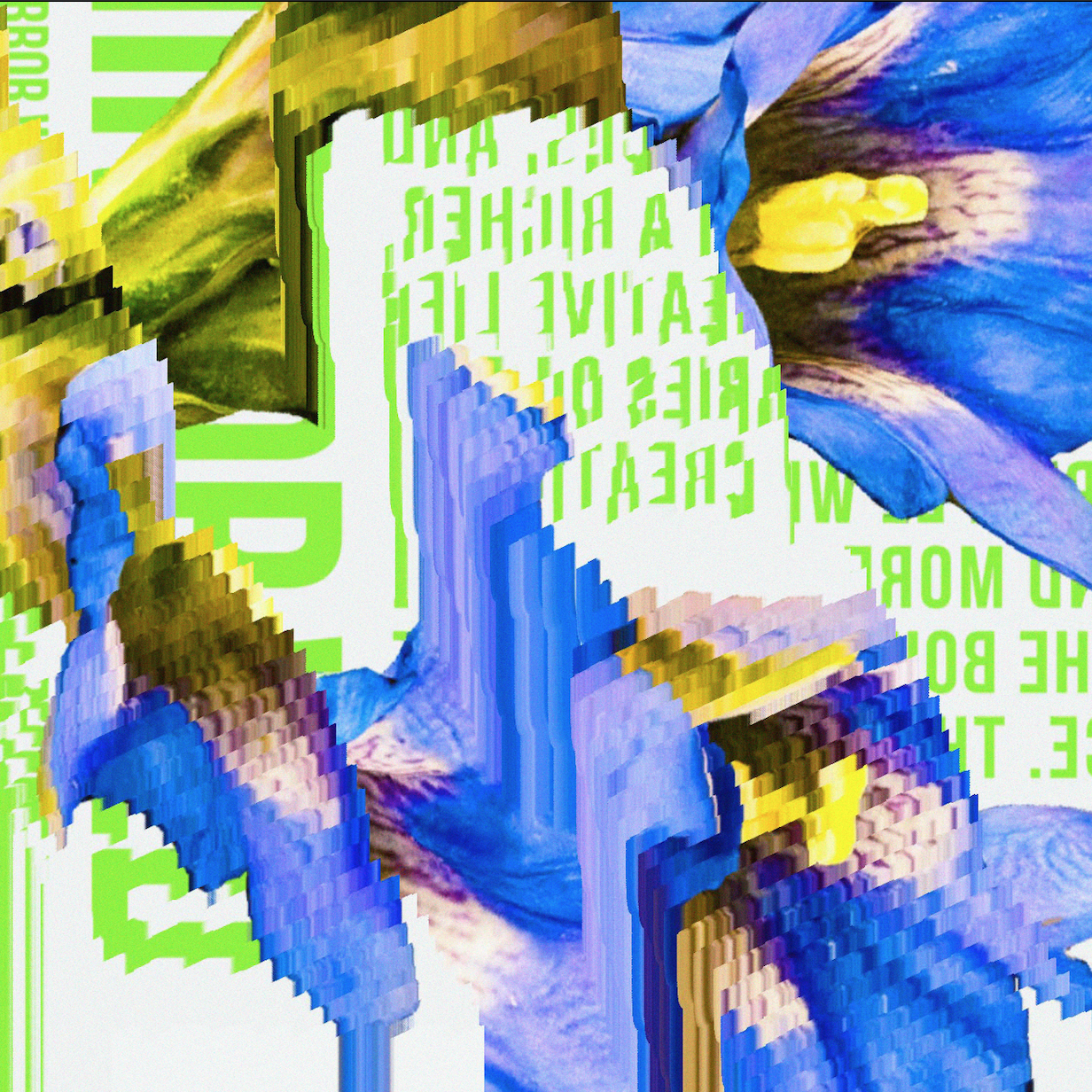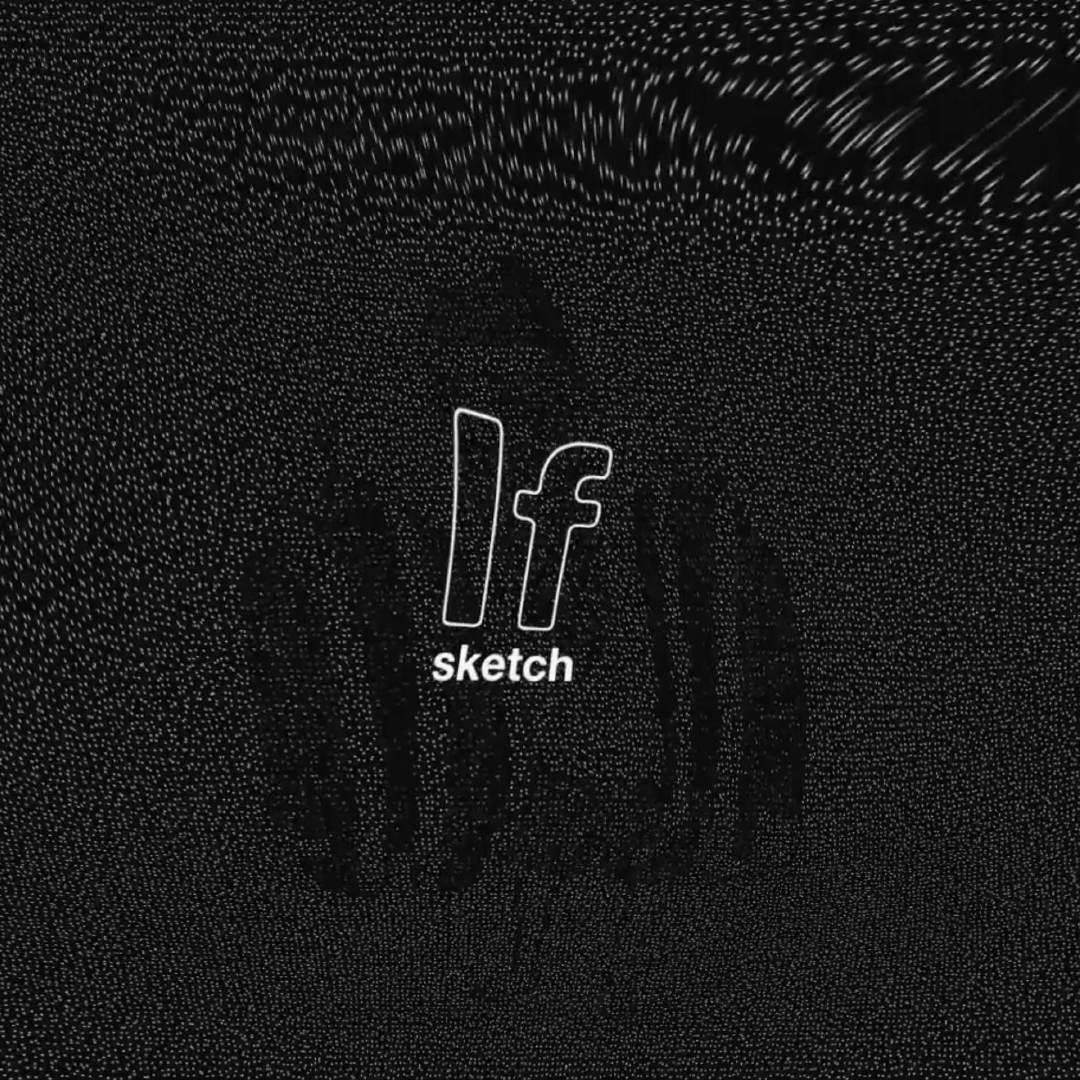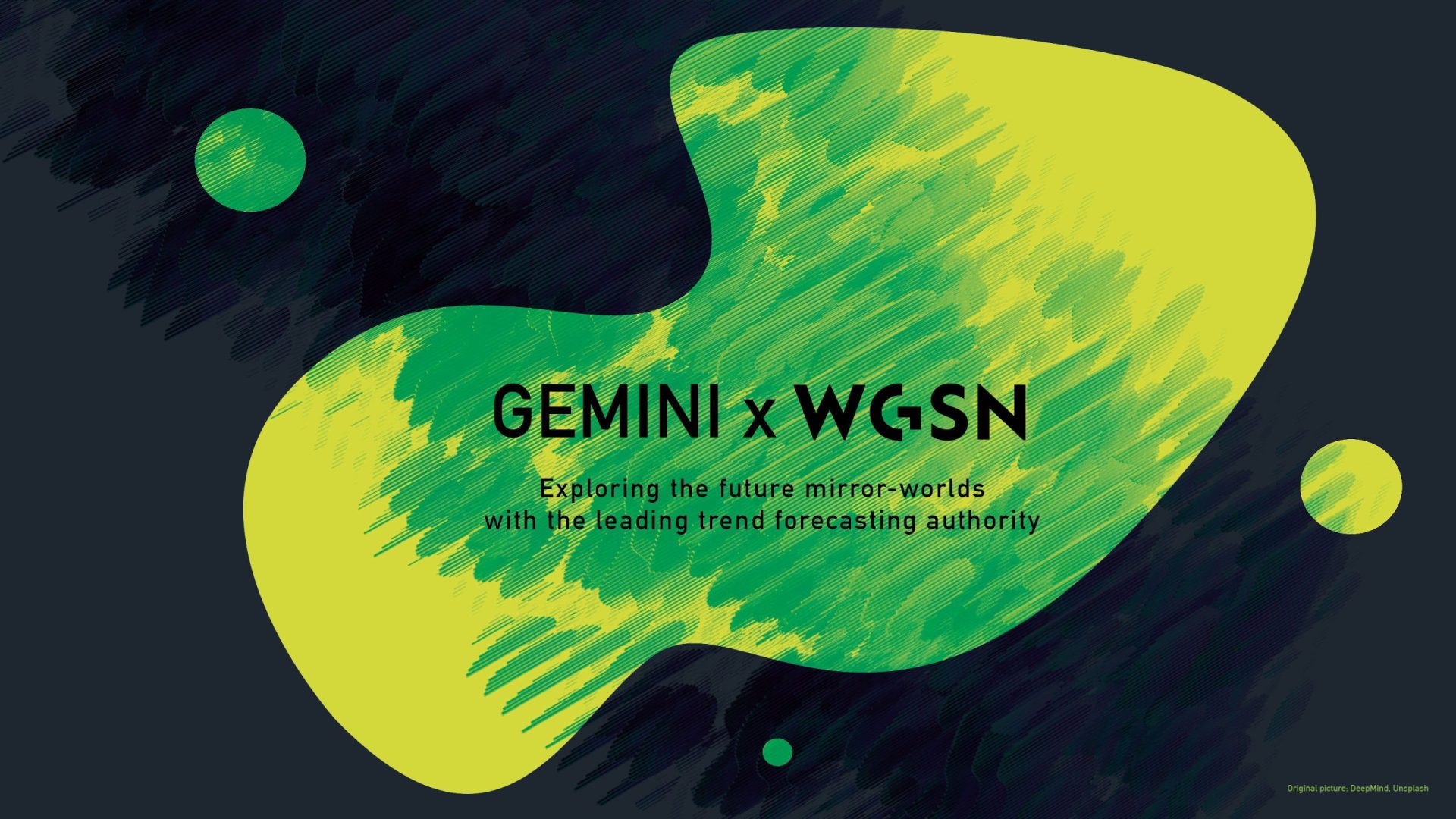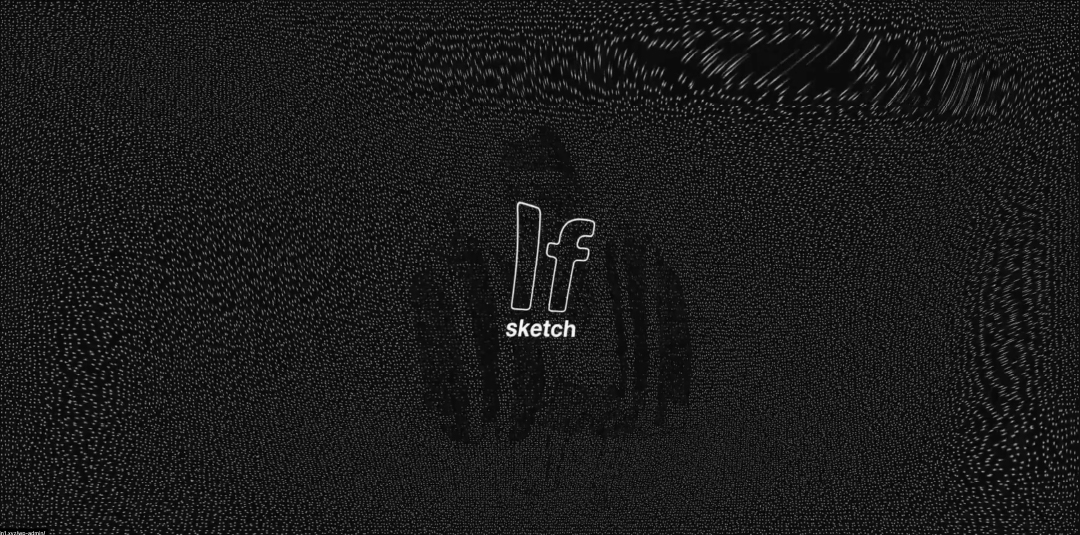The exhibition “GEMINI EXHIBITION: Debug Scene”, in which six contemporary artists express the world view of “GEMINI Laboratory” (hereinafter referred to as “GEMINI”), will be held from October 14th (Friday) to 25th (Tuesday), 2022 held at ANB Tokyo. Sunaki*, who creates works with the theme of crossing the digital and physical from the perspective of information and material, will exhibit “Two-seat stool” depicting the fraying that occurs when the virtual and physical spaces merge. We spoke with Taichi Sunayama, a member of Sunaki, about the reality that Sunaki sees in digital space.
Sunaki Co., Ltd.: A joint venture led by architect Toshikatsu Kiuchi and designer/programmer Taichi Sunayama, which engages in planning, designing, and production centered on architecture and art. This work was created by Sunaki members Takuma Shiozaki and Taichi Sunayama.
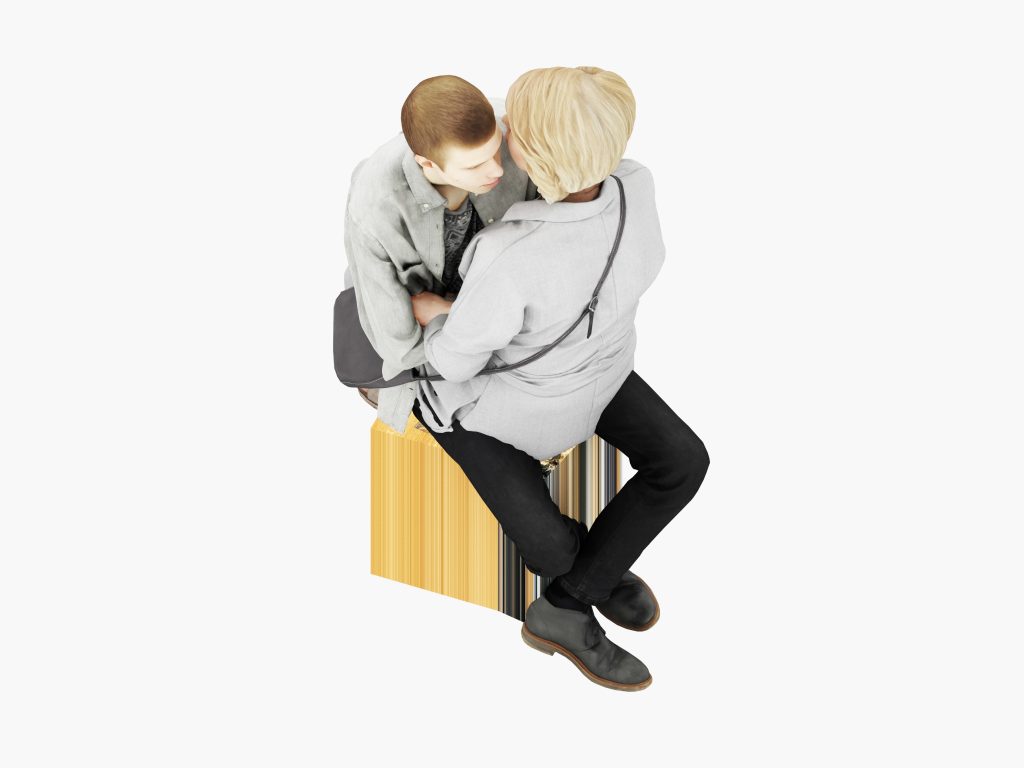
──Sunaki, jointly run by Mr. Sunayama and Mr. Toshikatsu Kiuchi, handles a wide range of projects from architecture to interior design, curation, and concept design. You were involved as a participating artist in the Japan Pavilion exhibition at the 17th Venice Biennale International Architecture Exhibition as well as the construction of an installation/digital database and the online space design for the Tokyo Art Book Fair. Mr. Sunayama, what kind of background do you have?
I myself was originally interested in contemporary art, and at university I studied conceptual art and installation work production in the sculpture department. During that time, I began to take an interest in the field of architecture and design, which has a critical attitude, such as experimental architecture and radical design in the postmodern period of the 1960s to 1980s, and Dutch conceptual design. At the time, it was the early 2000s, and a trend was emerging in which concepts nurtured in the postmodern era were combined with information technology. Around that time, I encountered many new approaches that combined information technology and criticality through the exhibition Archilab: New Experiments in Architecture, City, and Art 1950-2005, held at the Mori Art Museum. Archilab is an international conference on contemporary architecture with the theme of “Utopia and Experimentation”, and models collected there were displayed in the traveling exhibition at the Mori Art Museum. This led me to find someone who was doing conceptual and experimental work on the scale of architecture and cities while running an architectural design office, and I decided to become that kind of person myself.
Around that time, I encountered many new approaches that combined information technology and criticality through the exhibition Archilab: New Experiments in Architecture, City, and Art 1950-2005 held at the Mori Art Museum. Archilab is an international conference on contemporary architecture with the theme of “Utopia and Experimentation”, and models collected there were displayed in the traveling exhibition at the Mori Art Museum. This led me to find someone who was doing conceptual and experimental work on the scale of architecture and cities while running an architectural design office, and decided to become that kind of person myself.
──Mr. Sunayama, you studied at university in France, right?
yes. In graduate school, I went to Paris to study experimental architecture and programming in earnest at the school where Archigram’s Peter Cook had a studio. After that, I started working at an architectural firm that was in the Archilab exhibition, and I started to plan structures using computer programming. Instead of using computers as the final medium of expression like in media art, we designed buildings and structures through computer-human interaction through programming. It feels like using the method of generative art for the design and production of actual three-dimensional objects. At the time, Sunaki’s partner, Mr. Kiuchi, was also an associate partner at a design office called R&Sie(n), which has announced many experimental projects. Because of the connection, we started to work together from around 2010.
──The theme of this year’s GEMINI Laboratory Exhibition was the mirror world. Please tell us how you perceive the mirror world itself.
Since the 2000s, I have been active in the field of architecture through information technology, and I have witnessed how new technologies have attracted attention, and many creators have repeatedly carried out advanced experiments, which have greatly changed society. In particular, I think that the vision created by the use of new technologies for society is treated as a driving force for innovation, and for companies, it is a major tool for raising brand images and soliciting investment. Various packaged words have been used to convey to people in an easy-to-understand manner the possibilities of new expressions and the use of information technology to solve social problems, and the words have changed in various ways each time. I think the same is true for the term mirror world. In other words, I don’t think that the mirror world is anything special, but I see it as one of the historical trends in which humans have developed printing technology and computing technology.
In particular, mirror worlds are often talked about in terms of democracy. In the real world, there is a hierarchy based on human appearance, physical ability, economic power, birth, race, and nationality. On the other hand, I feel that the mirror world is perceived as a flat, democratic world in which such a physical structure of power is difficult to reach. But to be very honest, I find myself struggling day-to-day within the structure of power that exists unavoidably, and although I have a utopian envy of the democratic world of the mirror world, I look at it with a slightly cold eye. Even if SNS was created with the aim of creating a democratic world, in some respects it still functions as a device for inciting the masses and concentrating economic power and power. I want to stay calm.
──When I talk with the other artists participating in the exhibition, I get the feeling that such a calm perspective is reflected in their works. Please tell us about the works that will be exhibited this time.
The theme is “Z Fighting” created by 3DCG rendering. Z-fighting is a phenomenon in which two polygons are displayed mixed together when there are two polygons in the same place. I’m trying to express the same way as this in the form of a stool in real space.
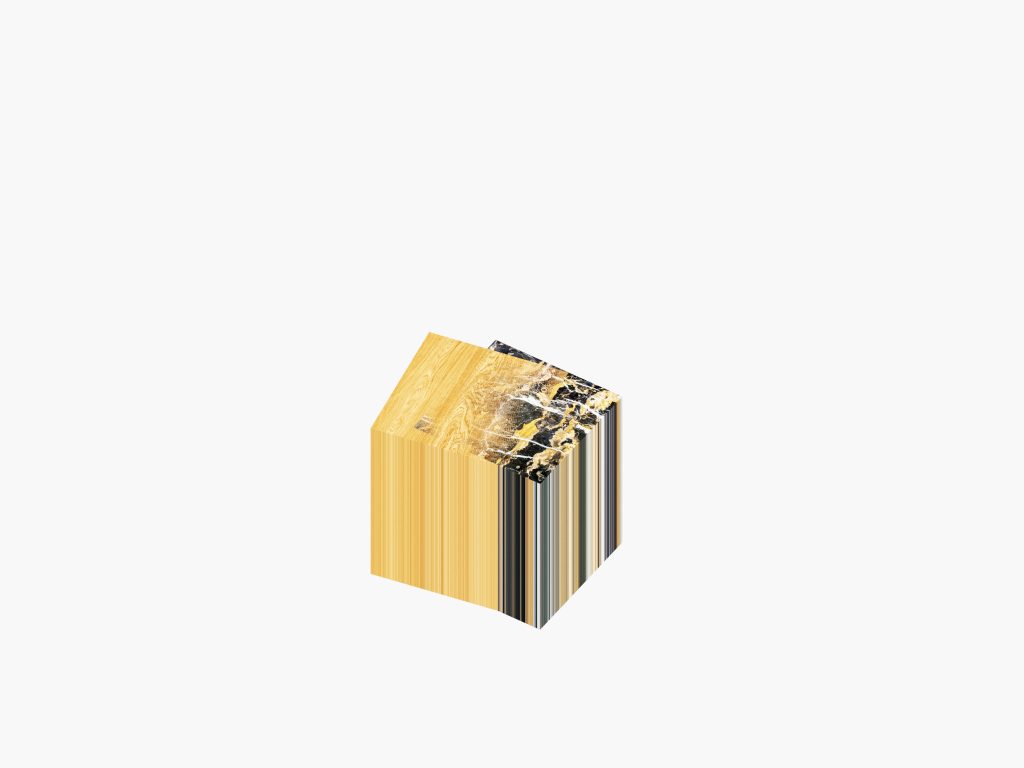
──Where does the idea for your work come from?
Originally, Sunagi members of this project, Mr. Takuma Shiozaki, Mr. Gaishi Kudo, and Mr. Mio Kawakubo, were discussing the emotions and sensitivities that we feel in the original scenery of 3D models with a low-poly feel and what they are. For example, in my generation, it is the feeling that I got when I inserted a cassette halfway into the Famicom and deliberately caused bugs in the game, the pleasure of looking at the truth and the other side of the world, or the feeling that I got when I happened to come across a bug that could only happen once. Originally, they are things that cannot be touched, but I think that there is something like the “touch of the world that cannot be touched” that we who live in such a half-digital space feel. This project is trying to capture that.
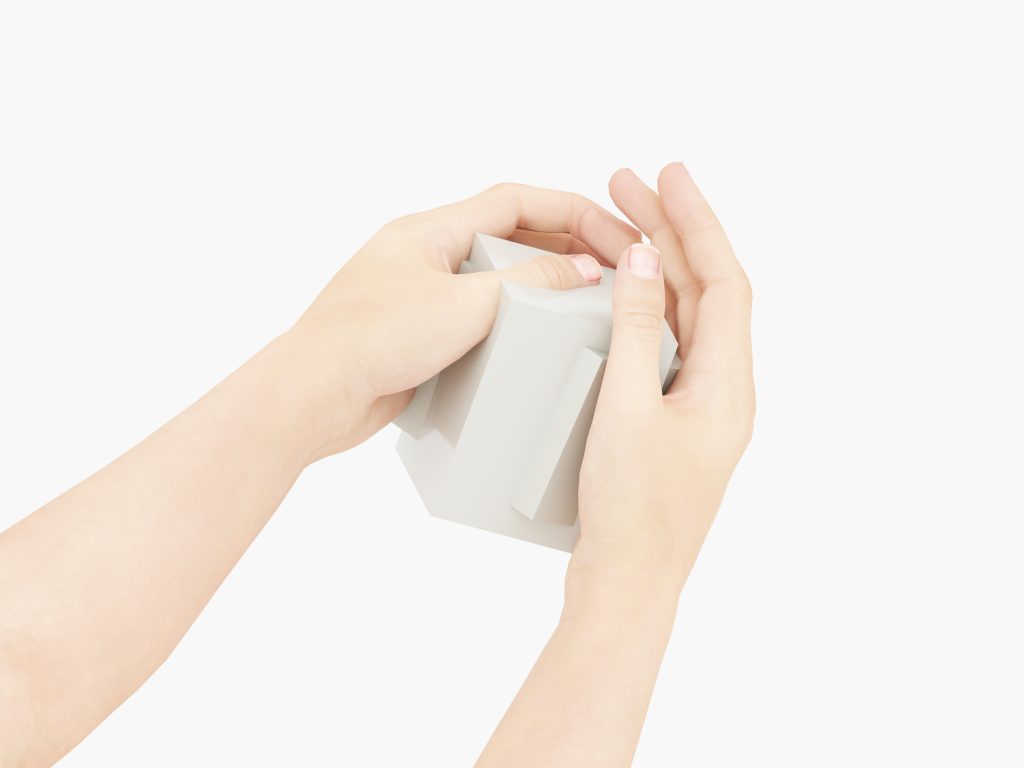
So, we asked the members to collect the textures they felt in the digital space. Among them, I decided on the theme of Z-fighting that can be done when two so-called 3D models of this work overlap. From an information engineering point of view, bugs should be eliminated. When we encounter such a bug in-game, we remember it as a strange scene, and that memory itself becomes the emotion in the game space. In this work, I try to capture that feeling.
──How do you create a stool that looks like a mixture of two materials?
I modeled on 3D software, found a display that caused Z-fighting, picked up the pattern in Photoshop and created a texture. With the cooperation of Mr. Morihei Miyata of the Toppan Printing Design Planning and Production Department, we printed the texture directly onto the plywood, and asked New Furniture Works, which specializes in custom-made furniture production, to process and assemble the textured plywood. . The stools are made with furniture-level quality, so you can actually use them for a long time as stools.
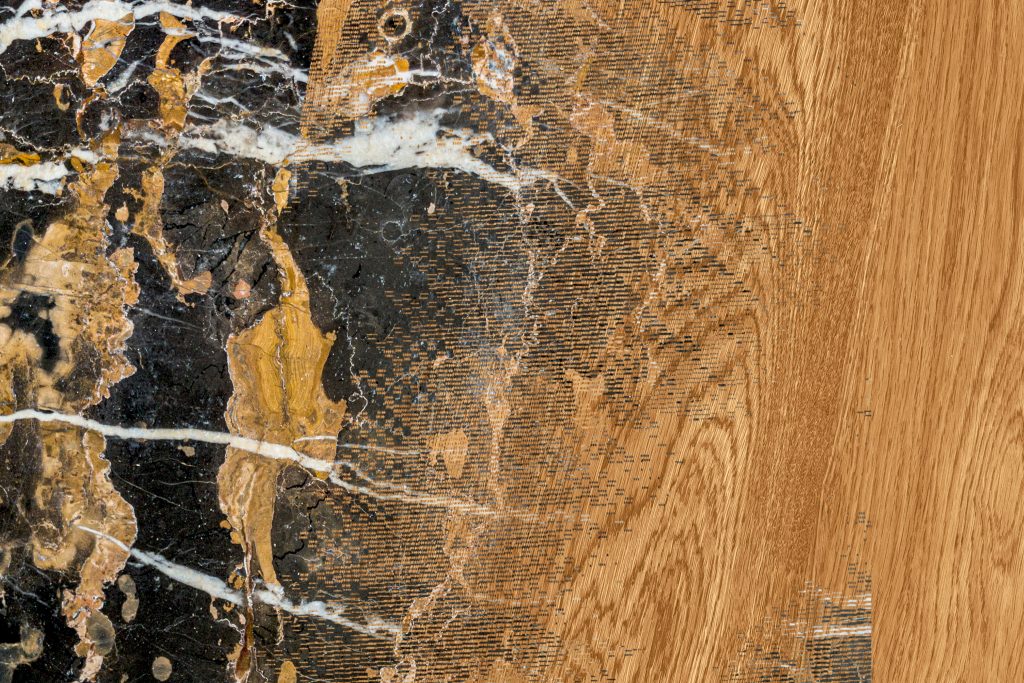
In fact, the texture of the stool is based on the physical materials of letterpress printing, such as marble and wood. Toppan refers to such original materials as “manuscripts,” and from the point of view of a printing company, the material is nothing more than a source of information. In this project, I digitally photographed the “manuscript” and pasted it on the 3D model. “Manuscripts” are copyrighted and cannot be used by artists as they are. At the venue, we exhibited three images of Z-fighting happening on 3D software, a physical stool, and three base manuscripts.
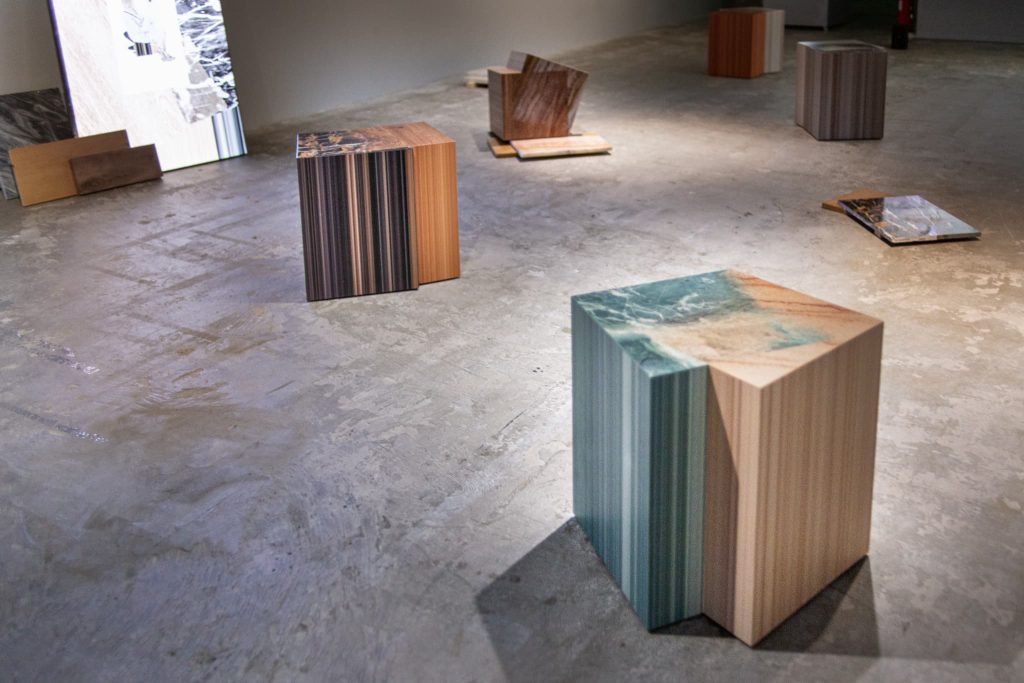
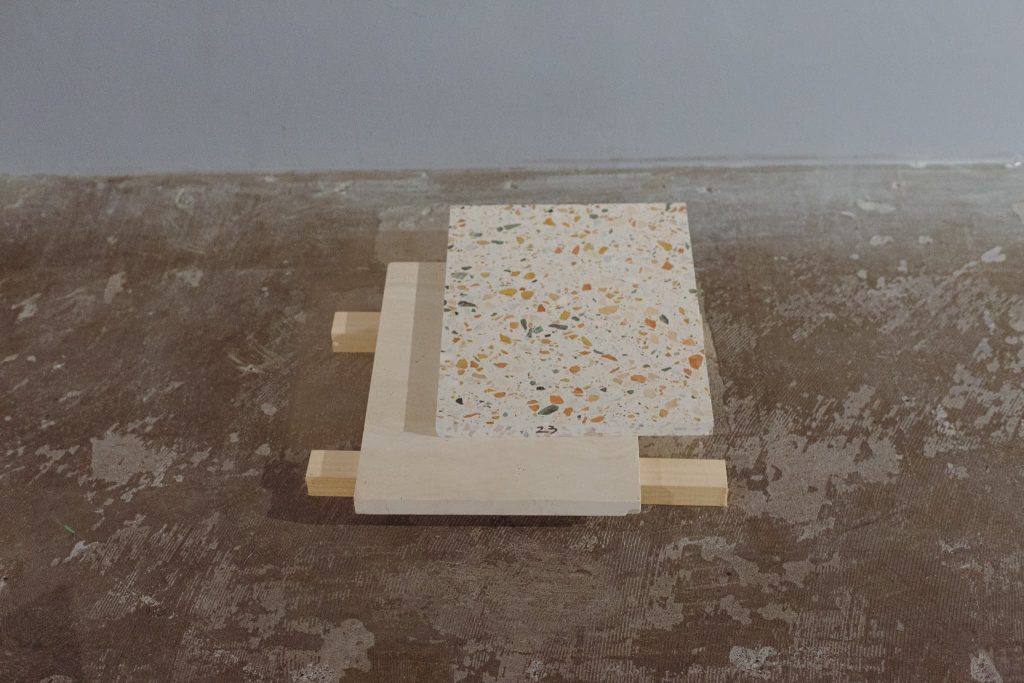
──The vivid difference between the real world and the virtual world is in the work.
In real space, two things do not physically overlap. Things that cannot happen physically can easily happen in 3D space, but we accept them as reality in the digital world. Although the real world and the virtual world are often treated as different things, I think our bodily sensations connect the two smoothly. I wanted you to feel that kind of new bodily sensation through this work.
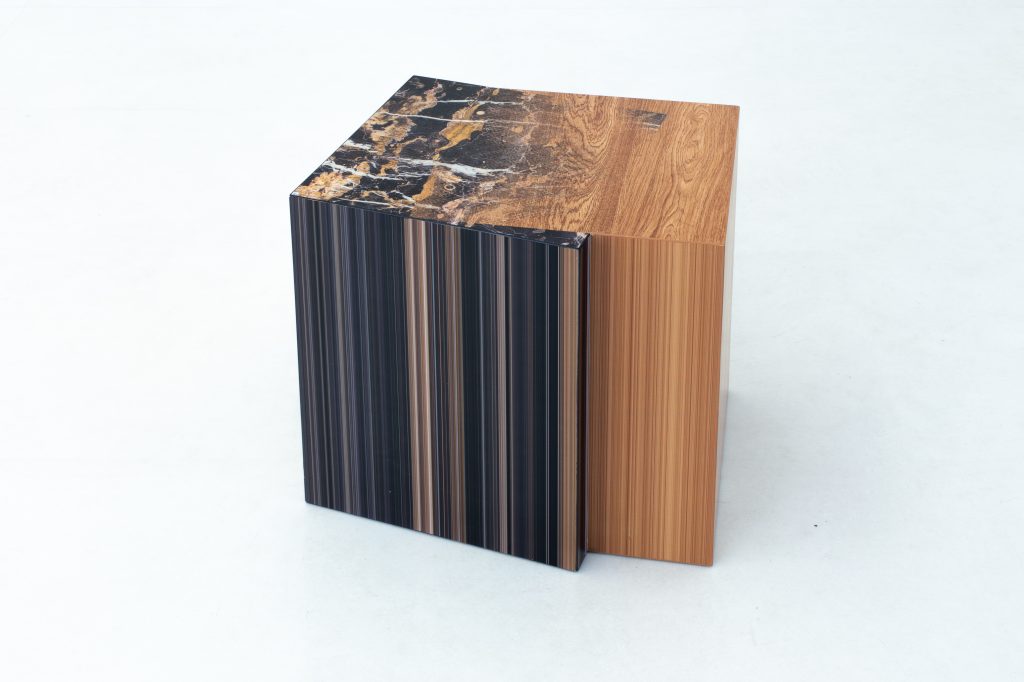
──Does that mean that you are looking at the mirror world critically?
Yes. Instead of simply thinking that the mirror world is a wonderful thing without any doubts, I would like to be involved in creation that straddles both worlds, without forgetting that the virtual world has various problems, limitations and challenges just like the real world, and the perspective that it gives thoughtful depth to communication between people.
─ Listener: Shinya Yashiro
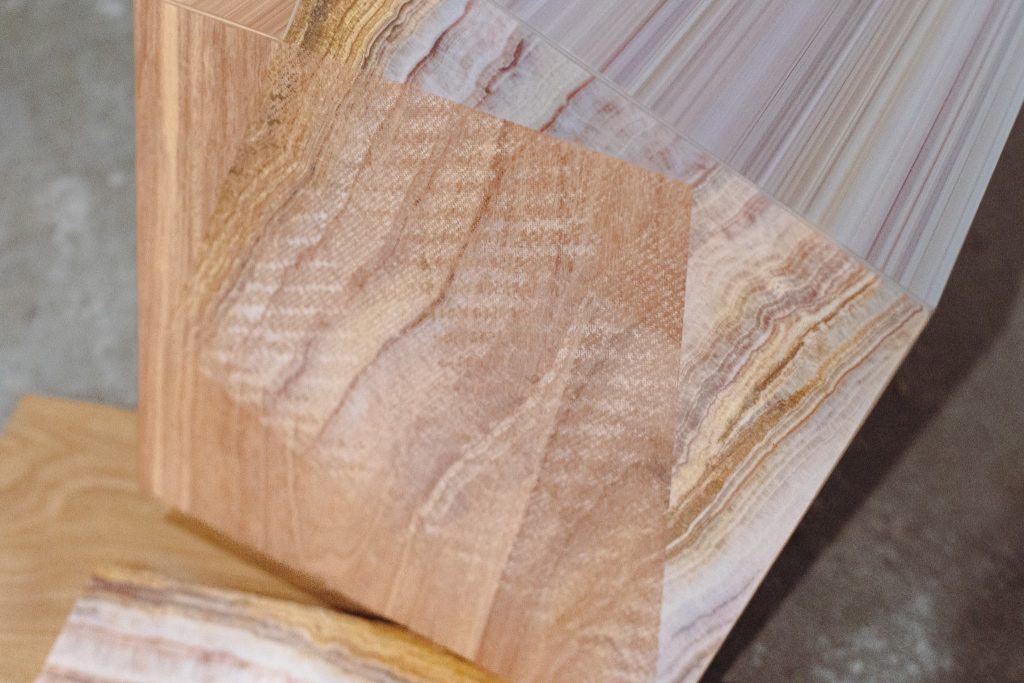
Guest Profile
-
Sunaki
SUNAKI
Sunaki
SUNAKI
A Collaborative Project Led By Architect Toshikatsu Kiuchi And Designer/Programmer Taichi Sunayama, Which Conducts Planning, Designing, And Production Centering On Architecture And Art. Characterized By An Approach Based On The Theme Of Crossing The Digital And Physical From The Perspective Of Information And Material, He Comprehensively Handles Everything From Installation Production To Architectural Design, Exhibition Planning And Venue Configuration, Web Space Design To Database Construction.
- See Site: https://sunaki.jp/
Co-created by
-
Shinya Yashiro
SYYS LLC
Shinya Yashiro
SYYS LLC
Editor. Became Independent In 2017 After Working For Cork Co., Ltd. And The Japanese Edition Of WIRED. Participated In The Founding Of Tobu Classroom, A Limited Liability Company, Engaged In Manga Editing/Original Work, Book Editing, Research/Branding, Etc. Founded SYYS LLC In 2019 And Established A Base In Kyoto In 2020.
- View Site: https://syy.sh/
Tag
Share
Discussion
Index
Index
Archives
Recommend
Recommend
Recommend
Recommend
Recommend
-

{ Community }
What is ethical fashion? Three brands to check out and the sustainable way to dress
What is ethical fashion? Three brands to check out and the sustainable way to dress
What is ethical fashion? Three brands to check out and the sustainable way to dress
-

{ Community }
Fashion Historian Pamela Golban: Beyond the Fusion of Virtual and Physical
Fashion Historian Pamela Golban: Beyond the Fusion of Virtual and Physical
Fashion Historian Pamela Golban: Beyond the Fusion of Virtual and Physical
-

{ Community }
Nordic Design Conference “Design Matters”: How Digital Design Connects with Society?
Nordic Design Conference “Design Matters”: How Digital Design Connects with Society?
Nordic Design Conference “Design Matters”: How Digital Design Connects with Society?
-

{ Community }
The Art Director Of Cluster Talks About UI/UX Design Of “A World Without Touch”
The Art Director Of Cluster Talks About UI/UX Design Of “A World Without Touch”
The Art Director Of Cluster Talks About UI/UX Design Of “A World Without Touch”
Hot topics
Hot topics
Hot topics
Hot topics
Hot topics
-

{ Community }
Scent Transcends Memory to Change Behavior. The Future of Digital x Olfaction, by Scent Marketing Pro Gouchi Hamada
Scent Transcends Memory to Change Behavior. The Future of Digital x Olfaction, by Scent Marketing Pro Gouchi Hamada
Scent Transcends Memory to Change Behavior. The Future of Digital x Olfaction, by Scent Marketing Pro Gouchi Hamada
-

{ Community }
The stage is a restroom designed by Tadao Ando. Possibilities of media mix that GEMINI pioneers.
The stage is a restroom designed by Tadao Ando. Possibilities of media mix that GEMINI pioneers.
The stage is a restroom designed by Tadao Ando. Possibilities of media mix that GEMINI pioneers.
-

{ Community }
“Conveying the Moment of ‘Now’ in History: Catalan Artist Xavi Bové’s Light Expressions”
“Conveying the Moment of ‘Now’ in History: Catalan Artist Xavi Bové’s Light Expressions”
“Conveying the Moment of ‘Now’ in History: Catalan Artist Xavi Bové’s Light Expressions”
-

{ Community }
“Designing with Heart: How Amanda Talbot is shaping a better future through emotionally intelligent AI”
“Designing with Heart: How Amanda Talbot is shaping a better future through emotionally intelligent AI”
“Designing with Heart: How Amanda Talbot is shaping a better future through emotionally intelligent AI”
-

{ Community }
Unearthing the Future: How ancient history can guide modern innovation with Darius Arya
Unearthing the Future: How ancient history can guide modern innovation with Darius Arya
Unearthing the Future: How ancient history can guide modern innovation with Darius Arya
-

{ Community }
Interview with Masayoshi Yokoyama from Ryu Ga Gotoku Studio. Talks about reality in games and the future of the industry
Interview with Masayoshi Yokoyama from Ryu Ga Gotoku Studio. Talks about reality in games and the future of the industry
Interview with Masayoshi Yokoyama from Ryu Ga Gotoku Studio. Talks about reality in games and the future of the industry
-

{ Community }
The new form of pilgrimage. What is the border of real and fictional worlds that Petra Szemán pictures?
The new form of pilgrimage. What is the border of real and fictional worlds that Petra Szemán pictures?
The new form of pilgrimage. What is the border of real and fictional worlds that Petra Szemán pictures?
Special
Special
Special
Special
Special
Featured articles spun from unique perspectives.
What Is
“mirror world”...
What Is
“mirror world”...
What Is
“mirror world”...
What Is
“mirror world”...
What Is
“mirror world”...
“mirror world”... What Is
“mirror world”... What Is
“mirror world”... What Is
“mirror world”... What Is
“mirror world”...
Go Down
Go Down
Go Down
Go Down
Go Down
The Rabbit
The Rabbit
The Rabbit
The Rabbit
The Rabbit
Hole!
Hole!
Hole!
Hole!
Hole!
Welcome To Wonderland! Would You Like To Participate In PROJECT GEMINI?

